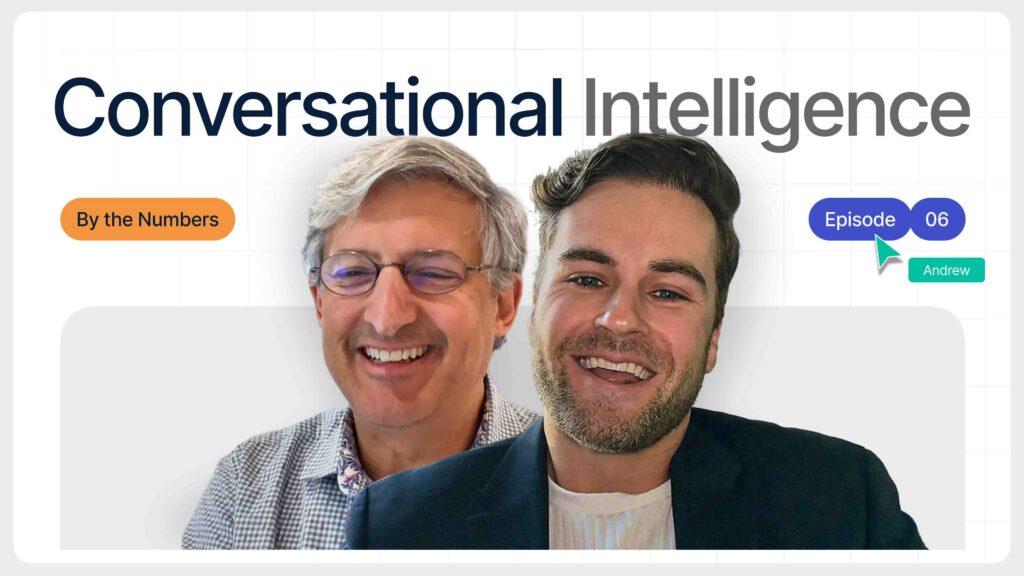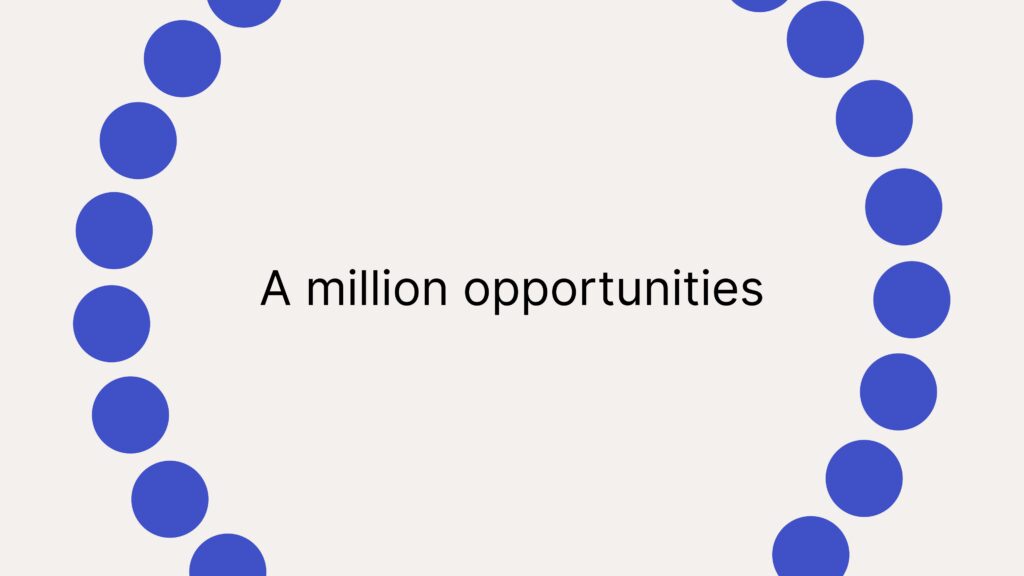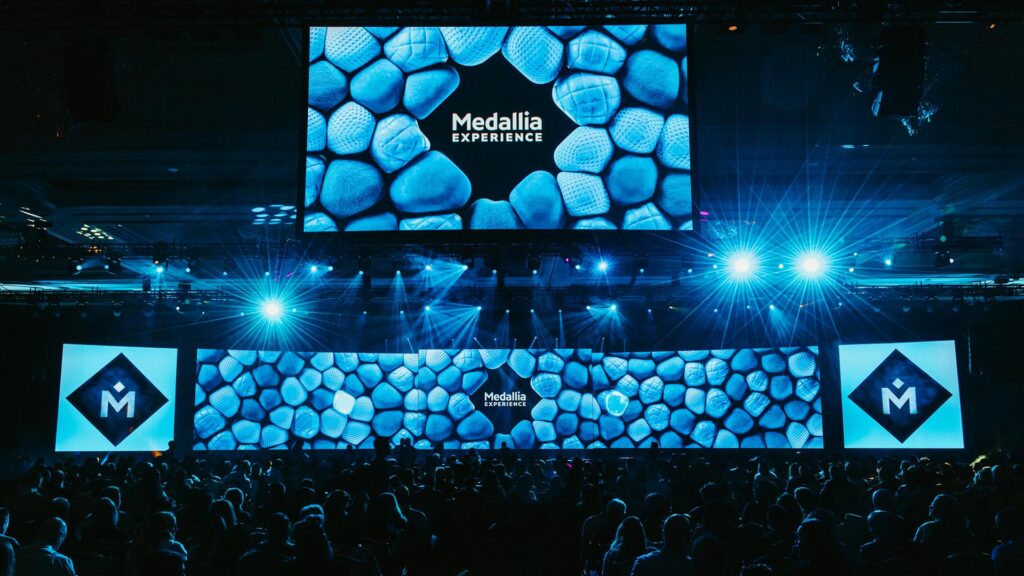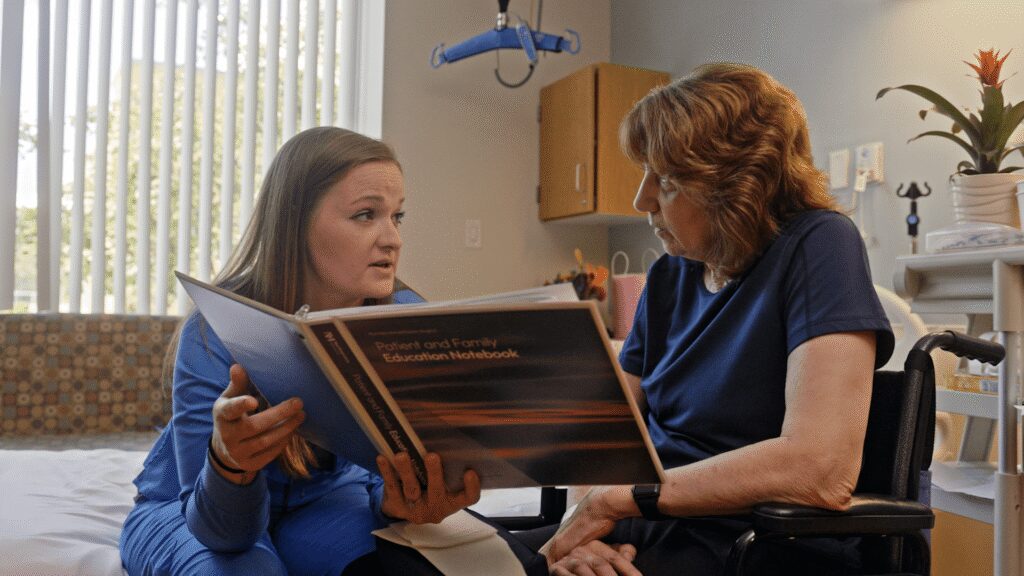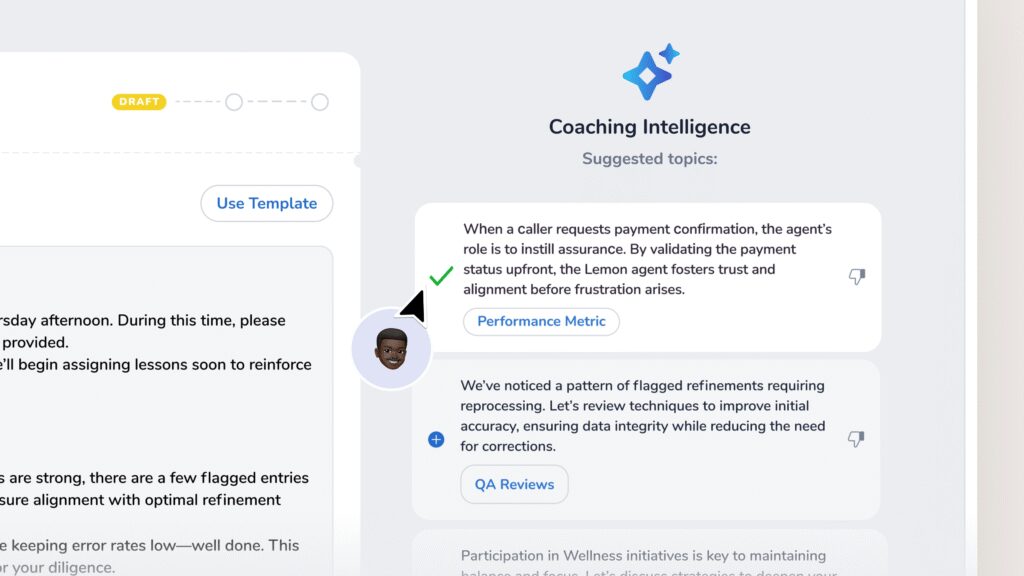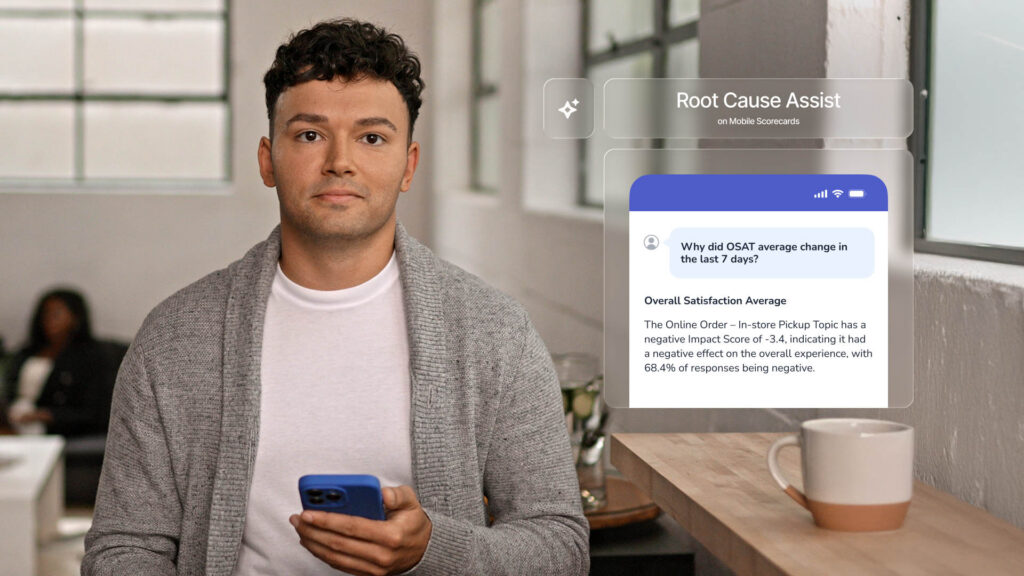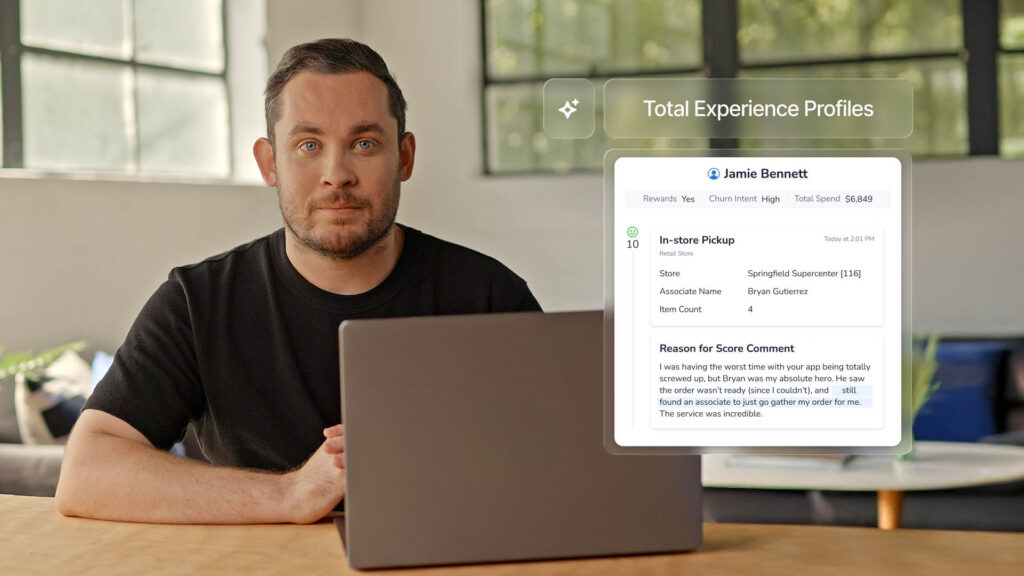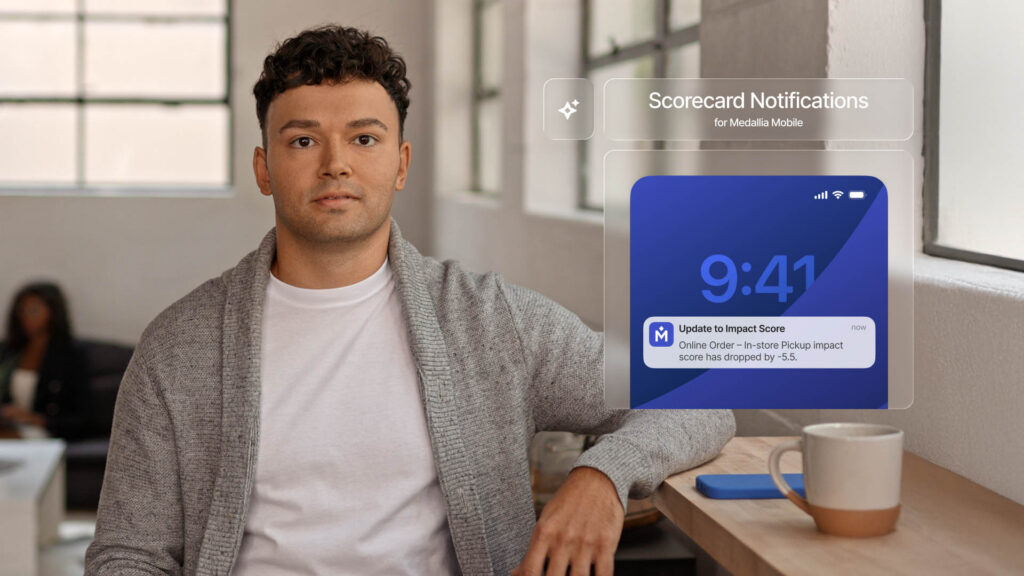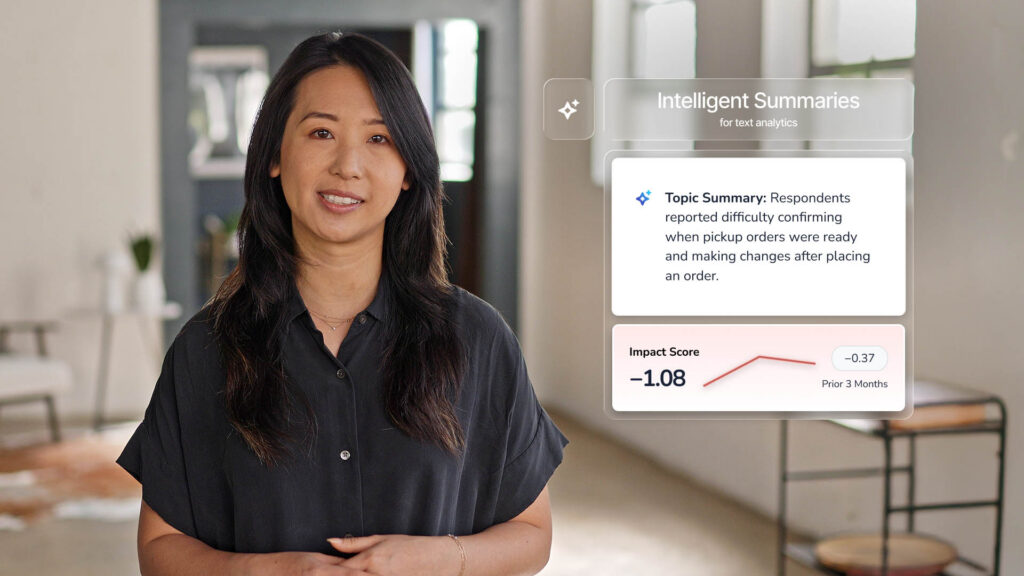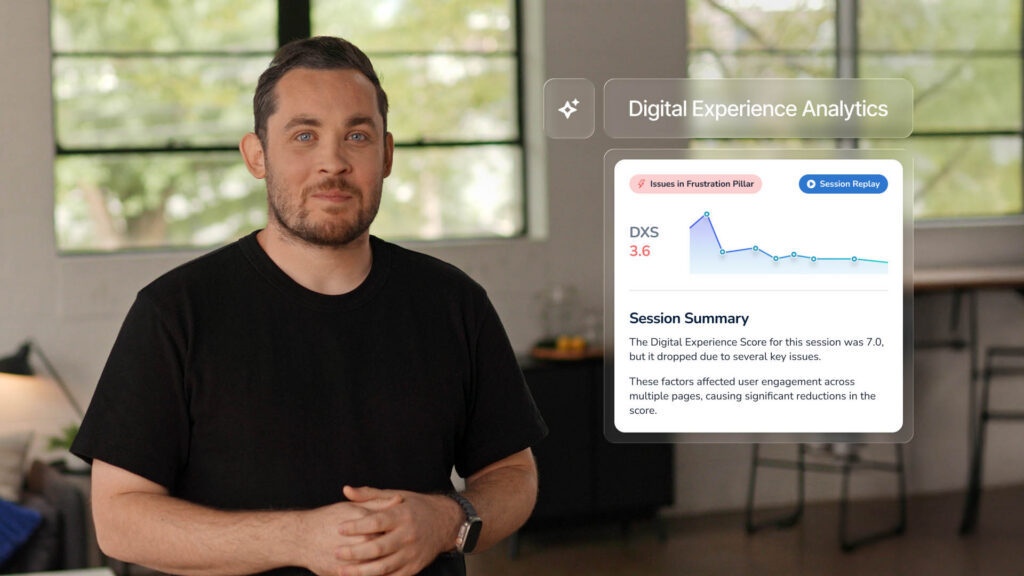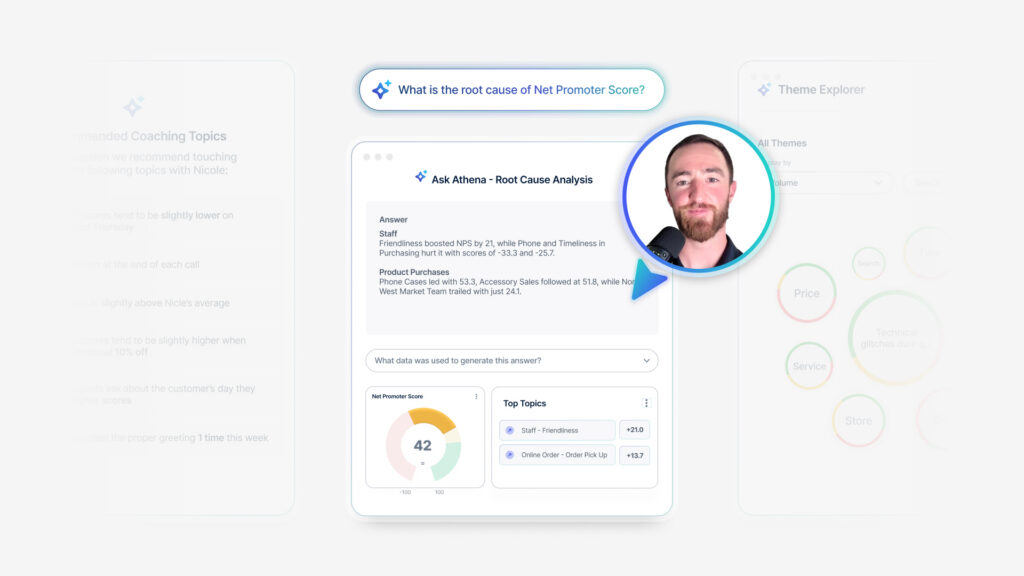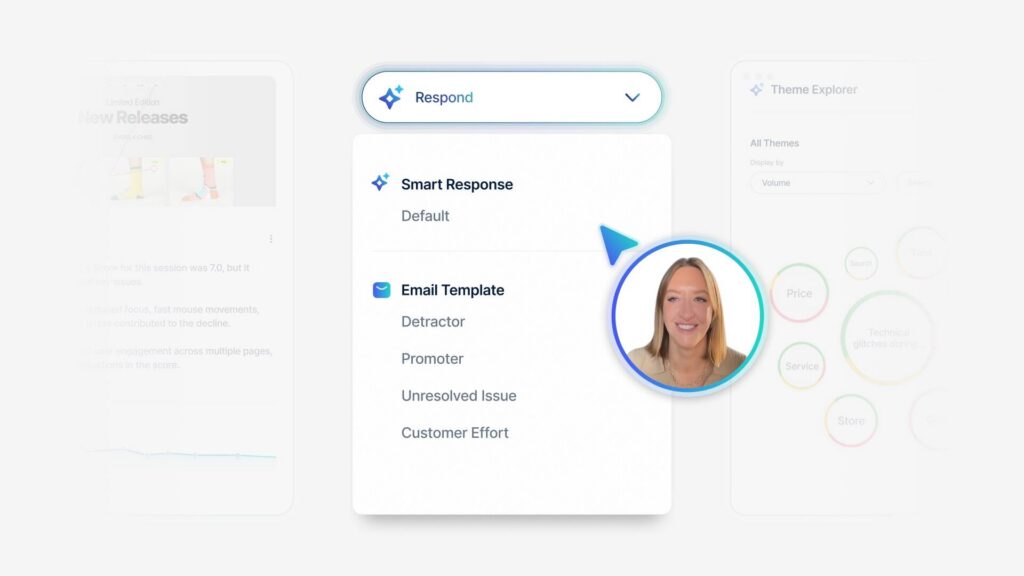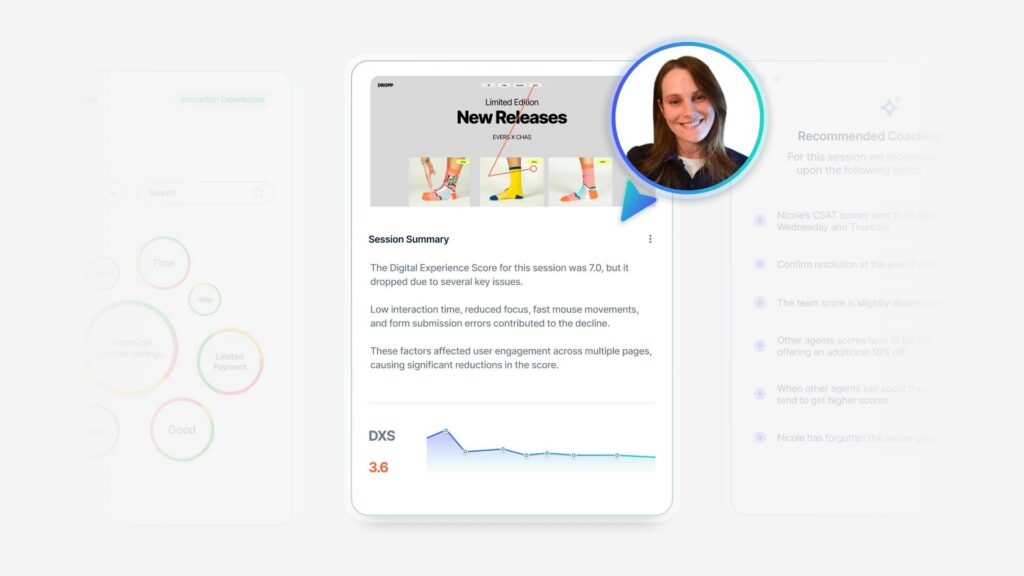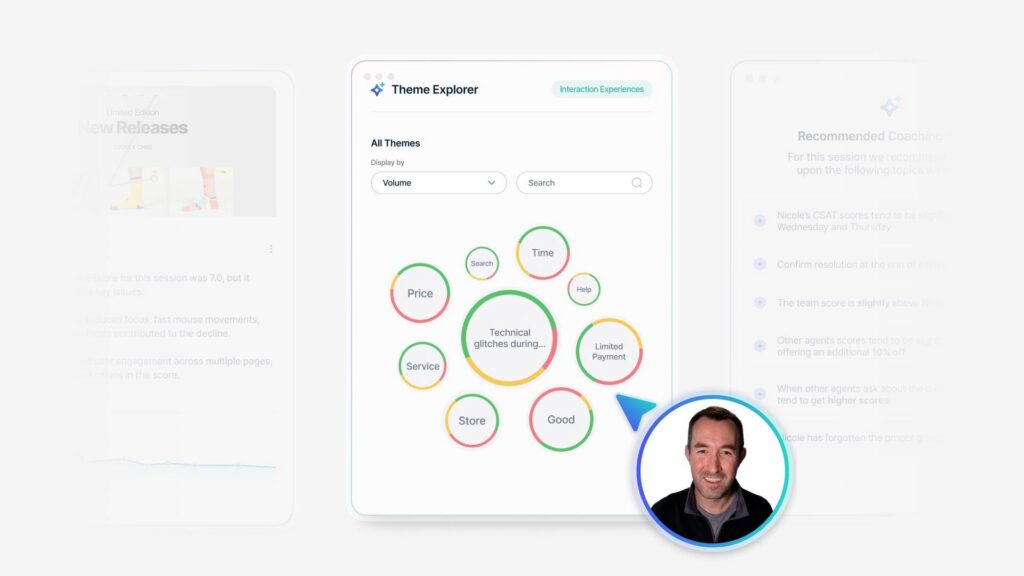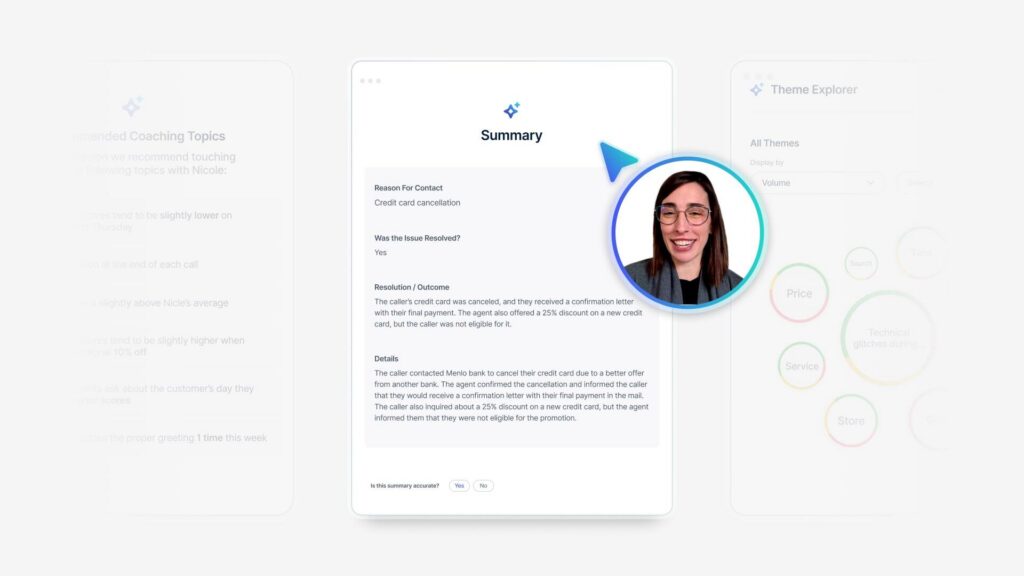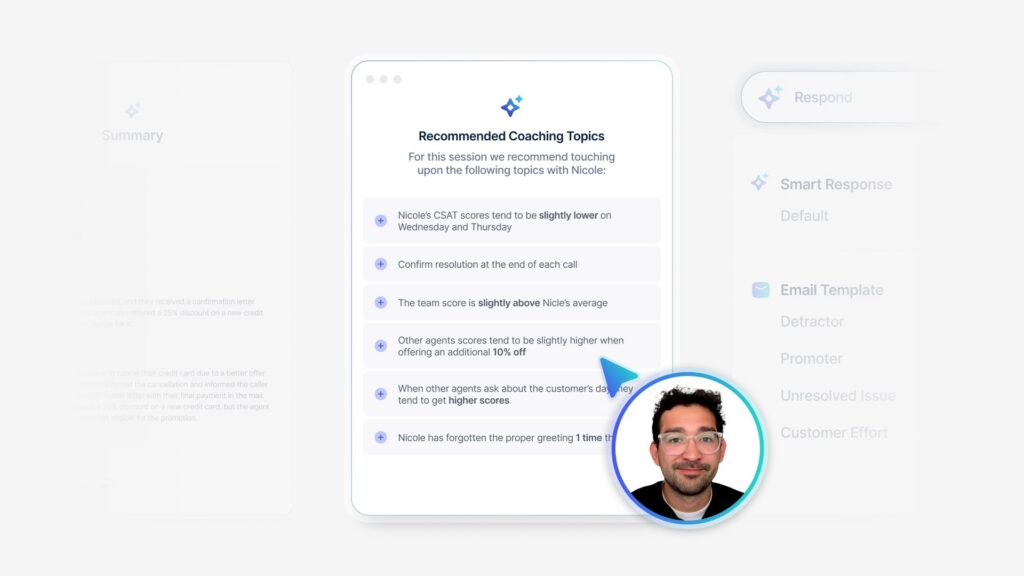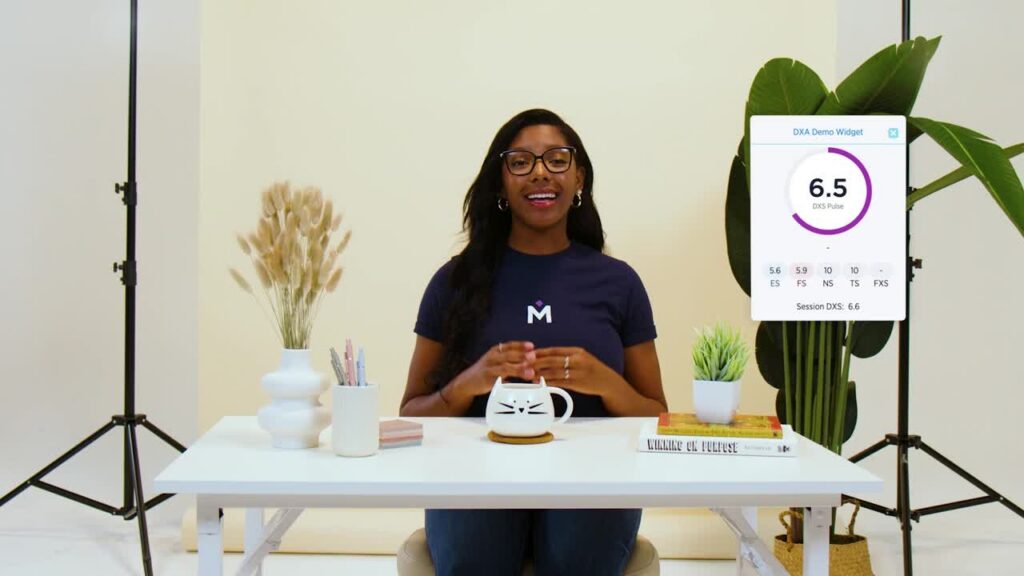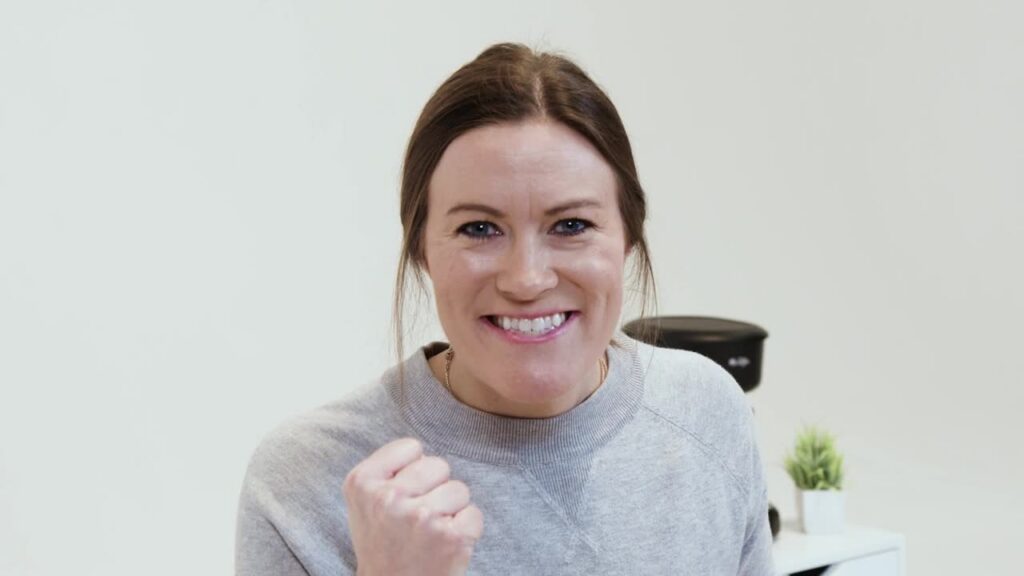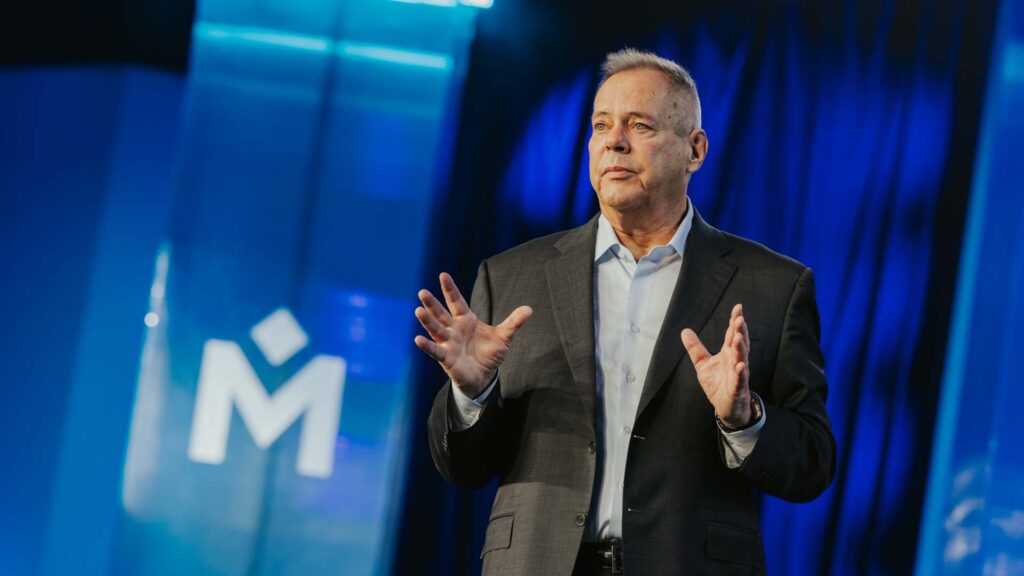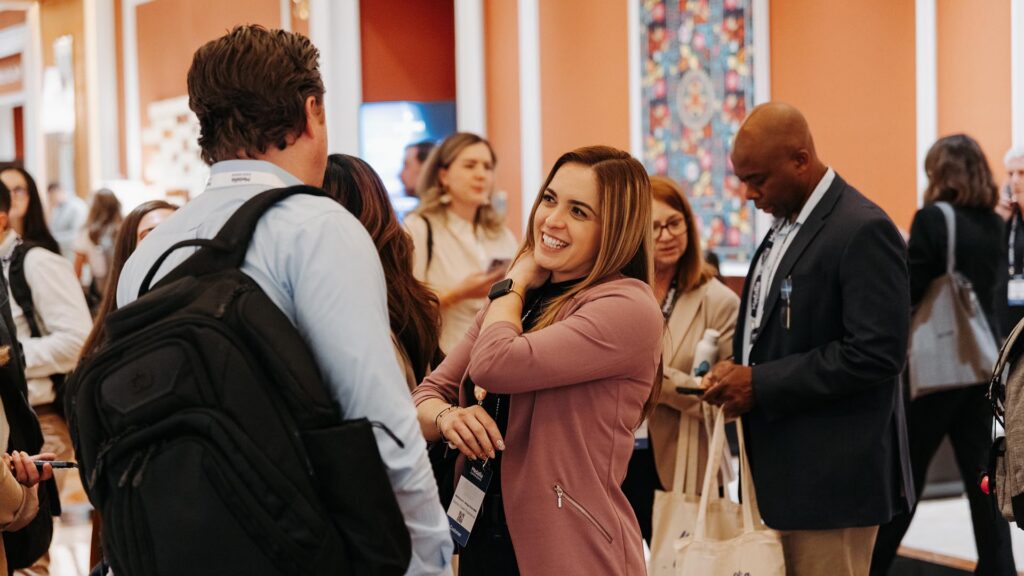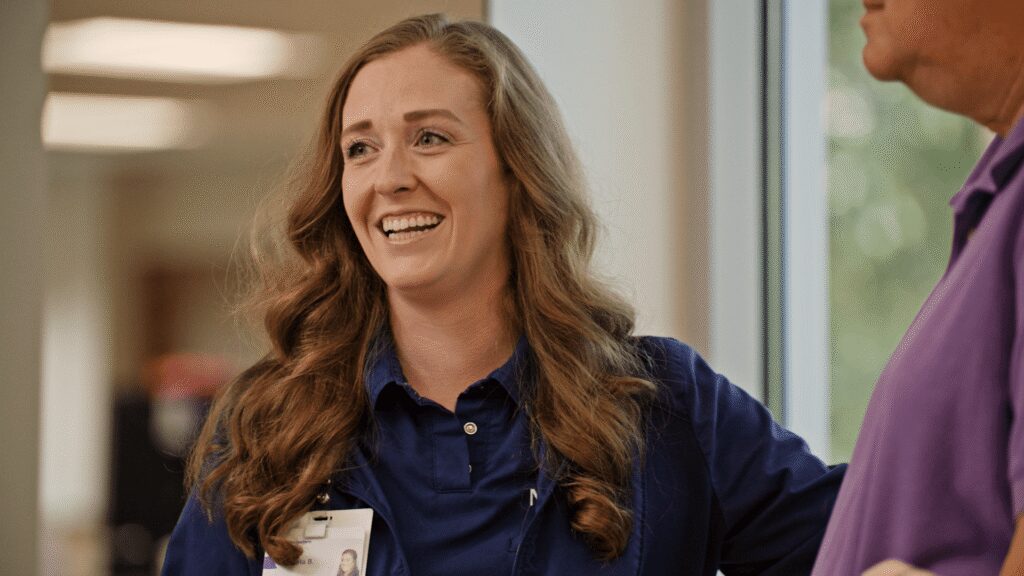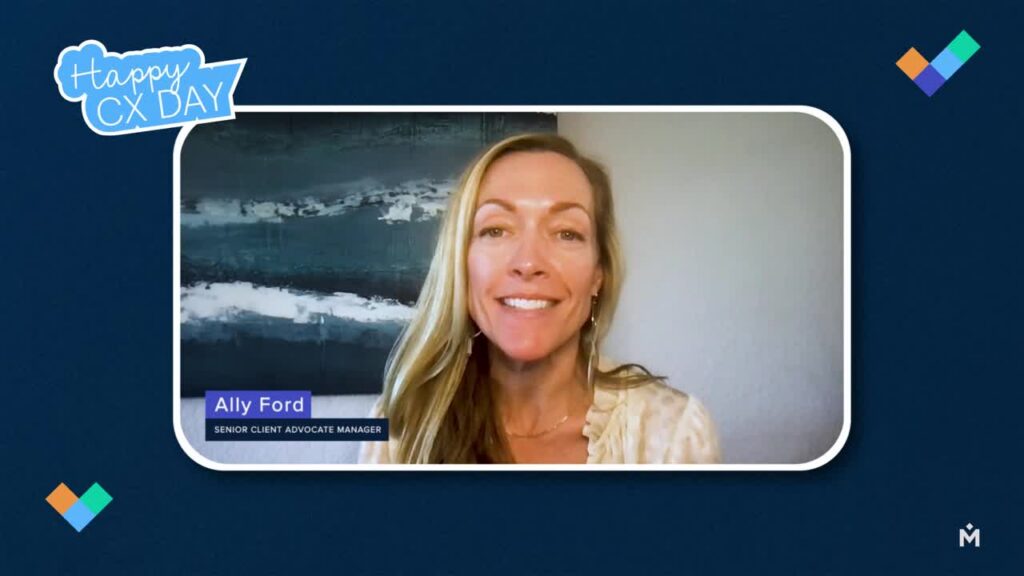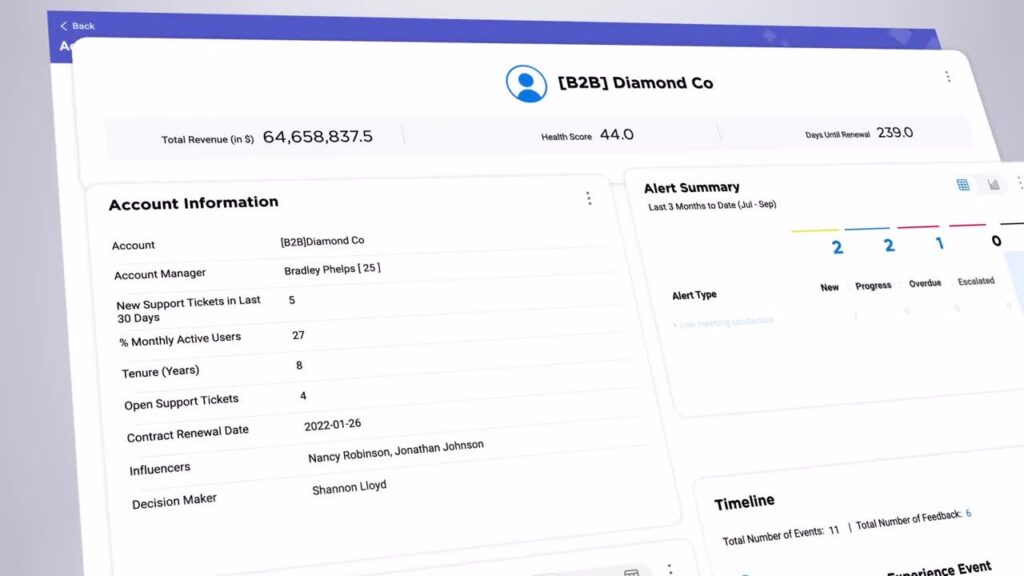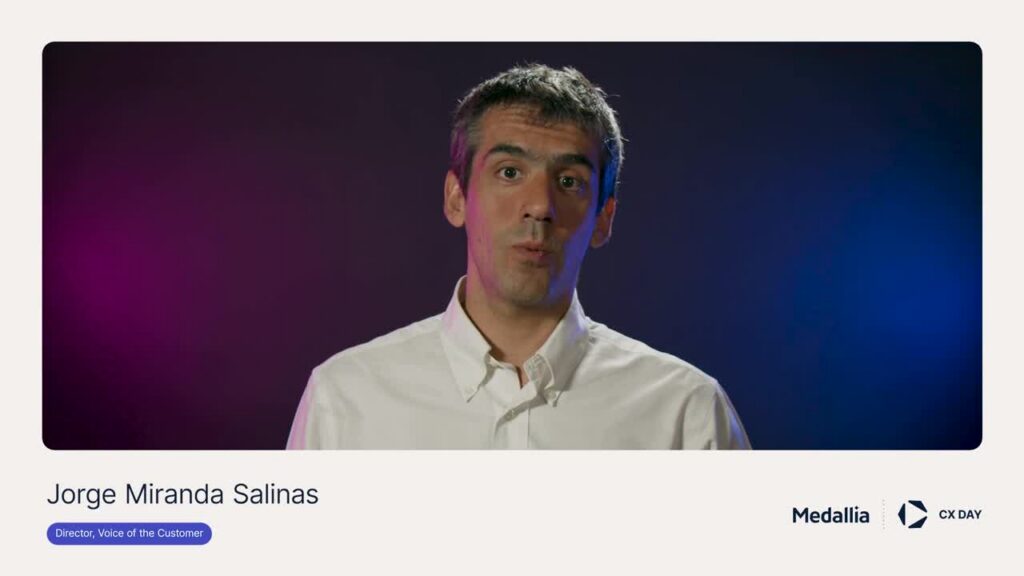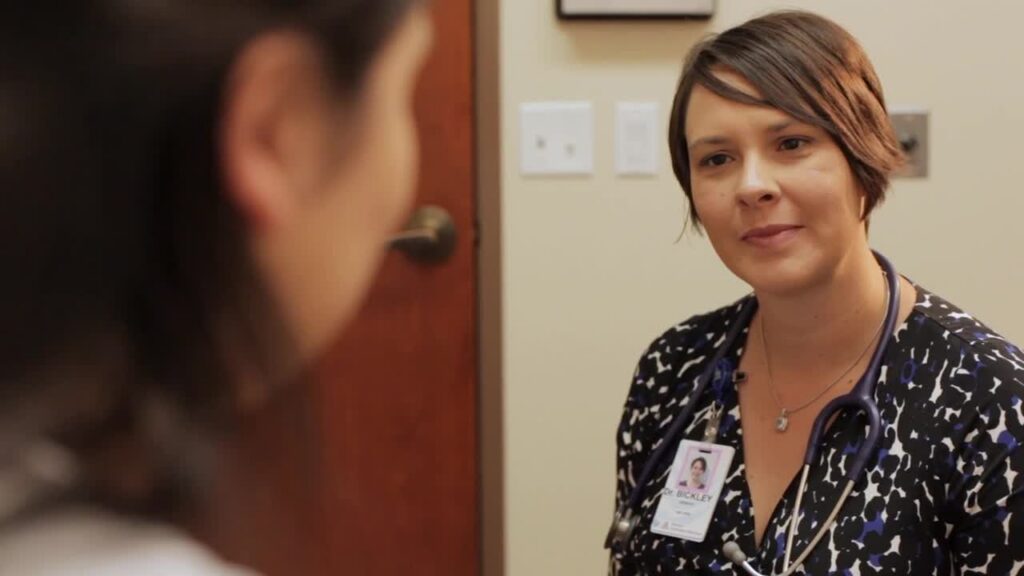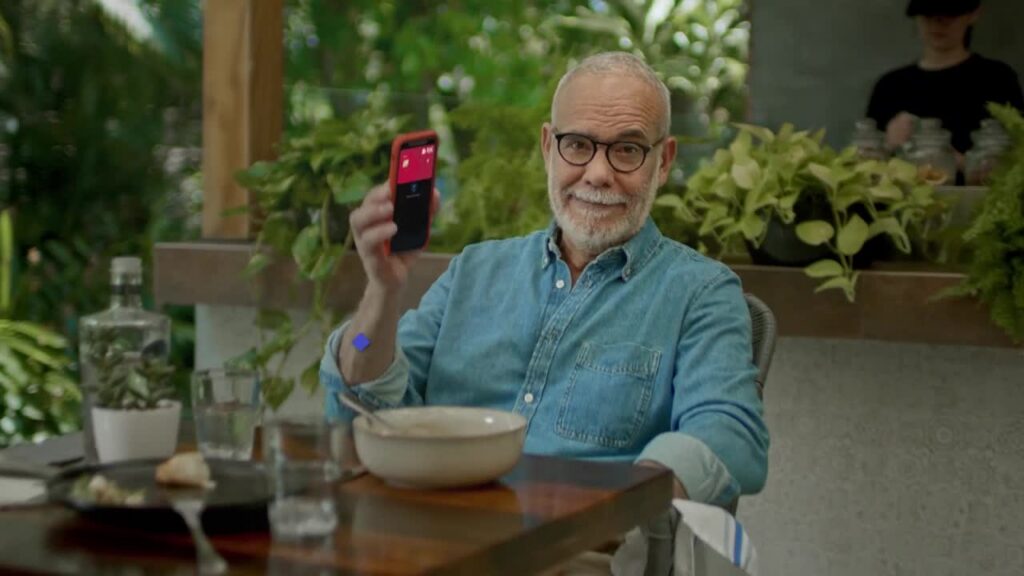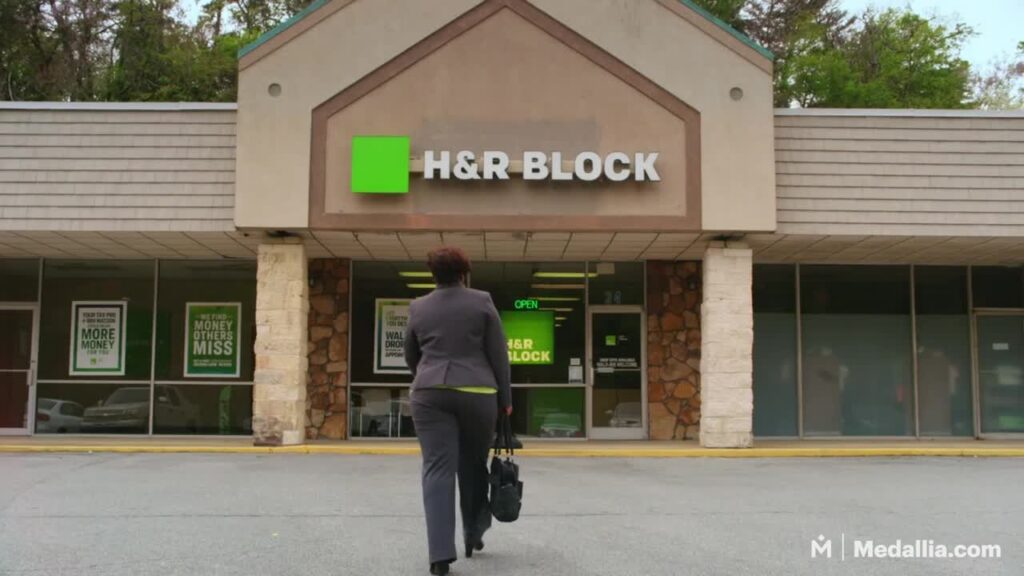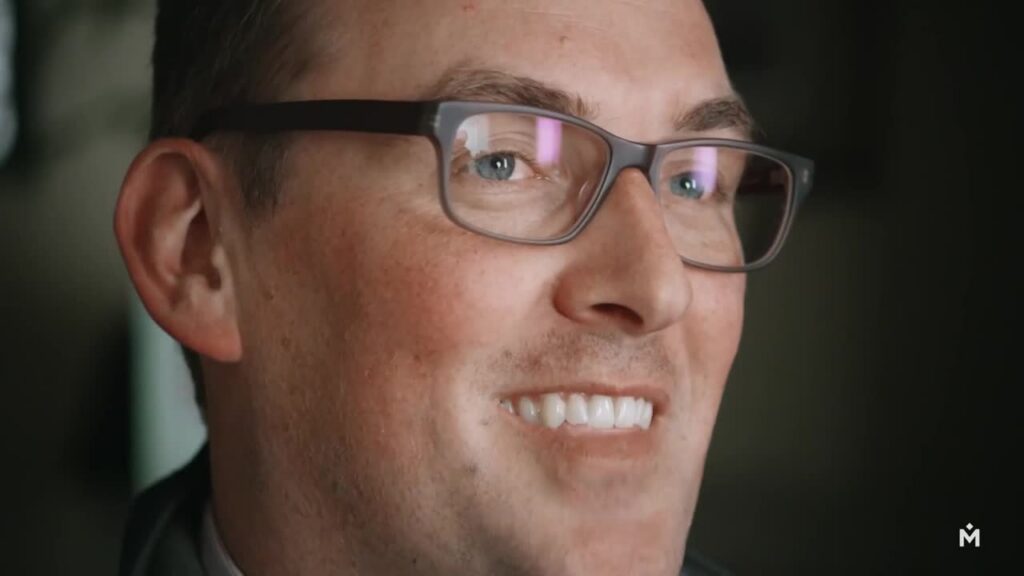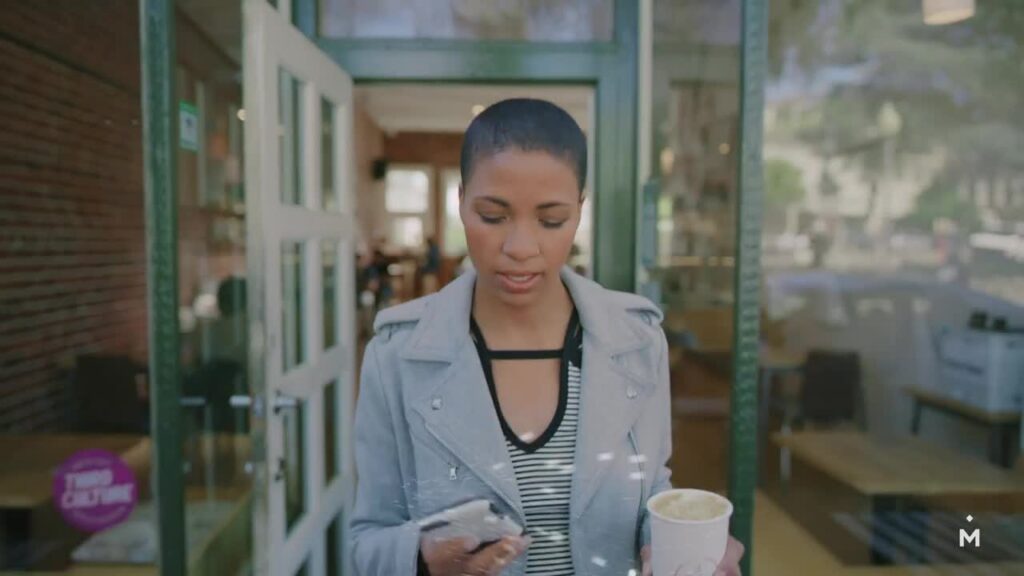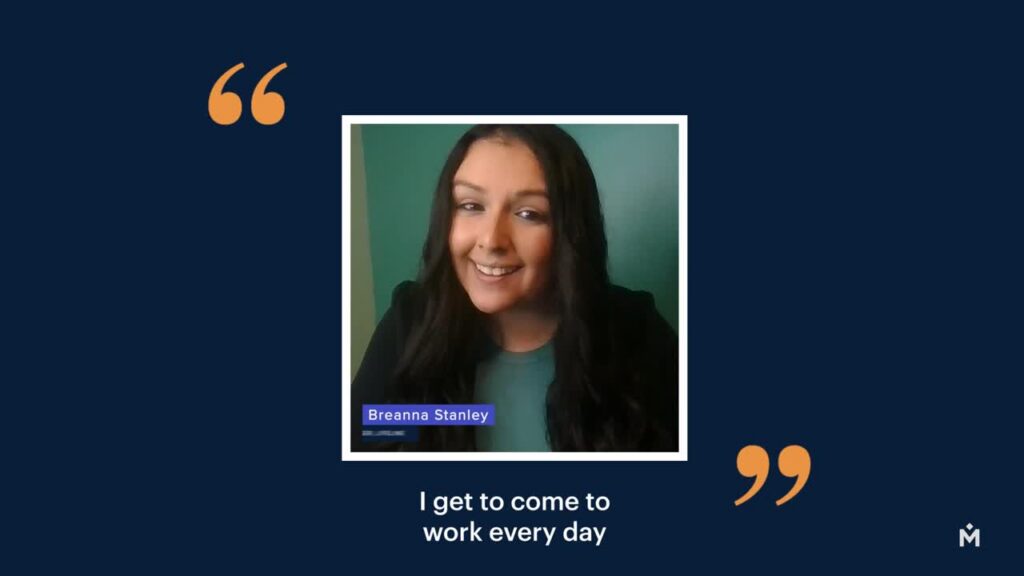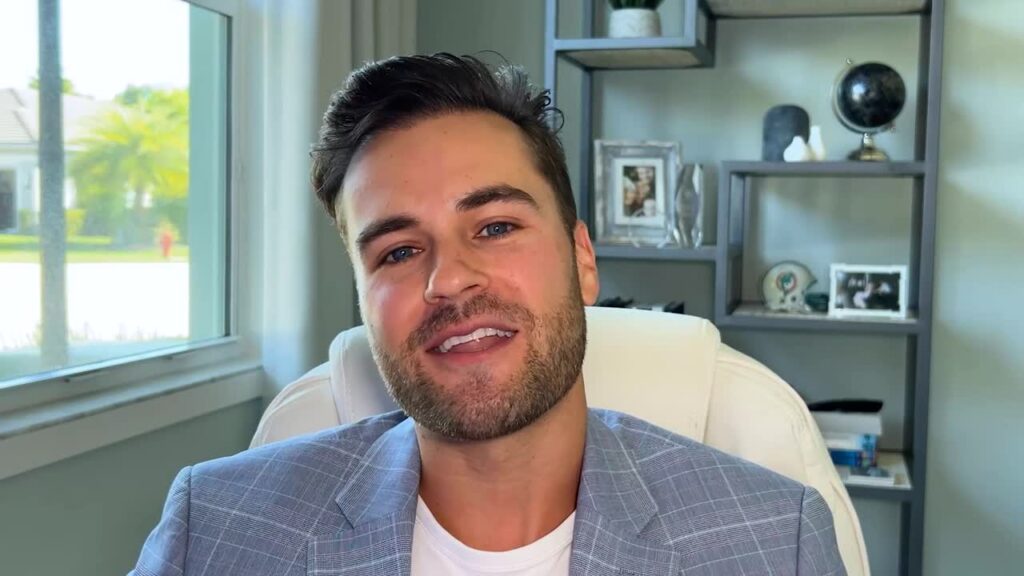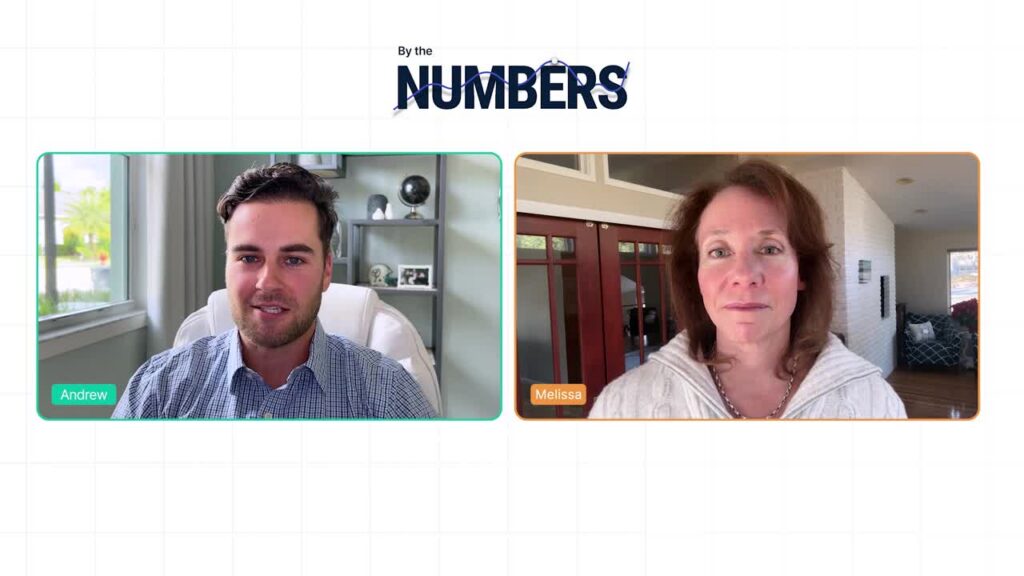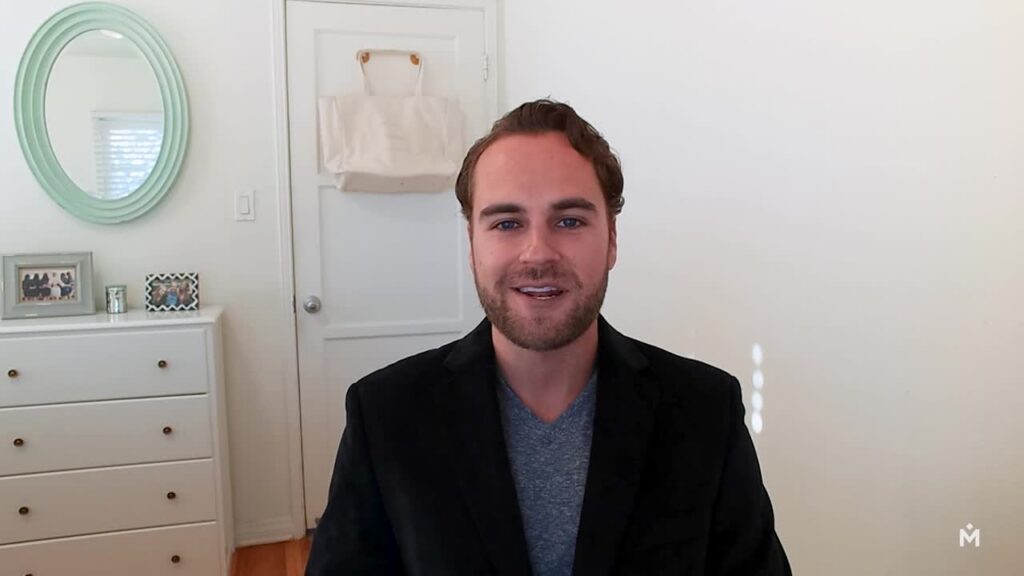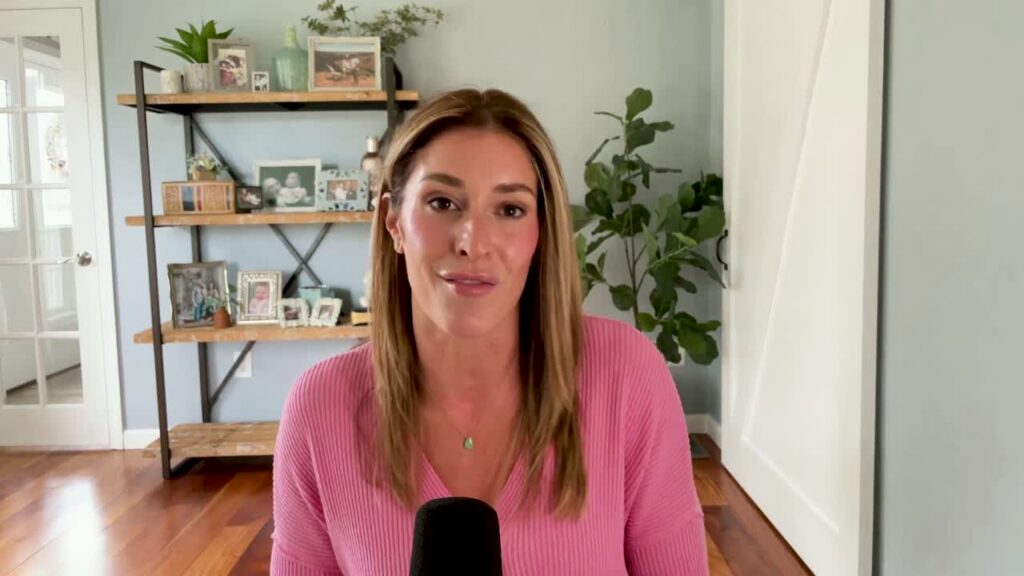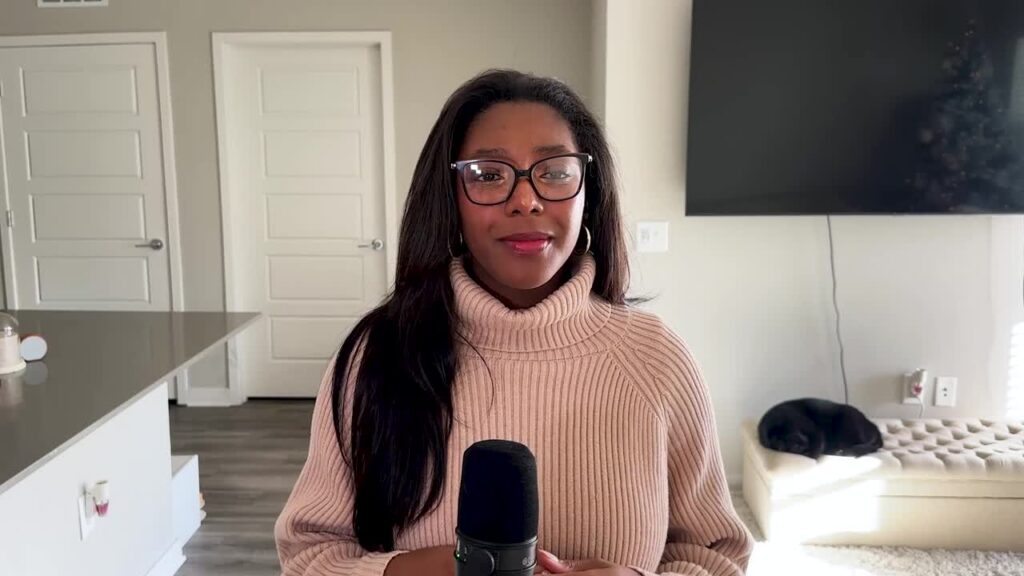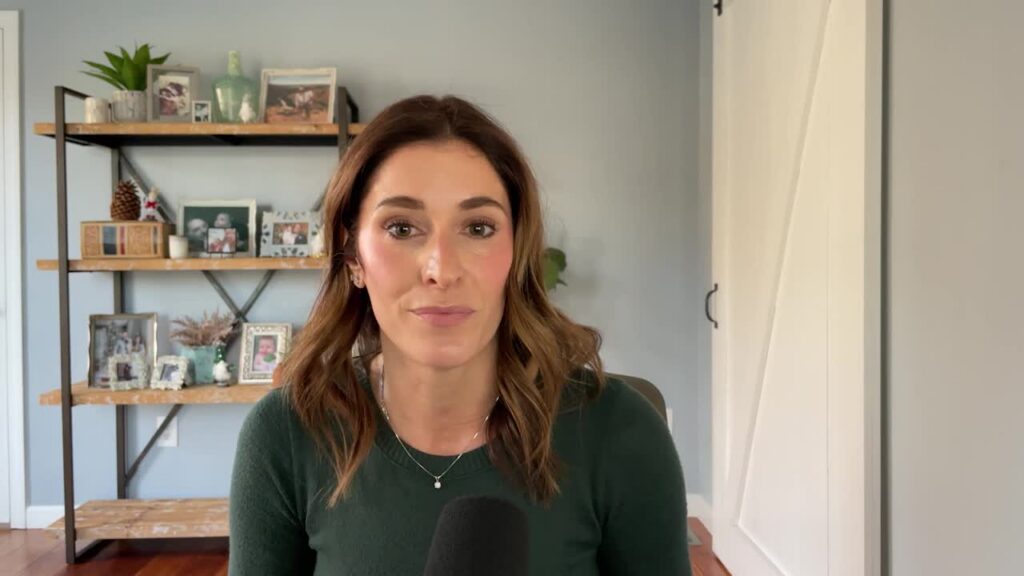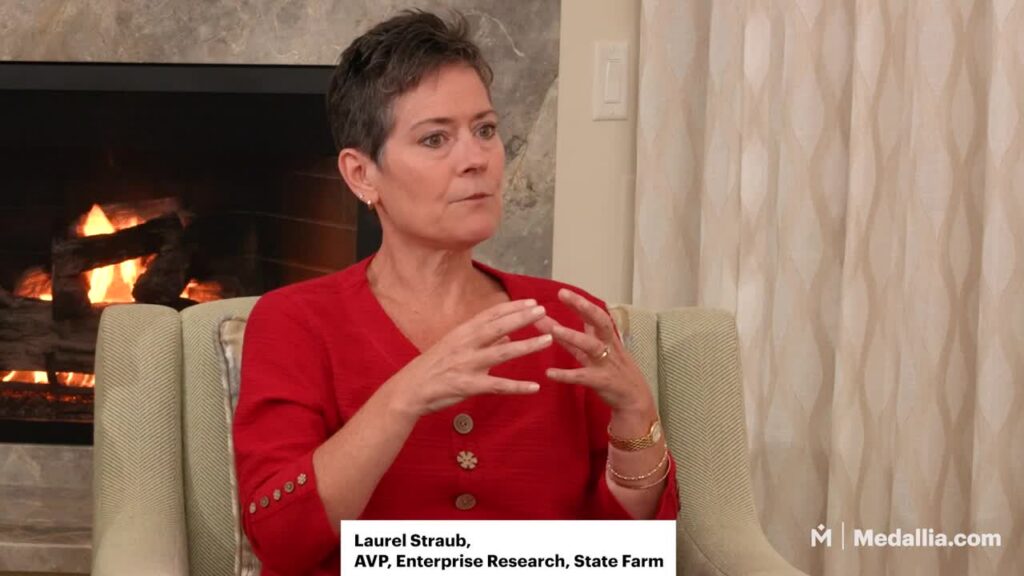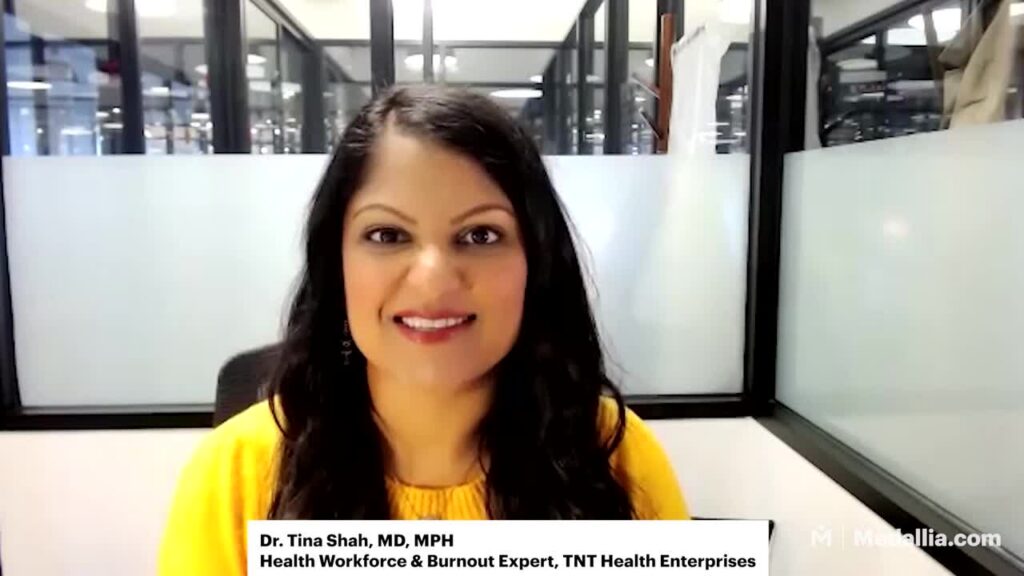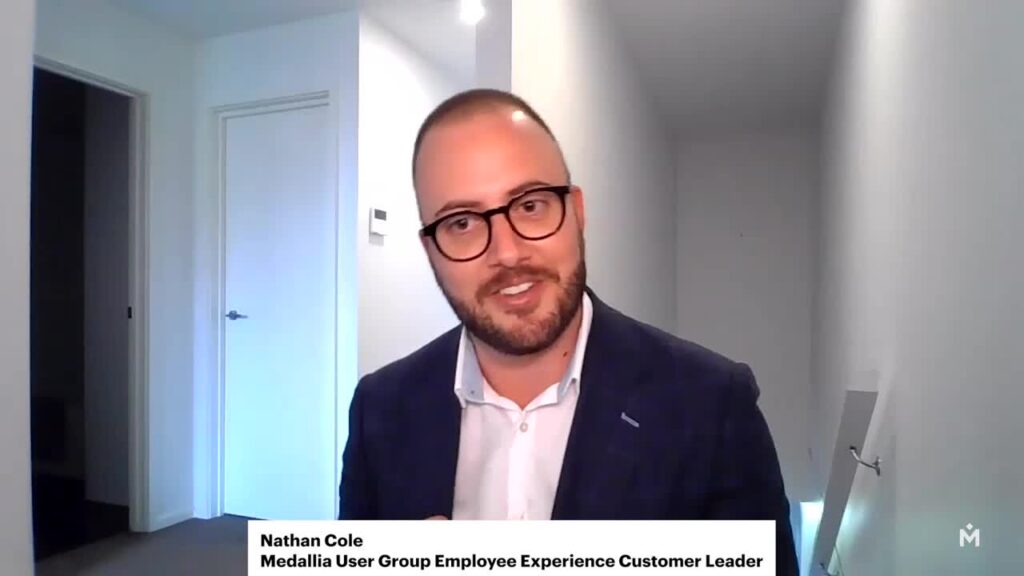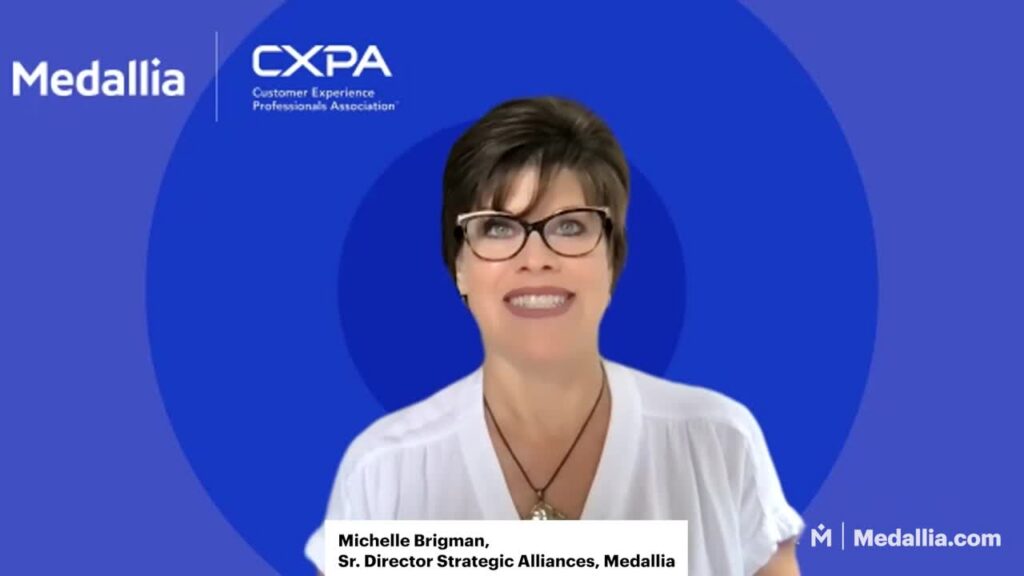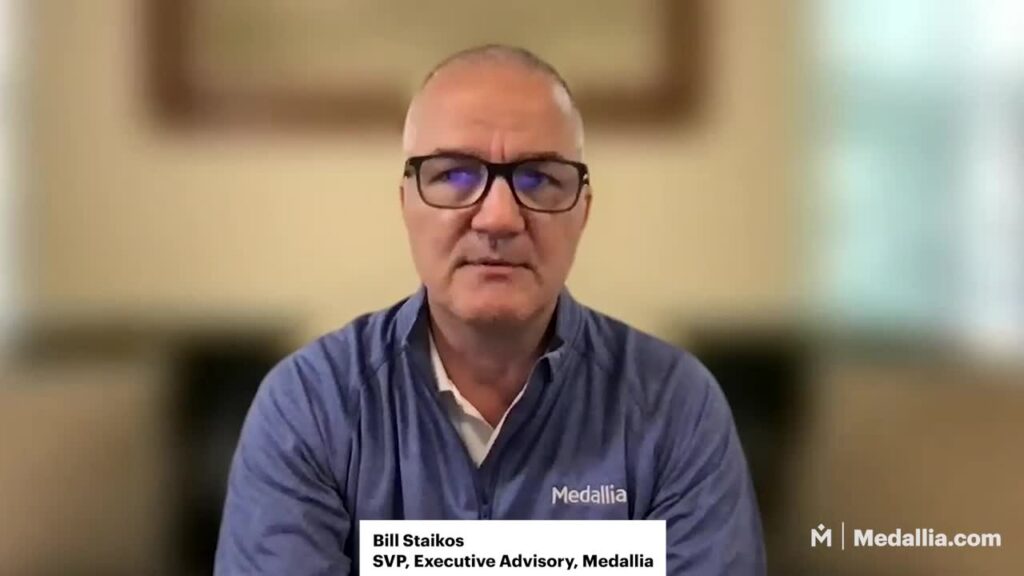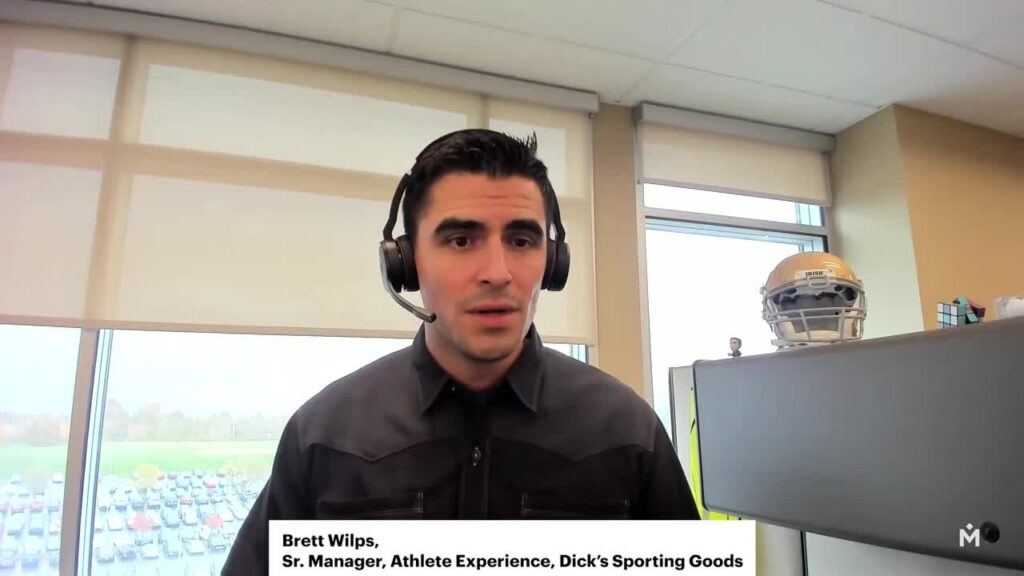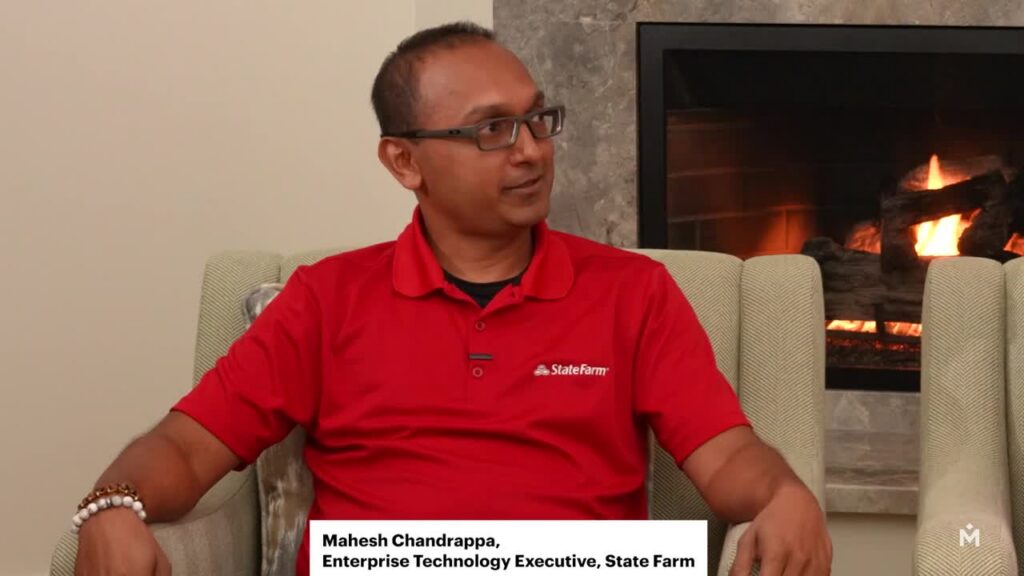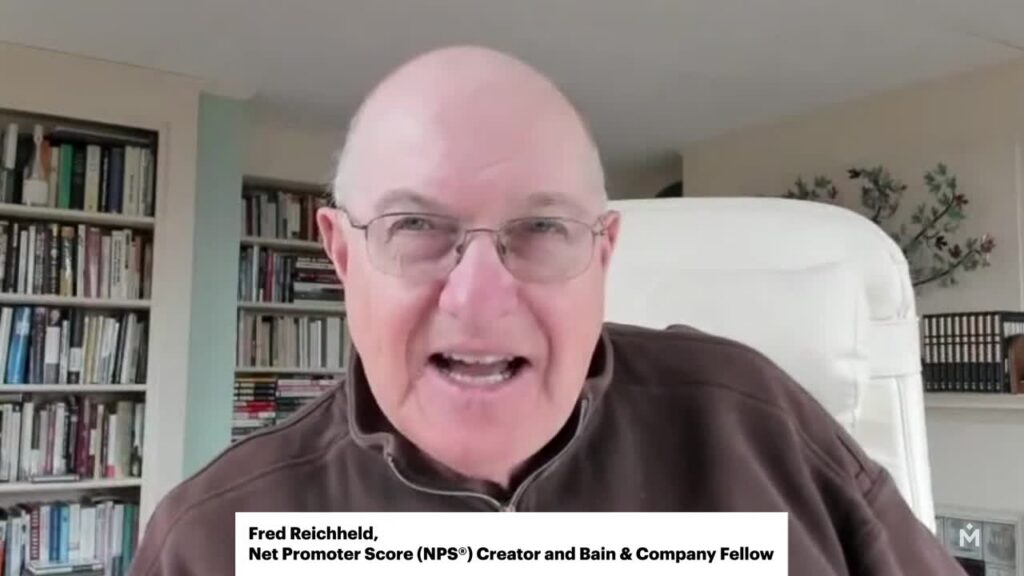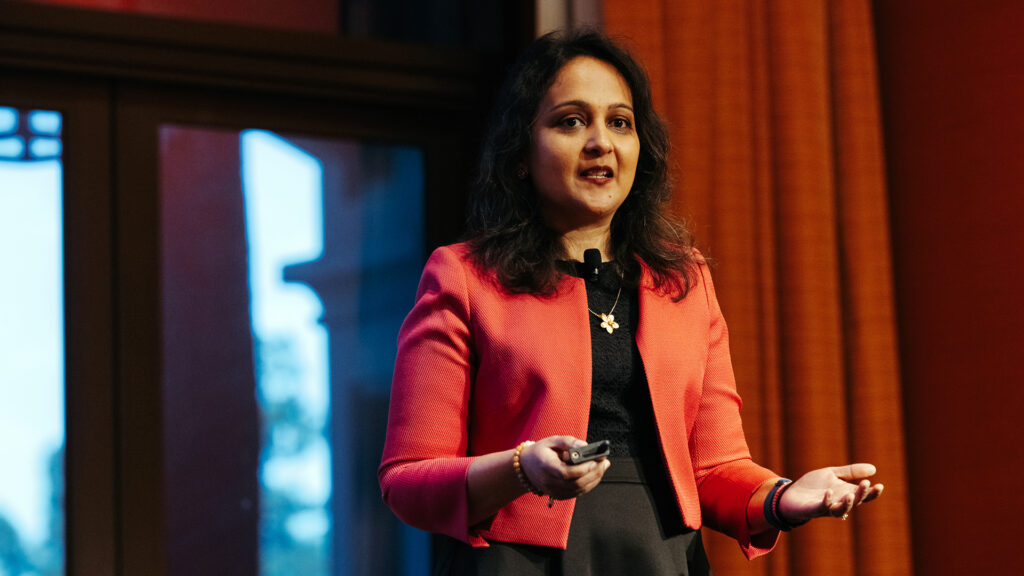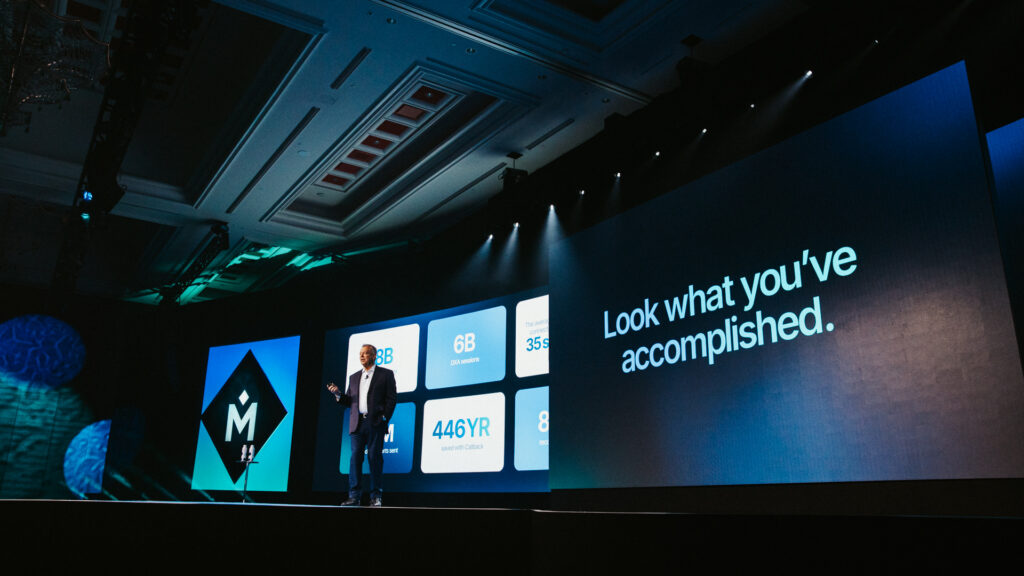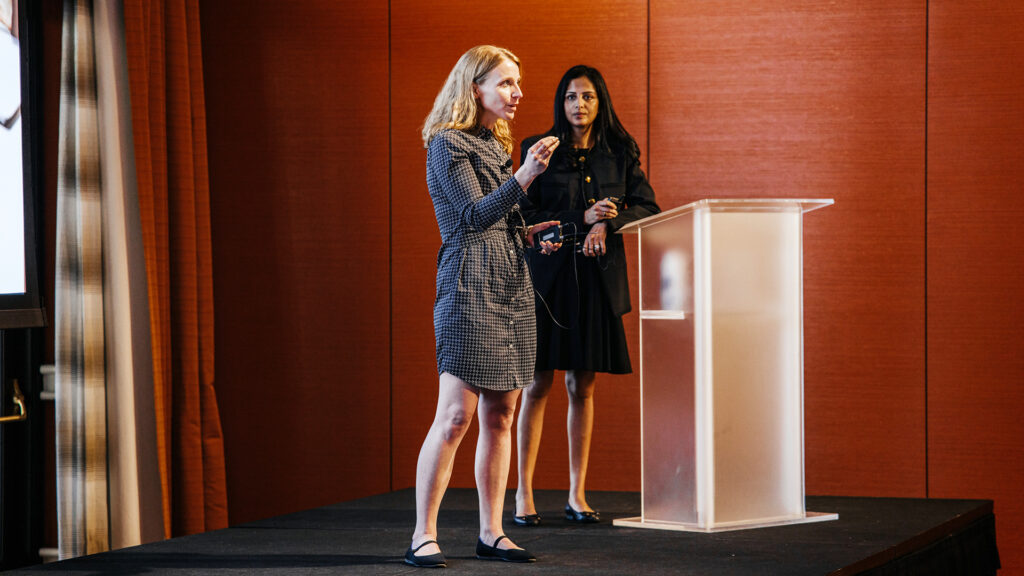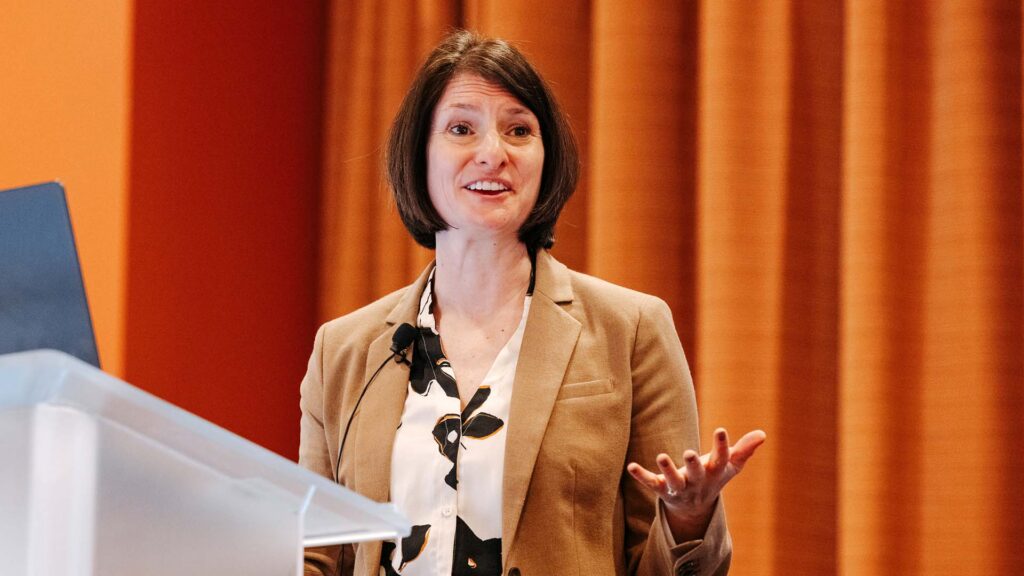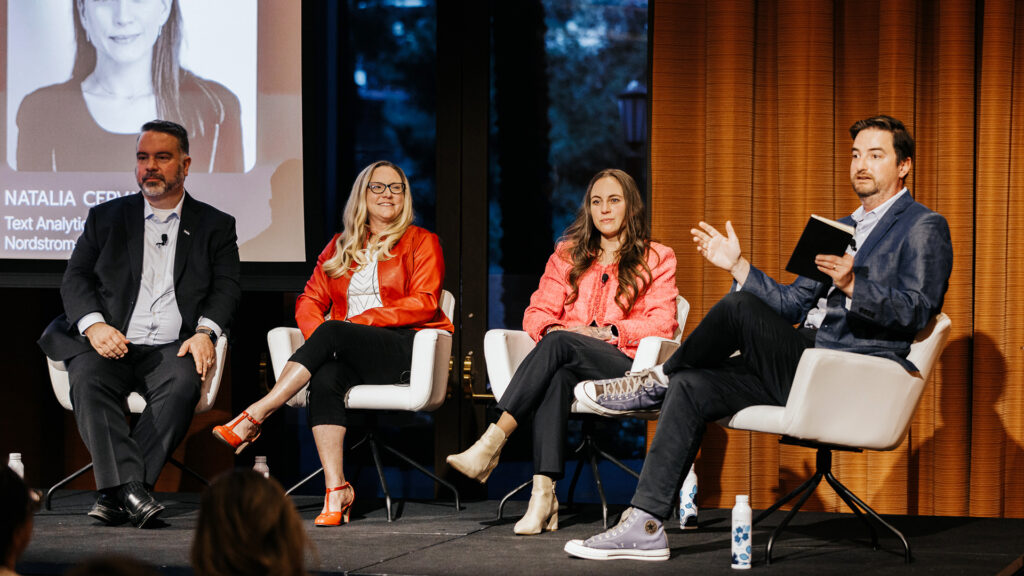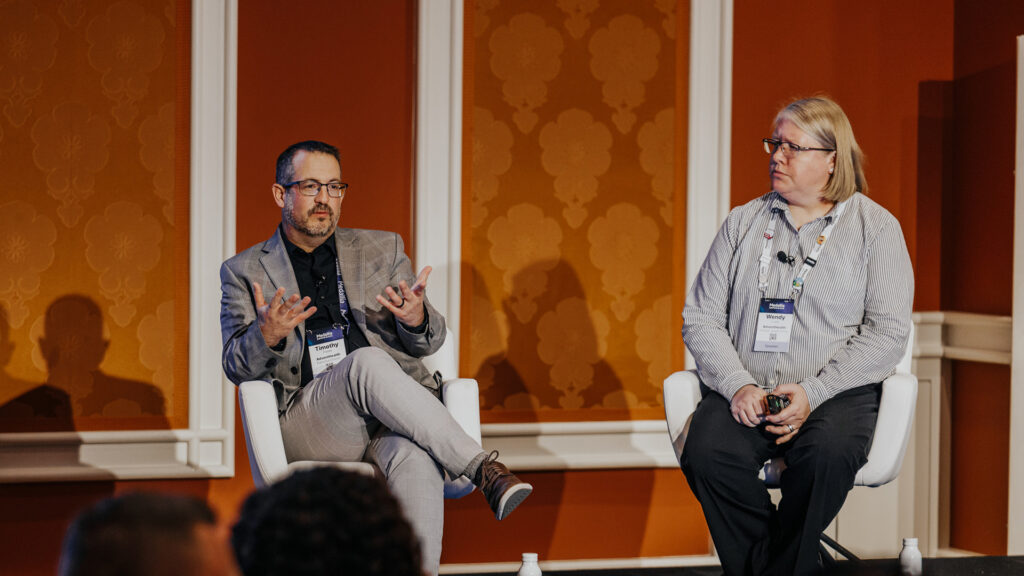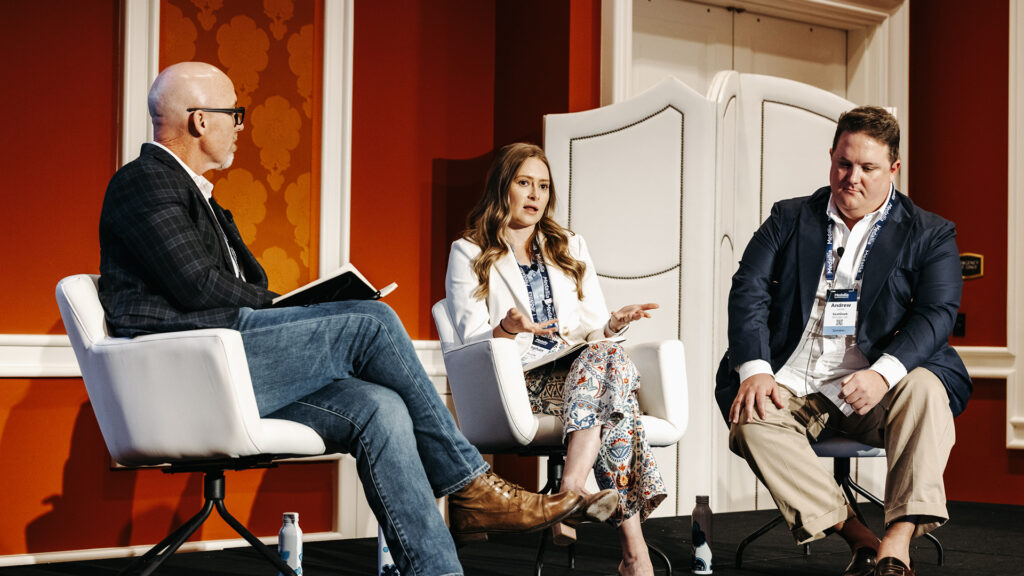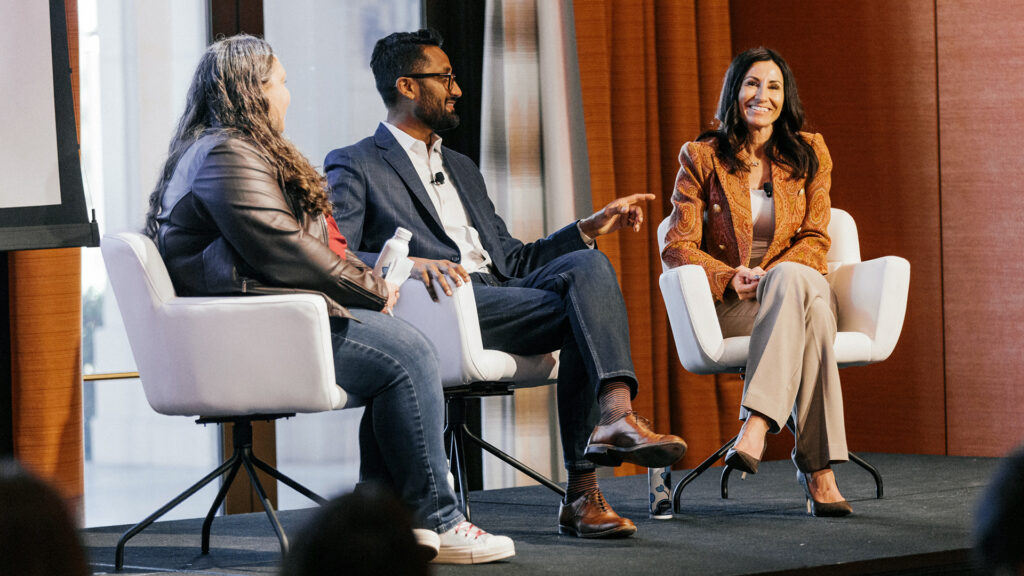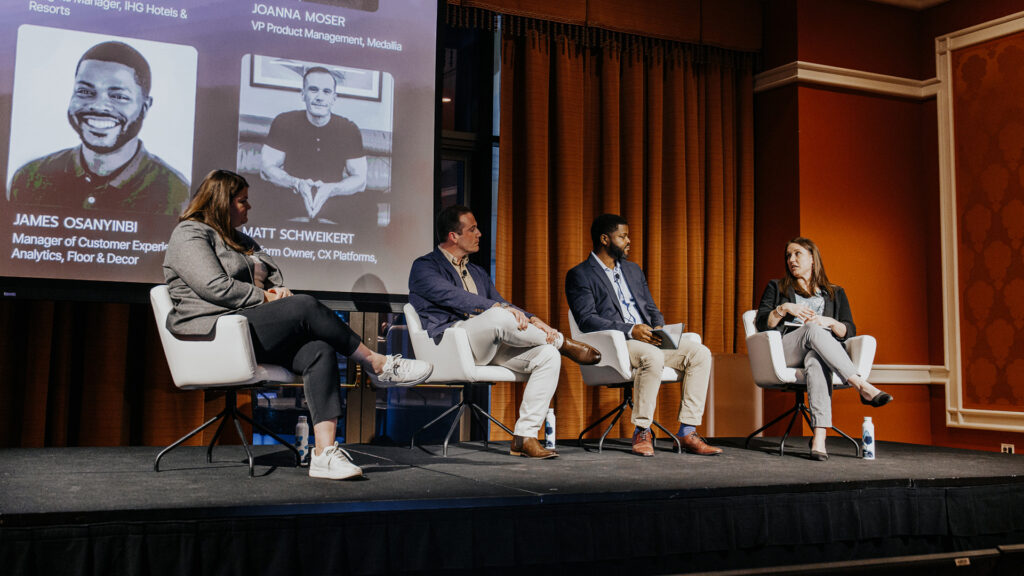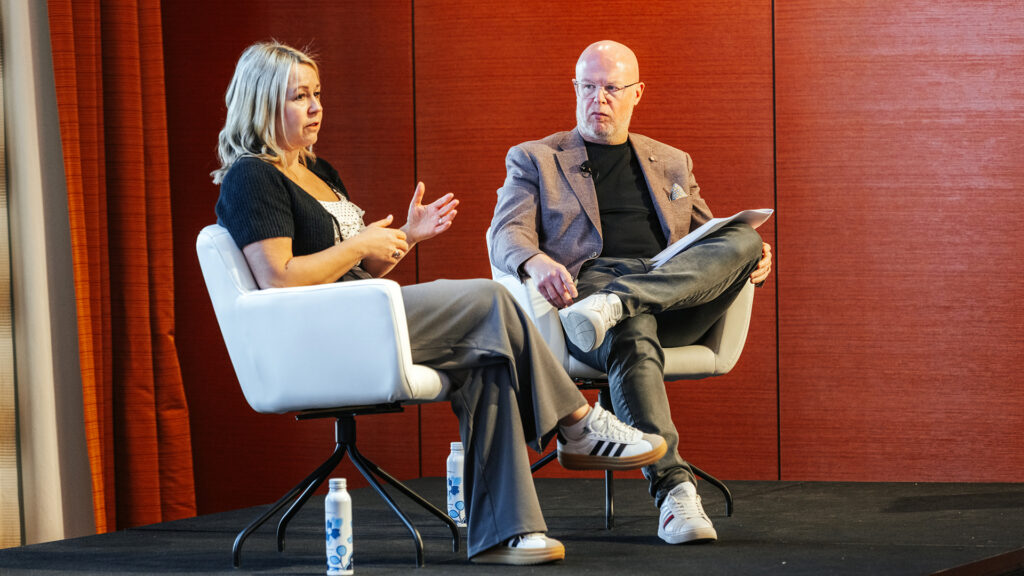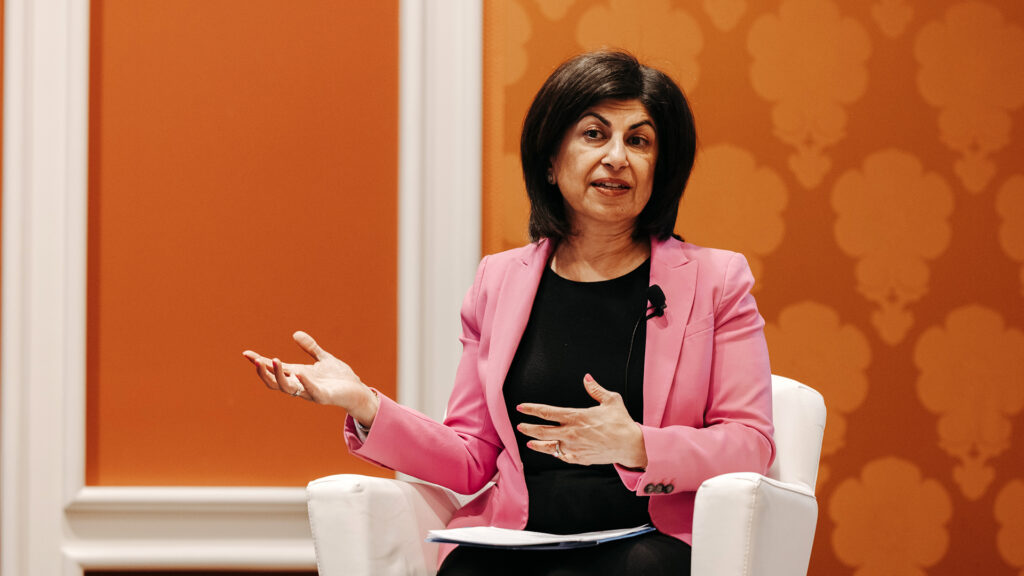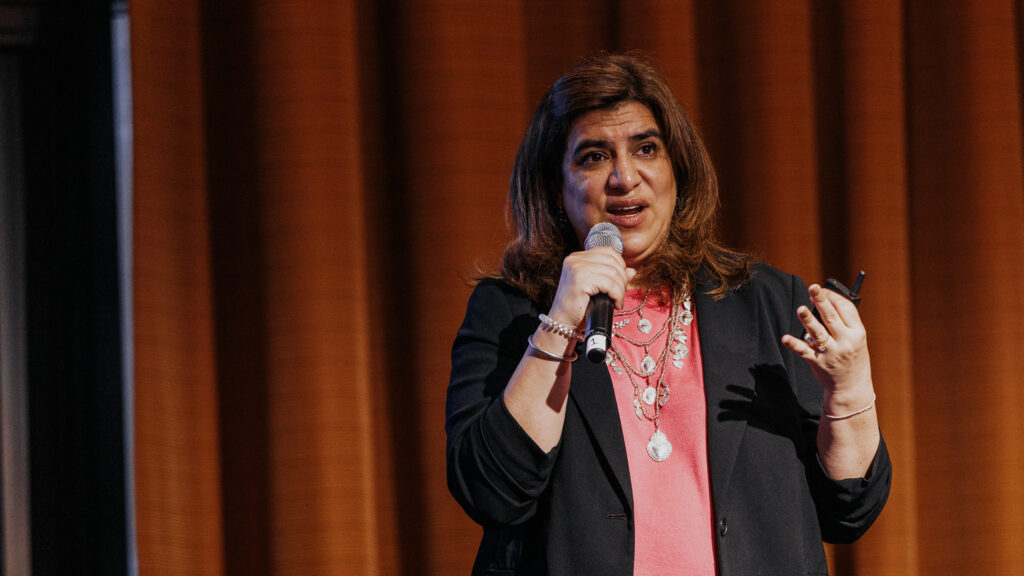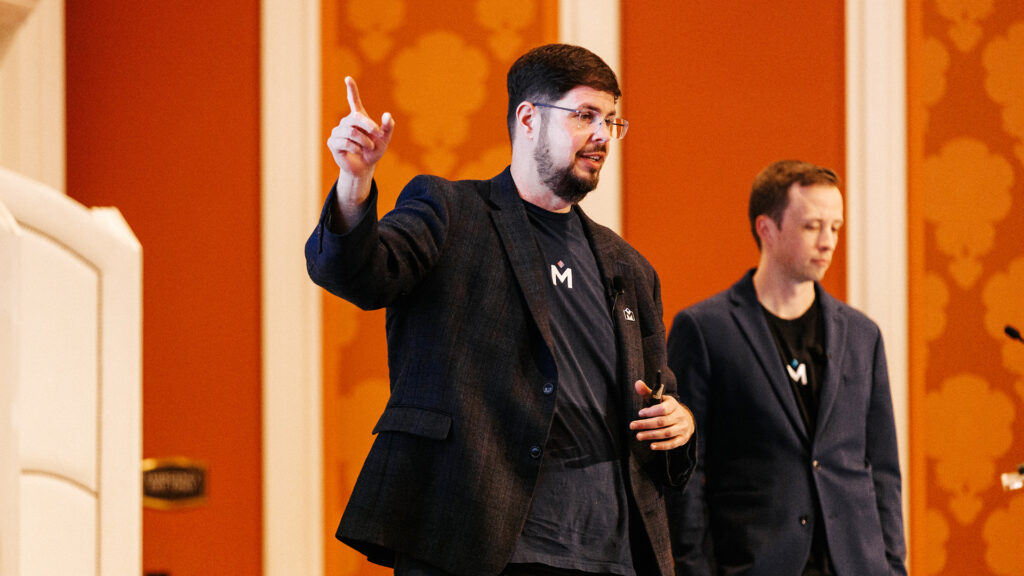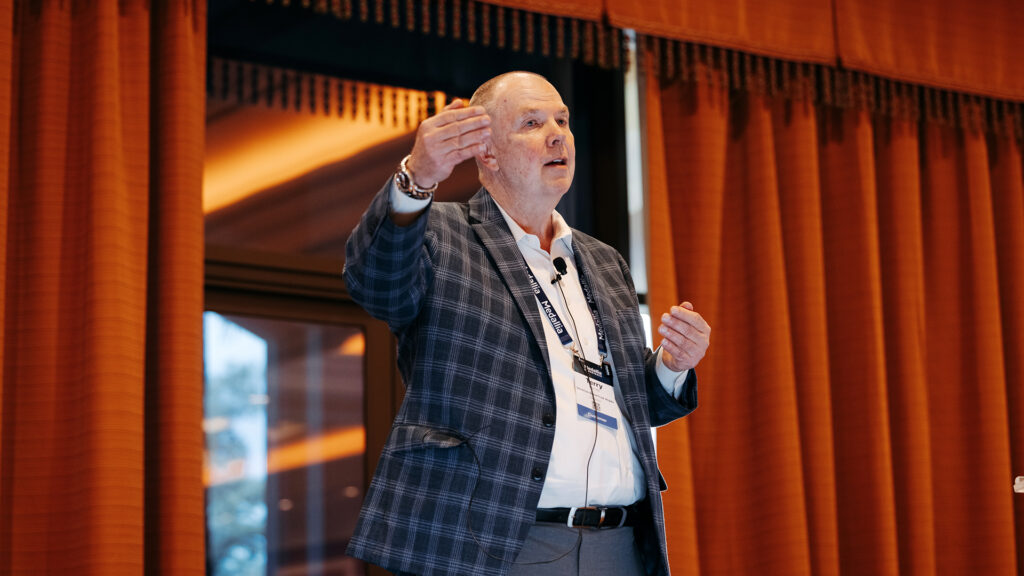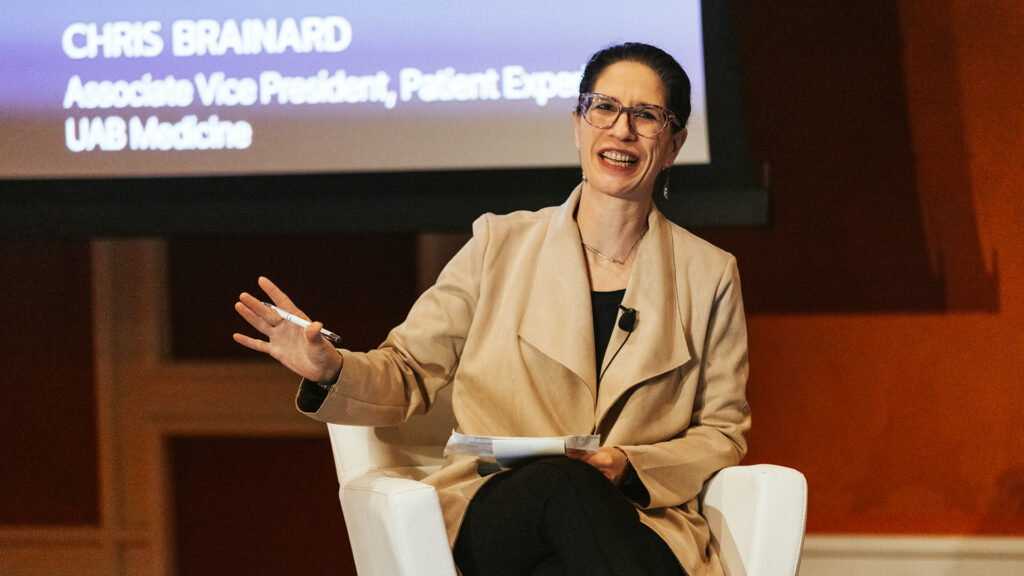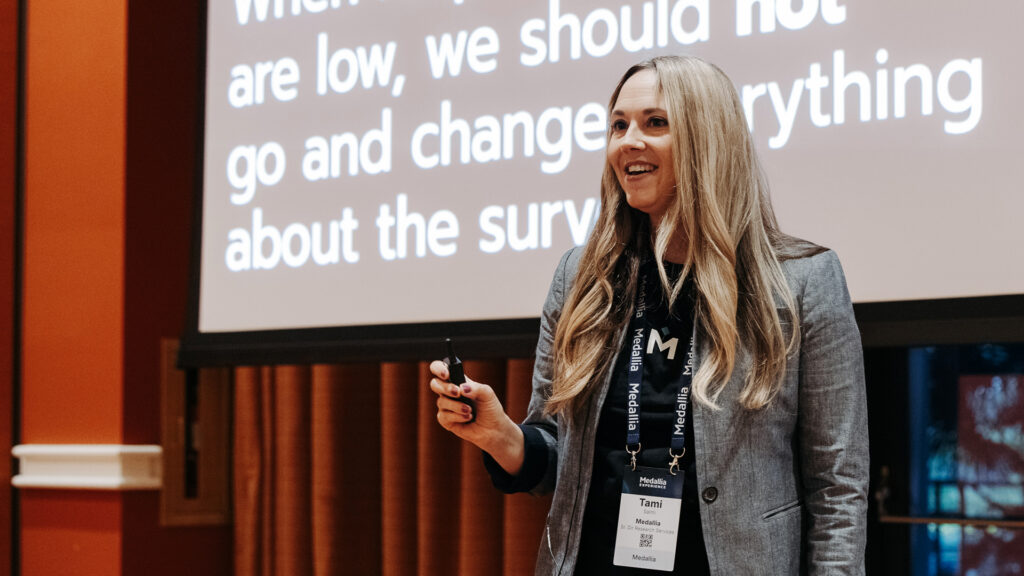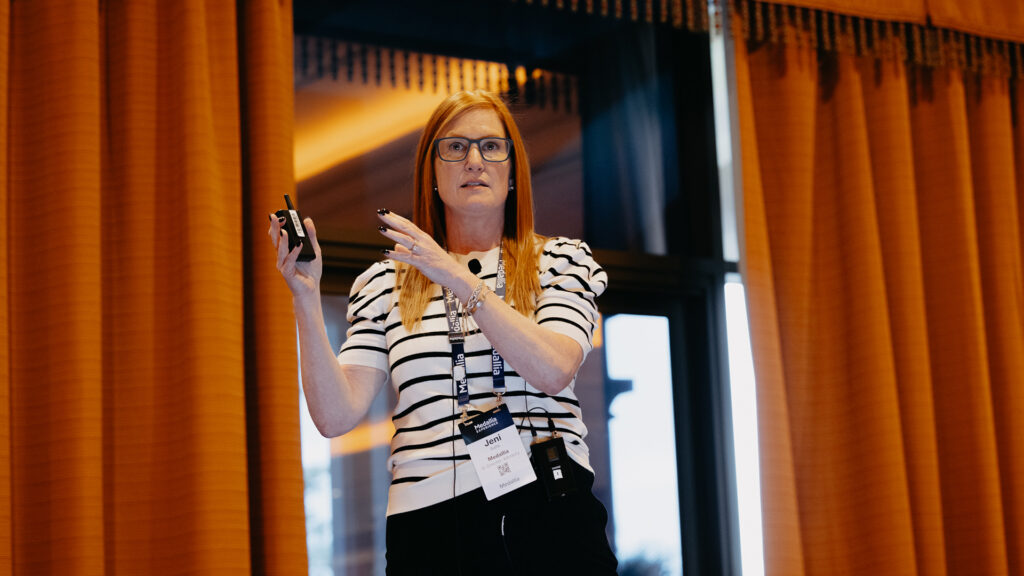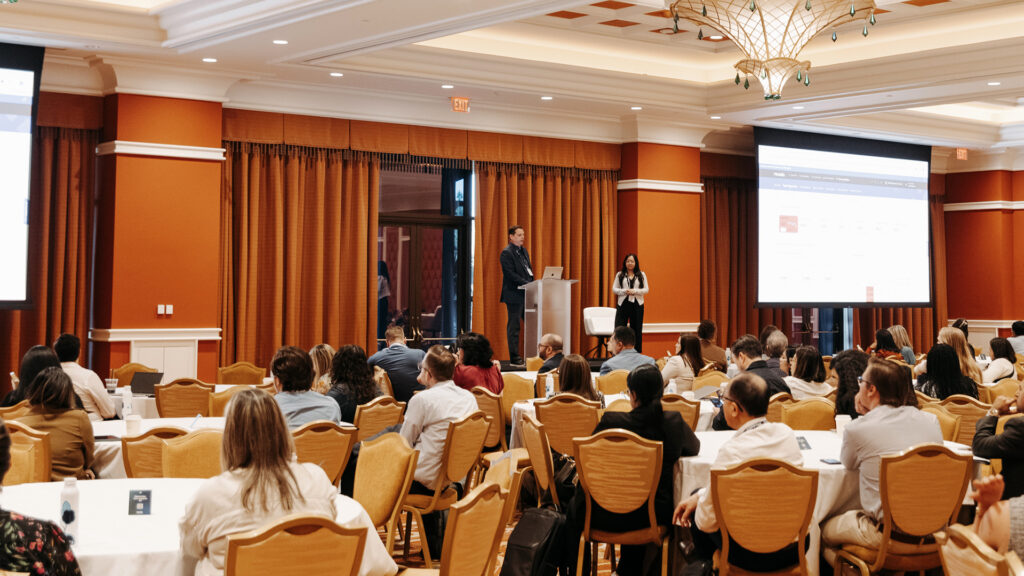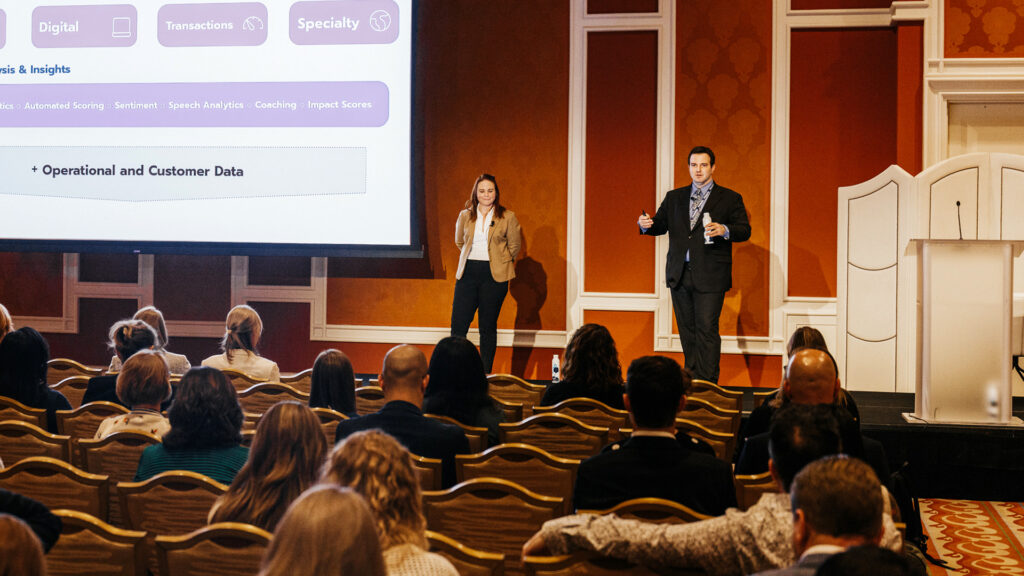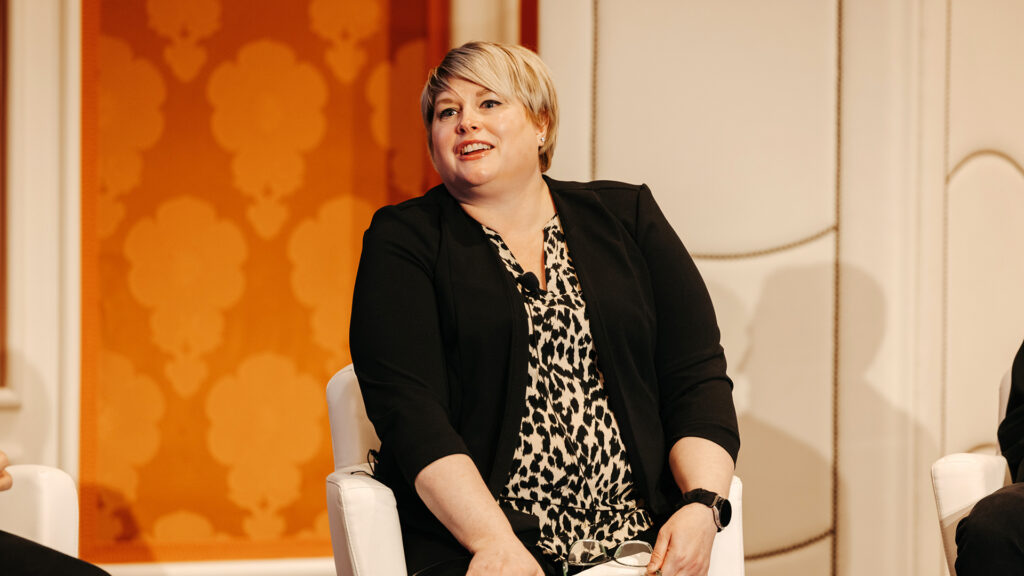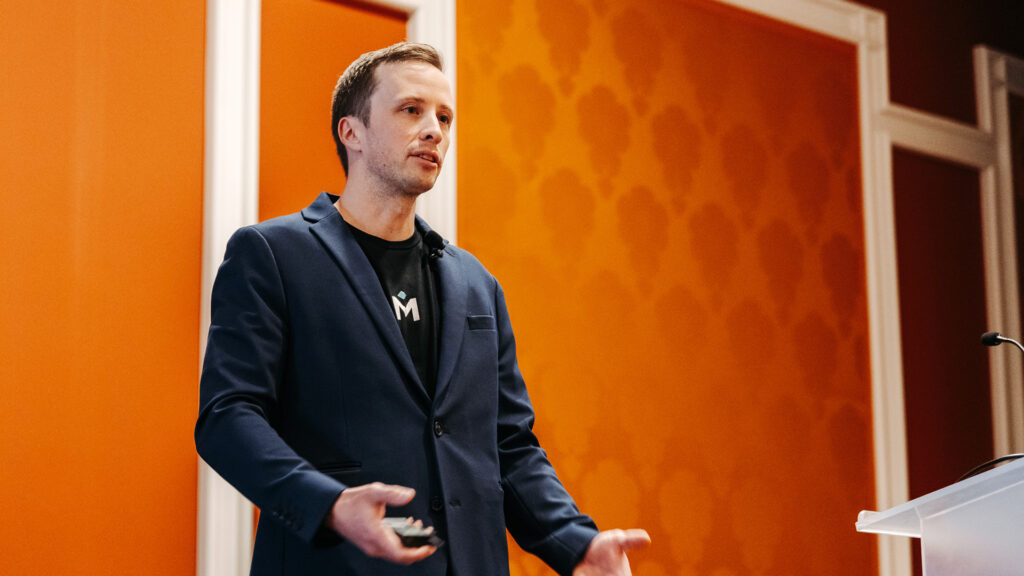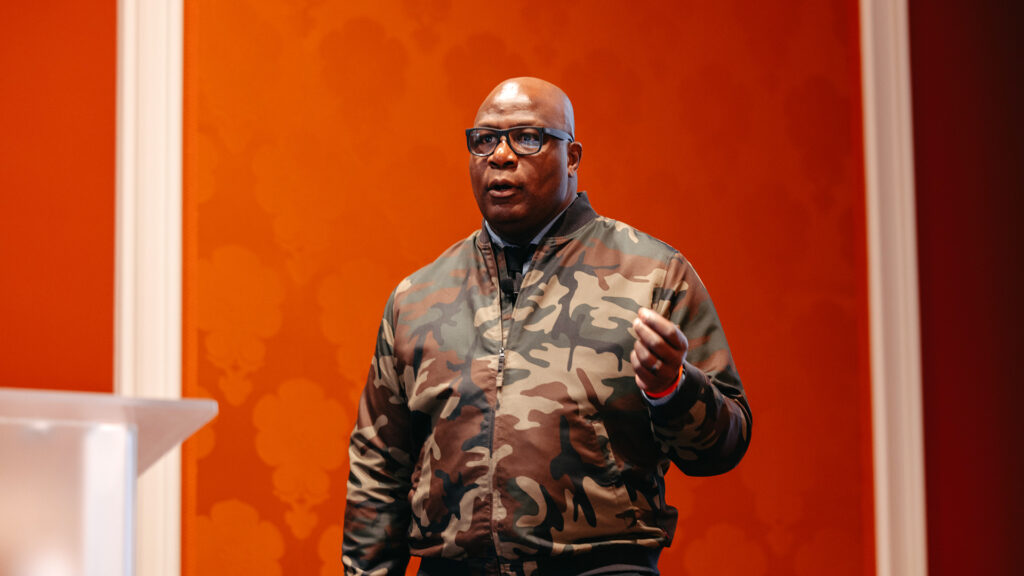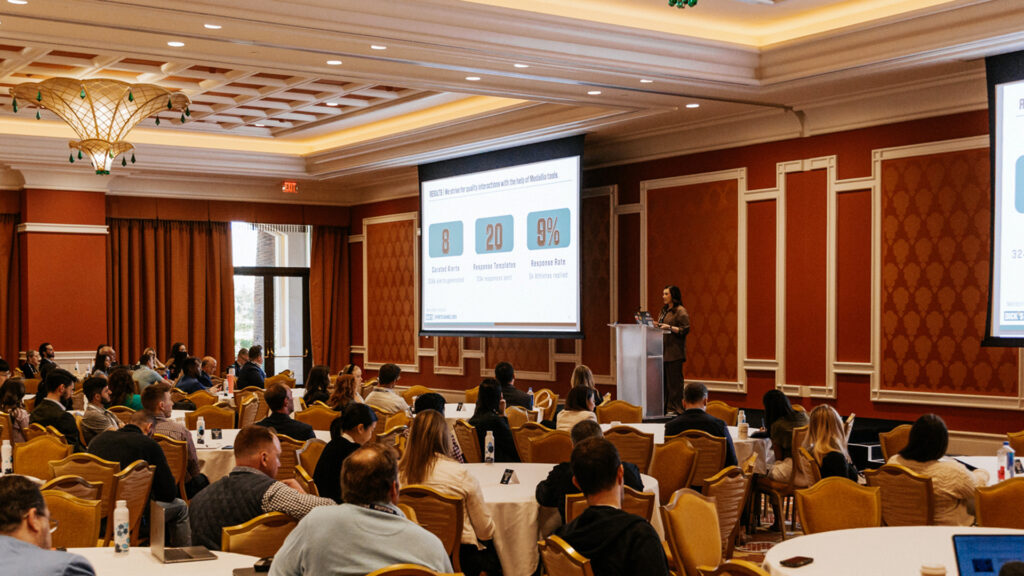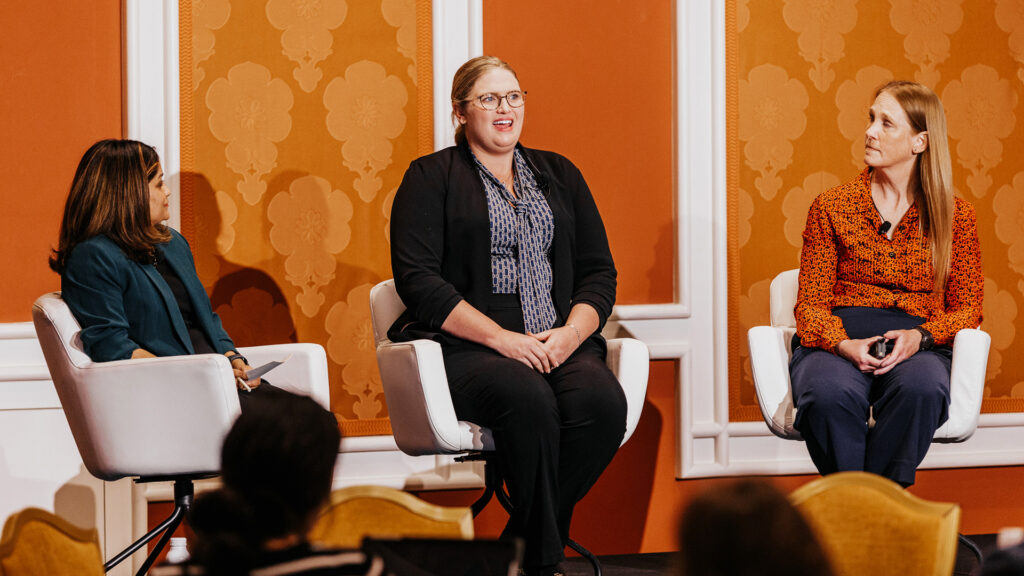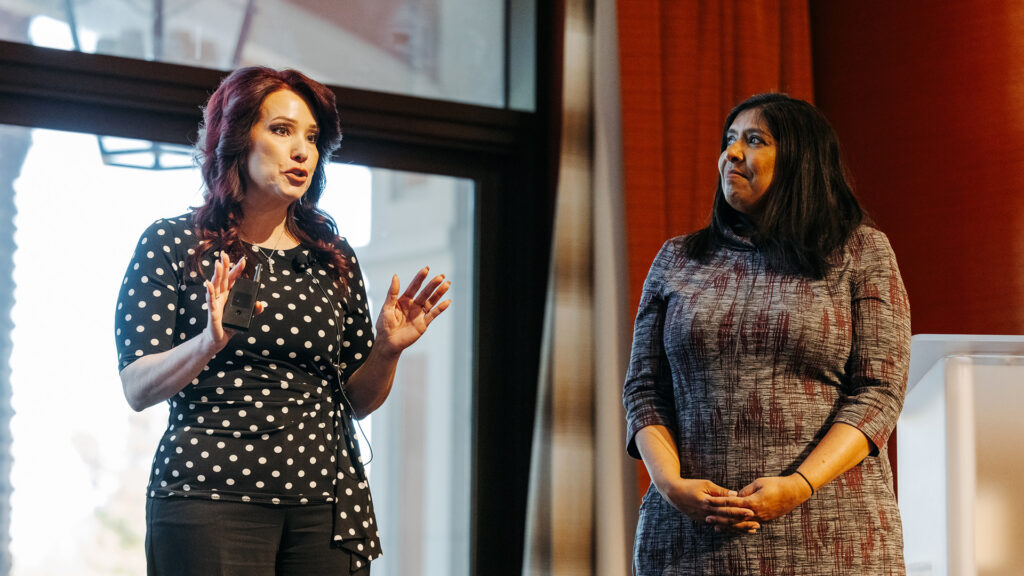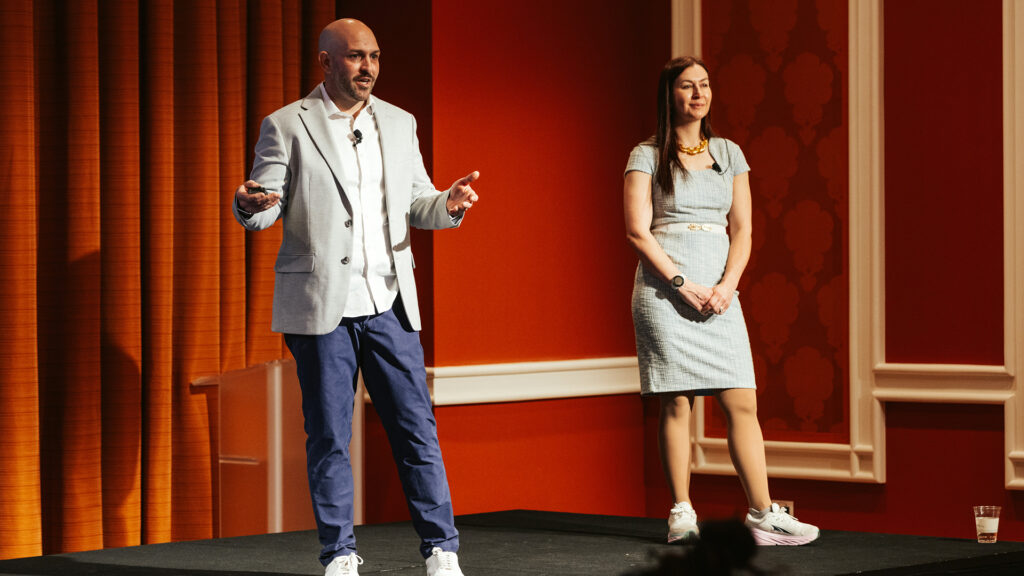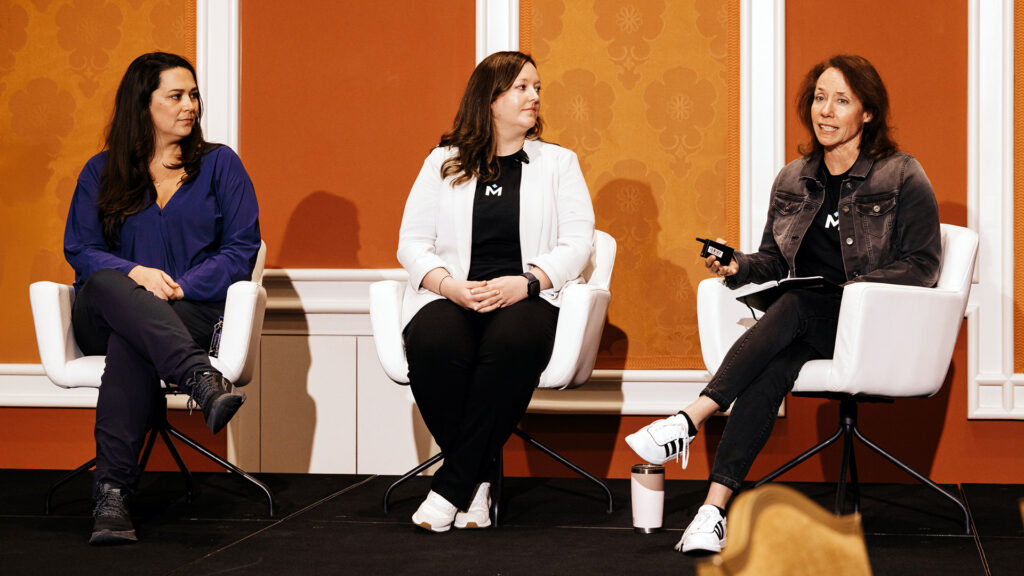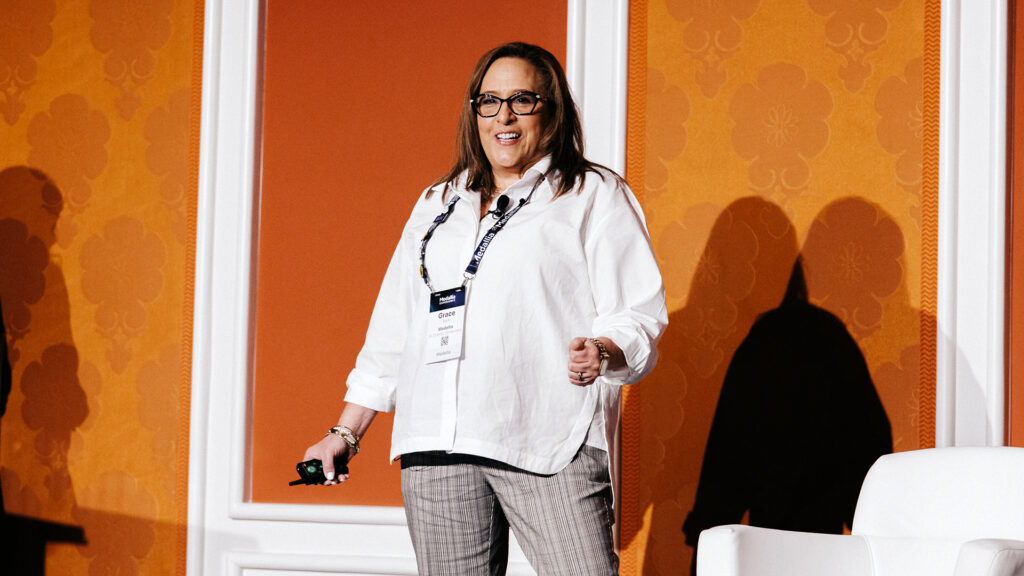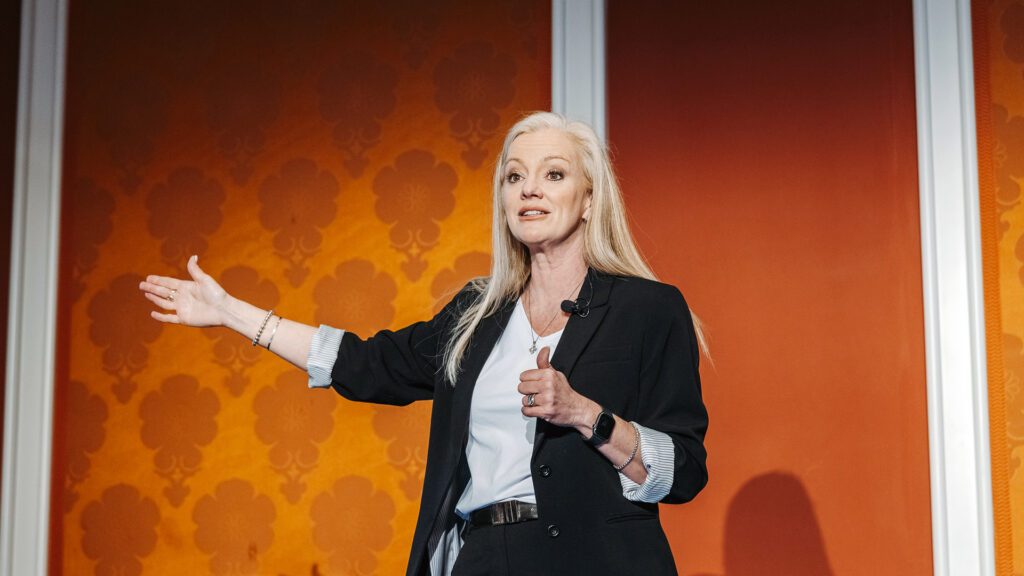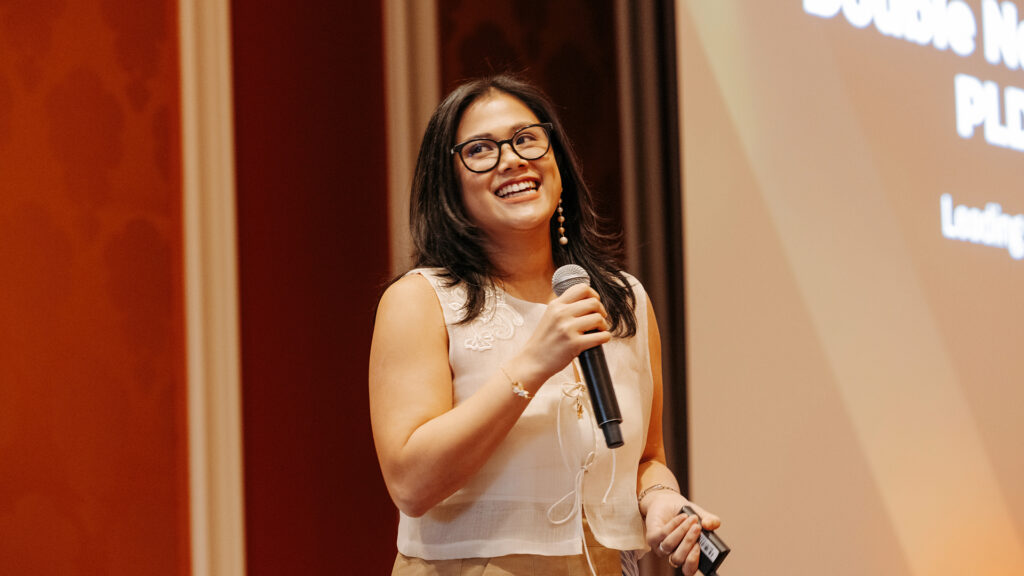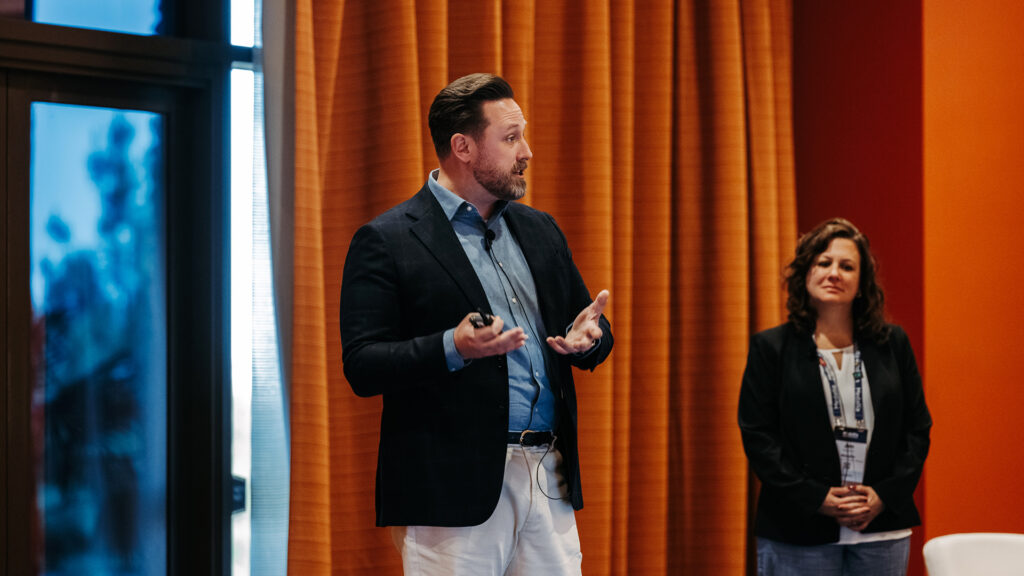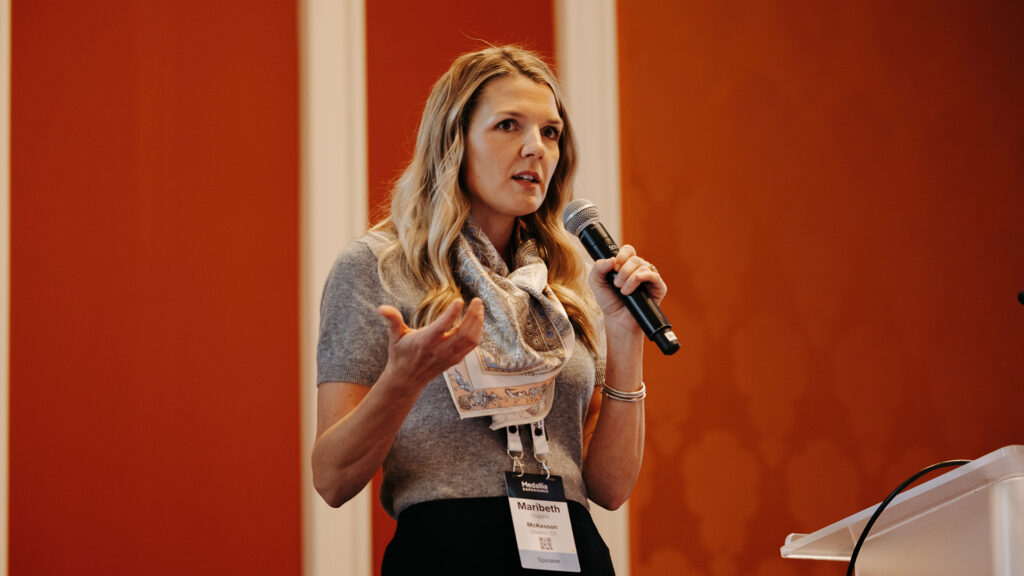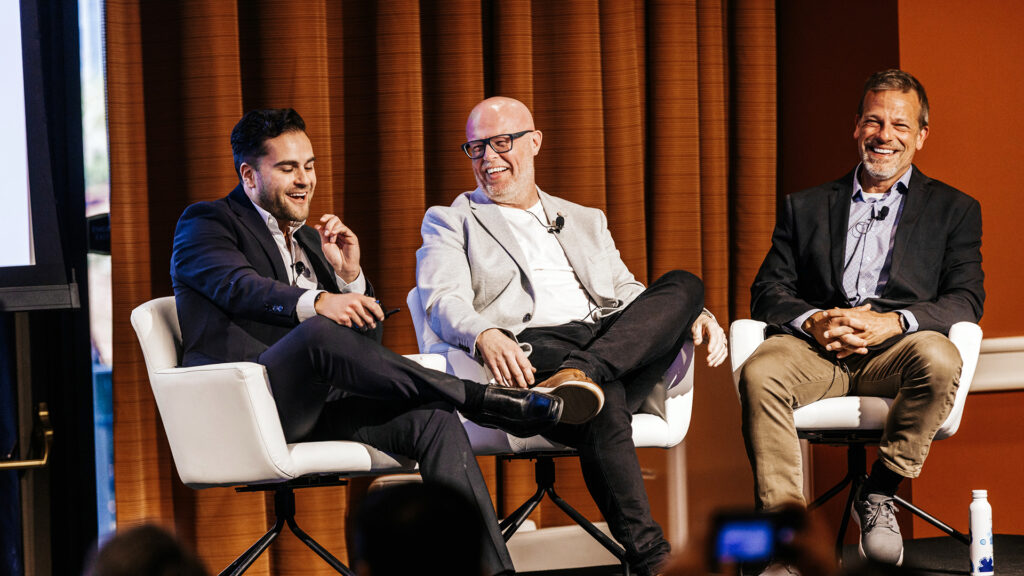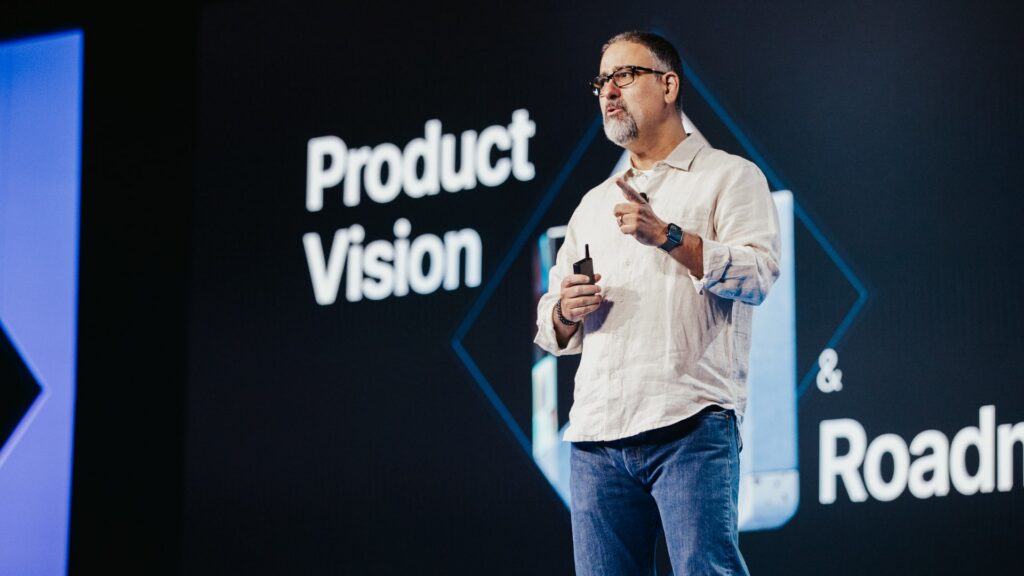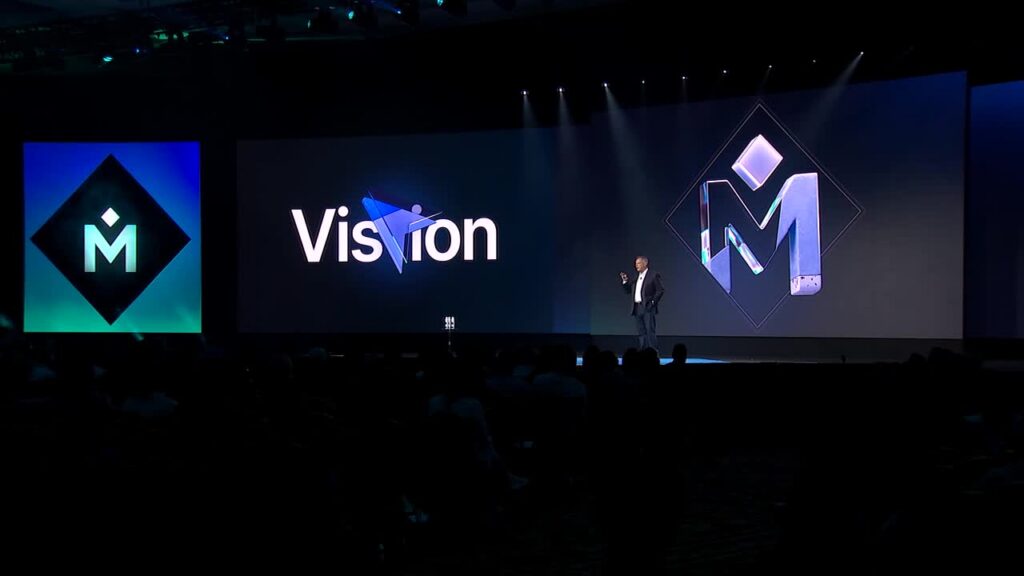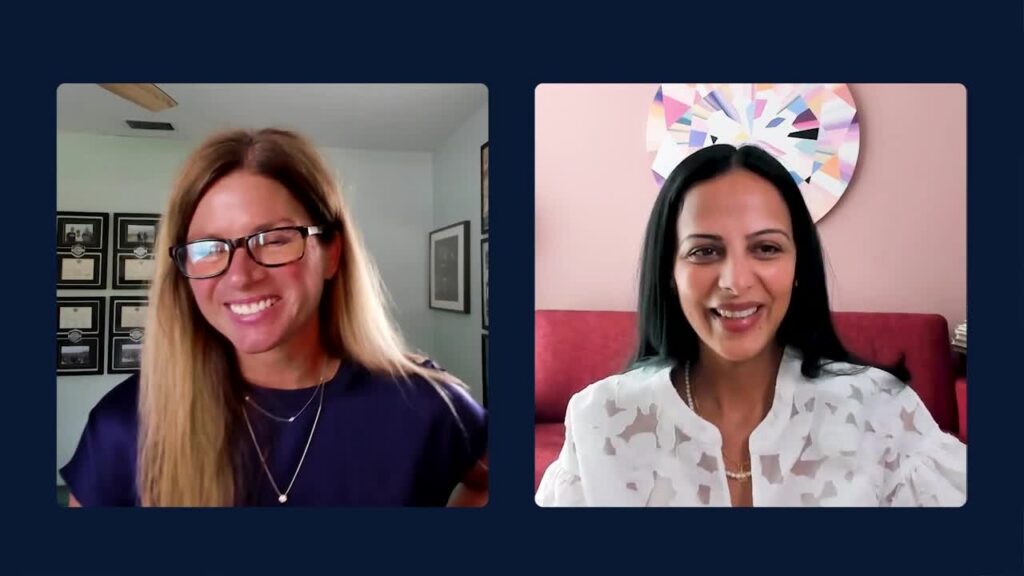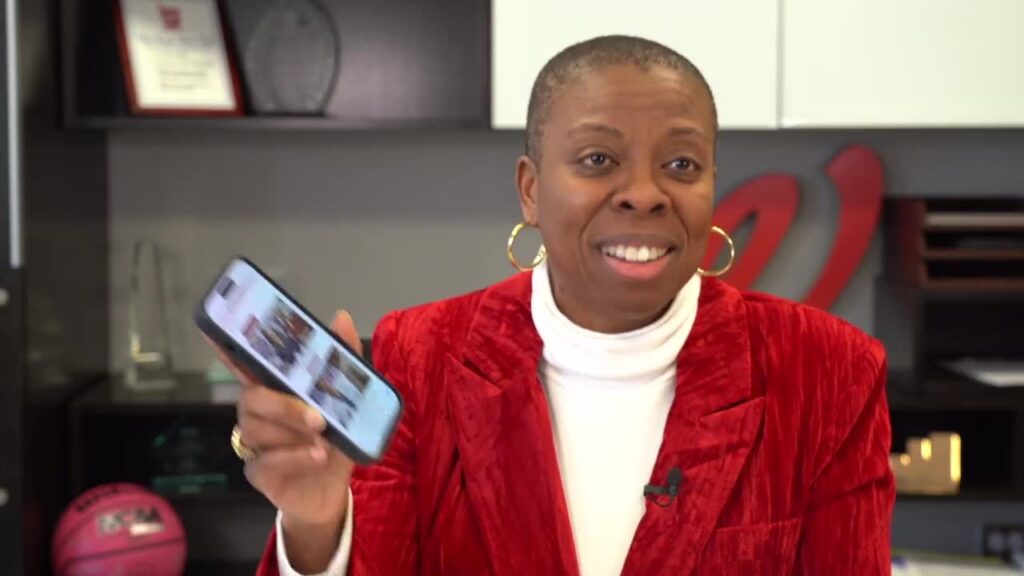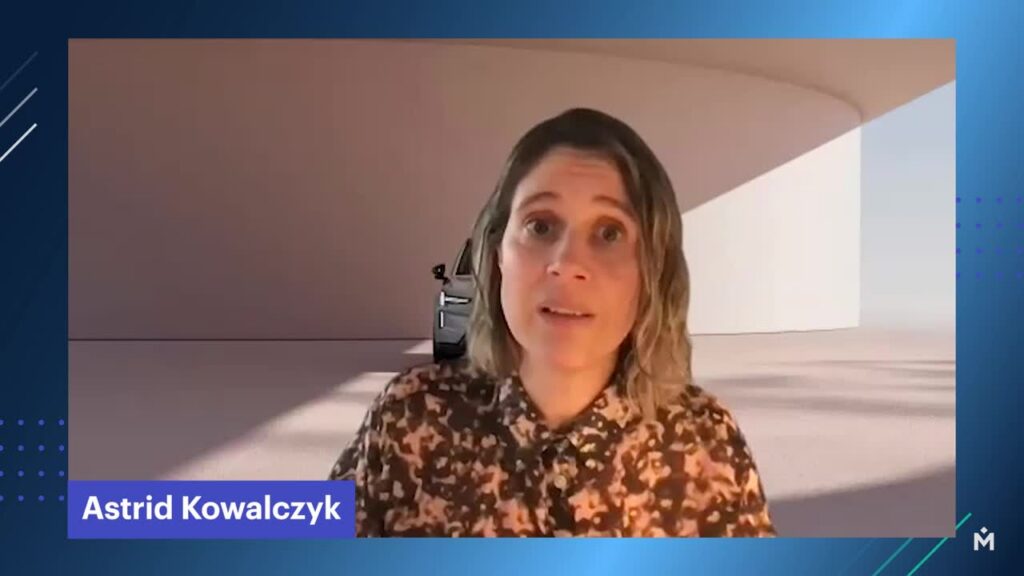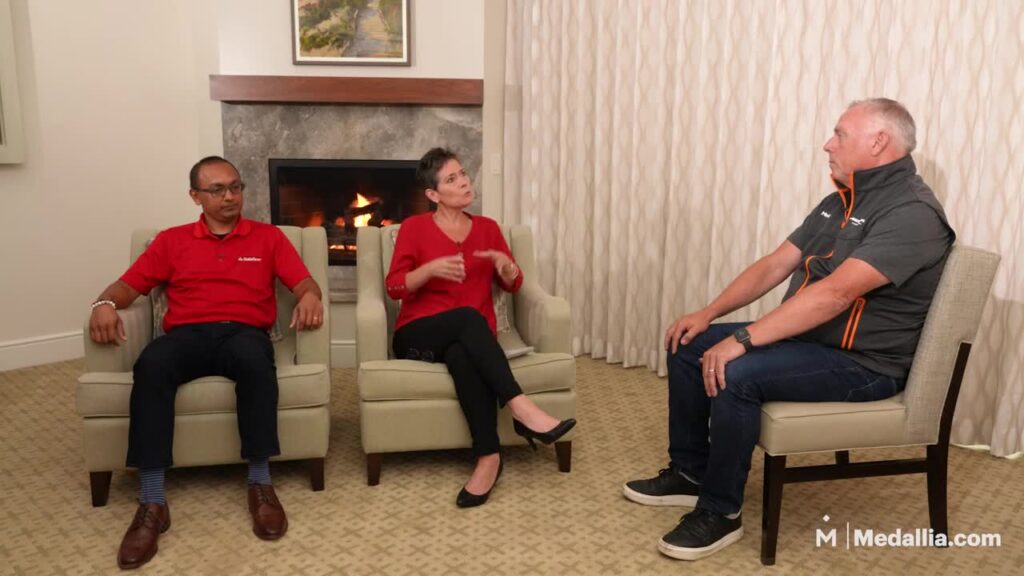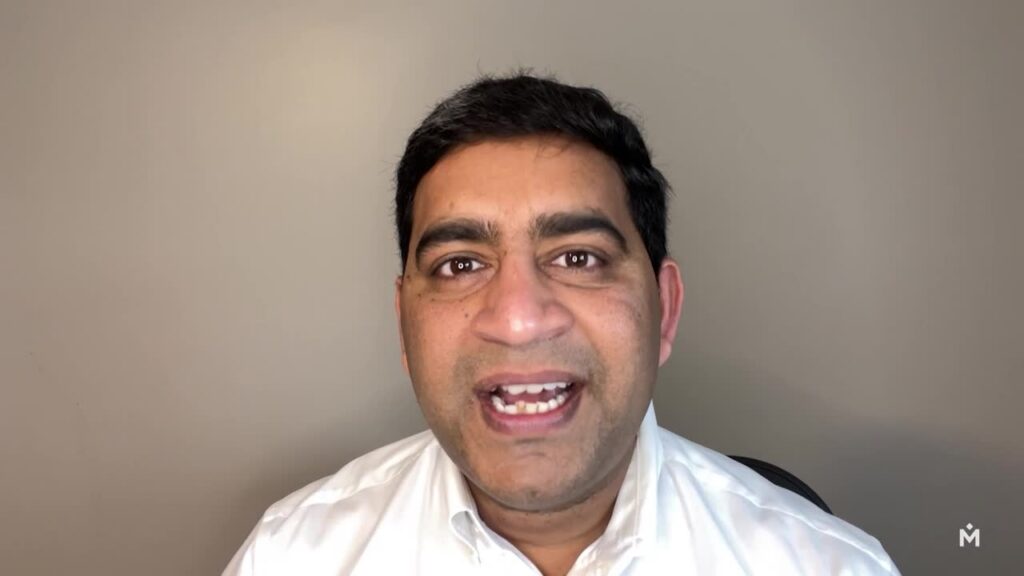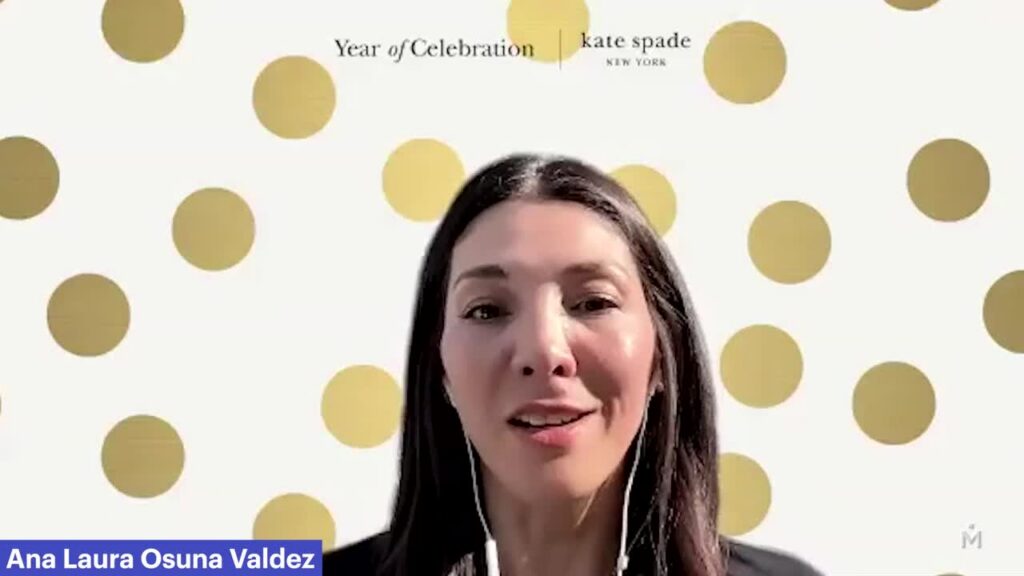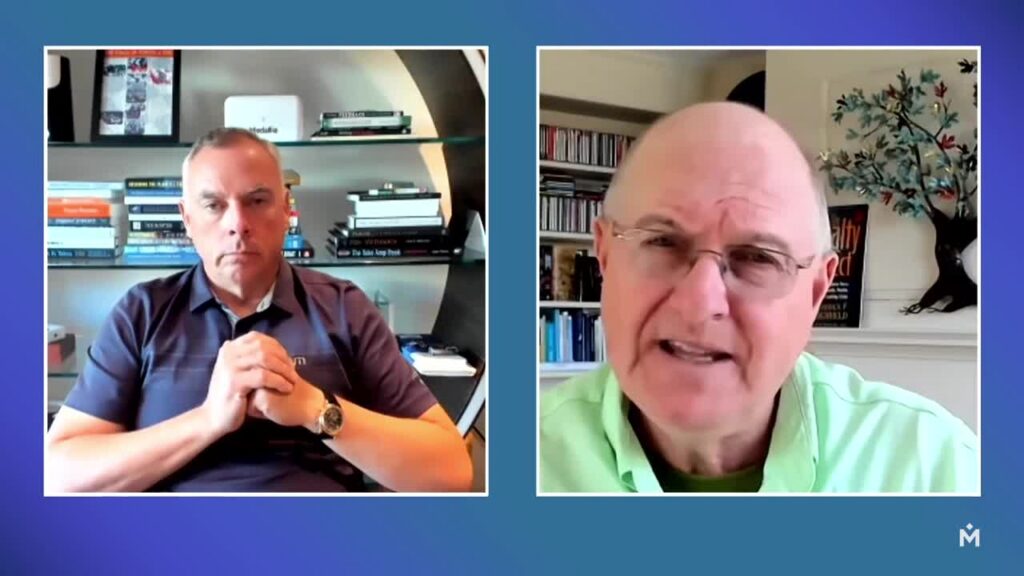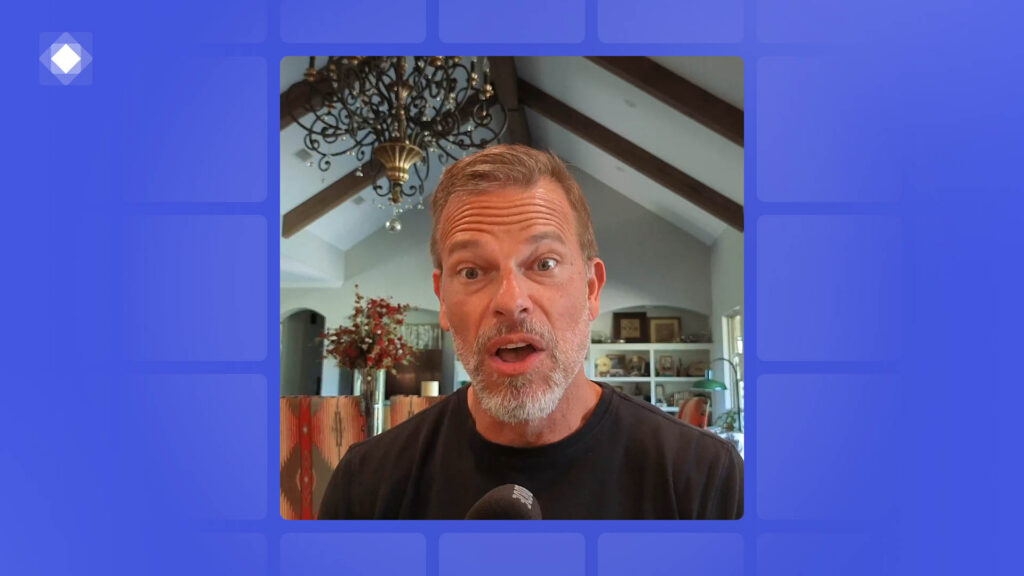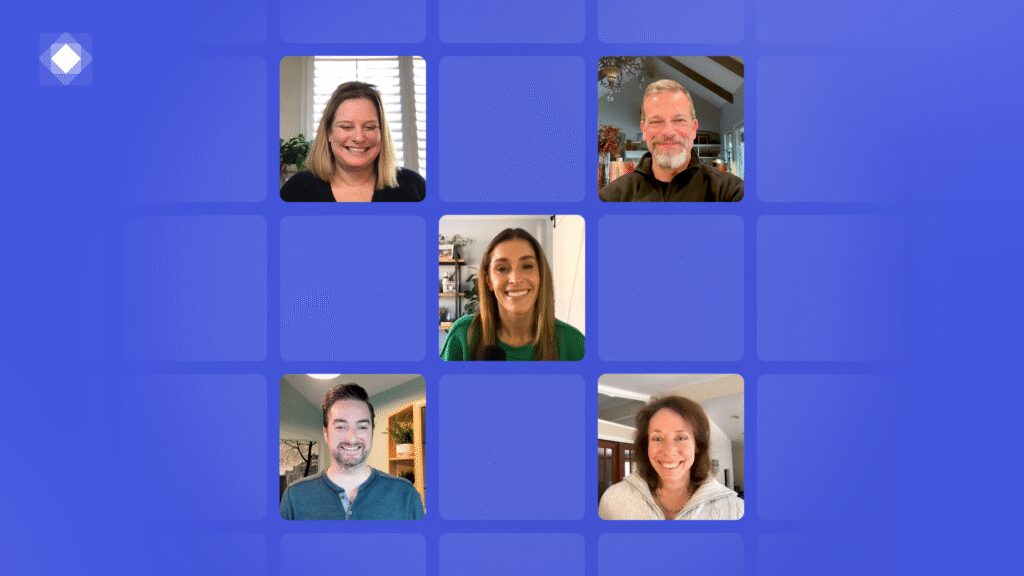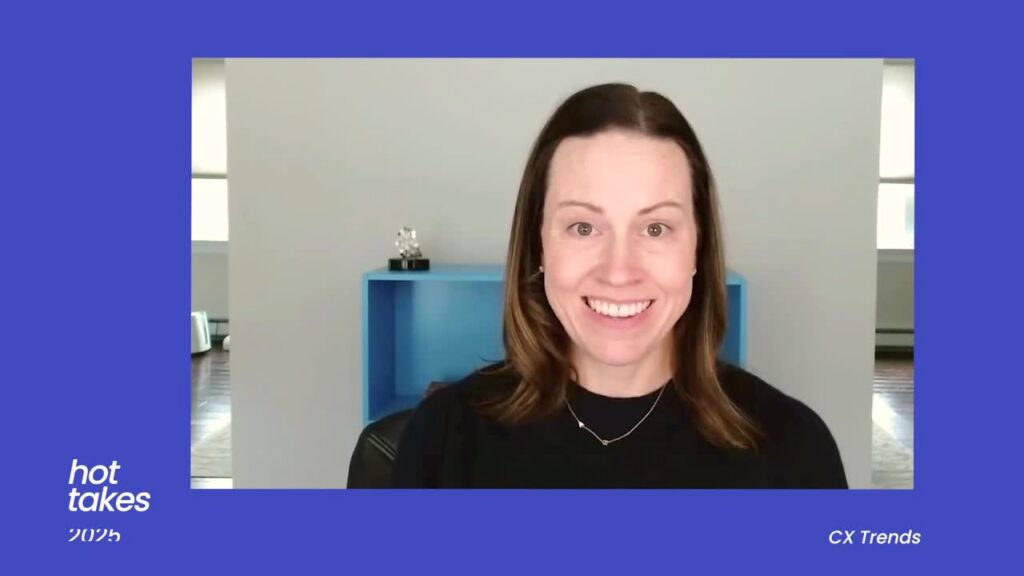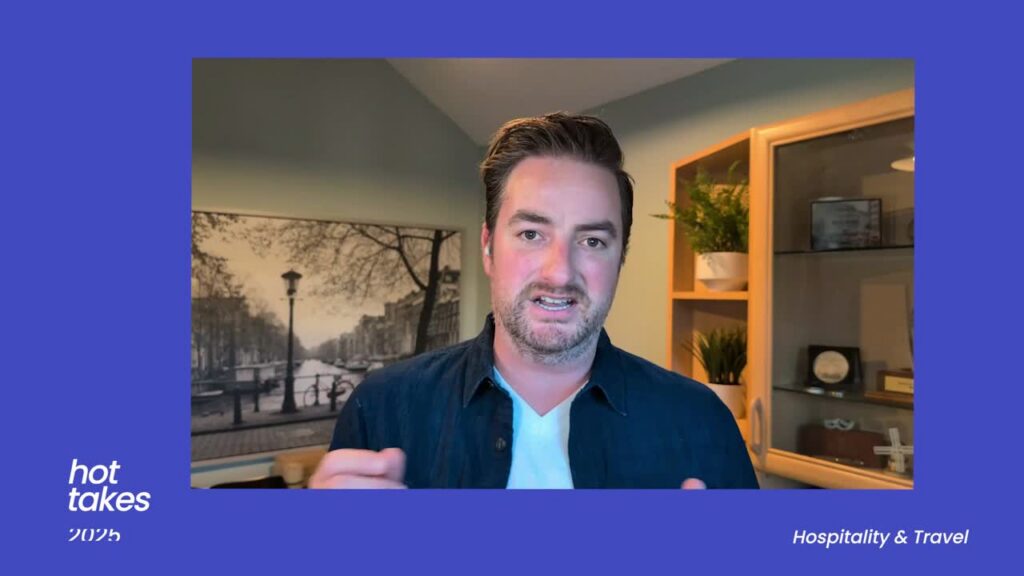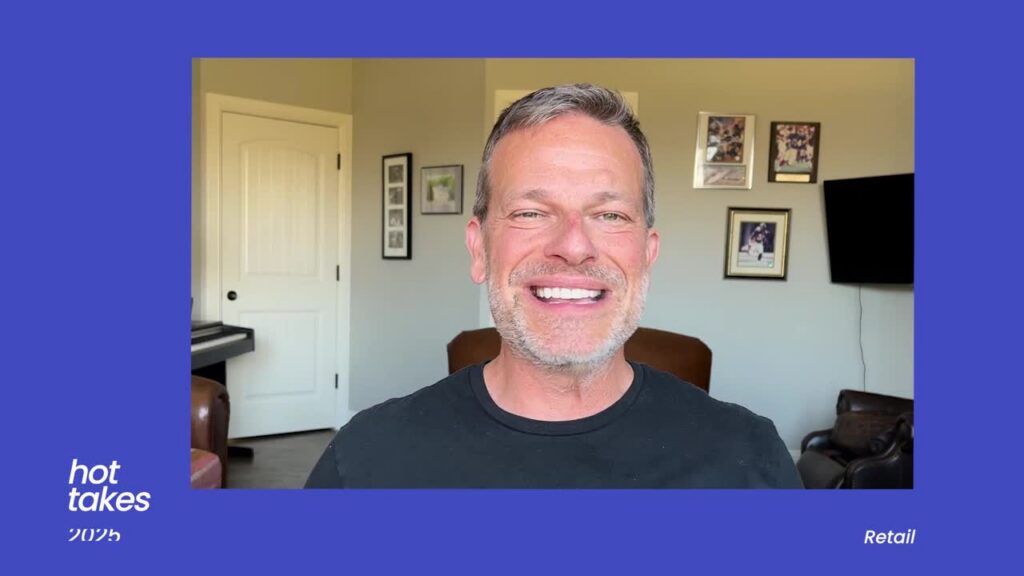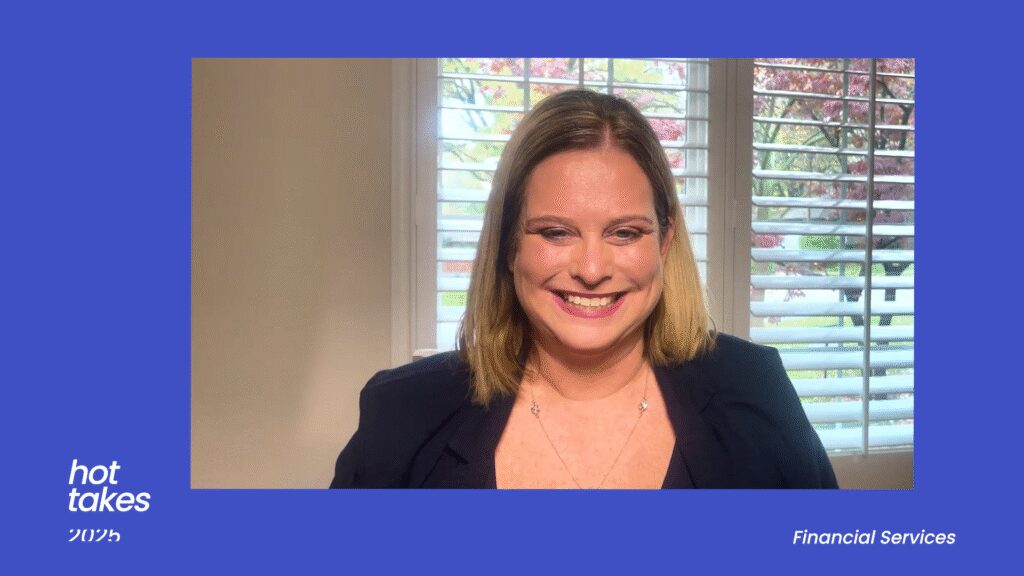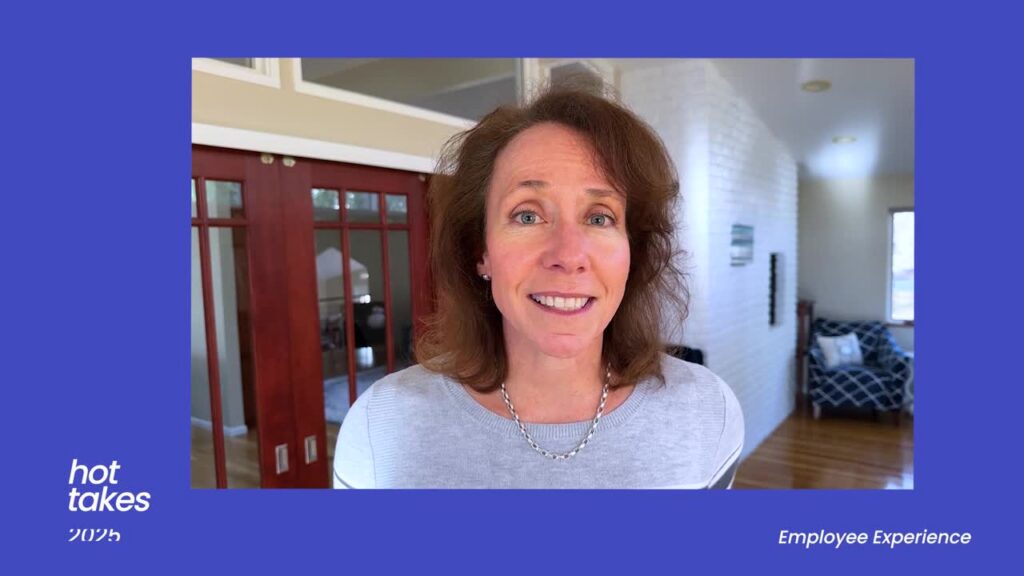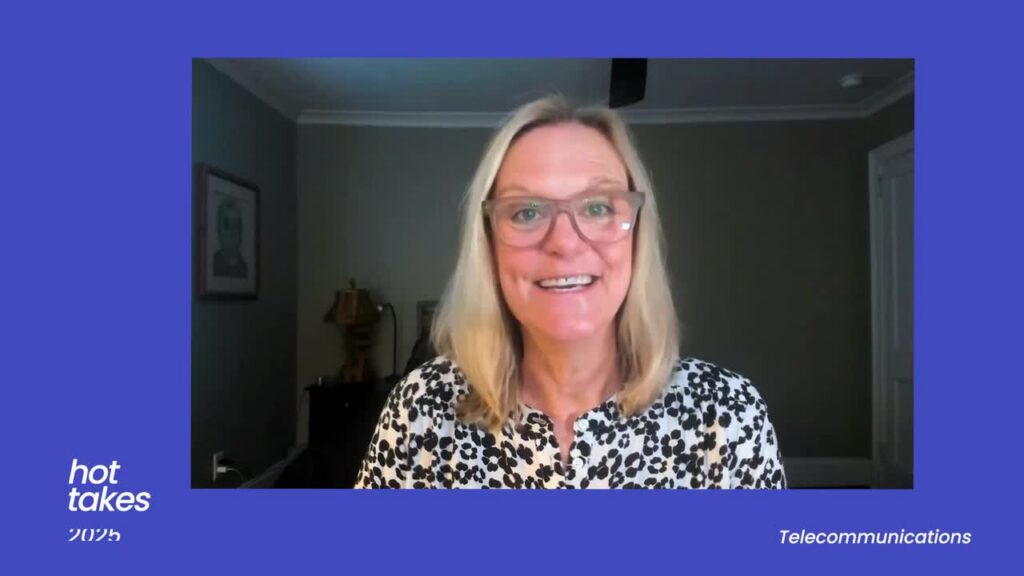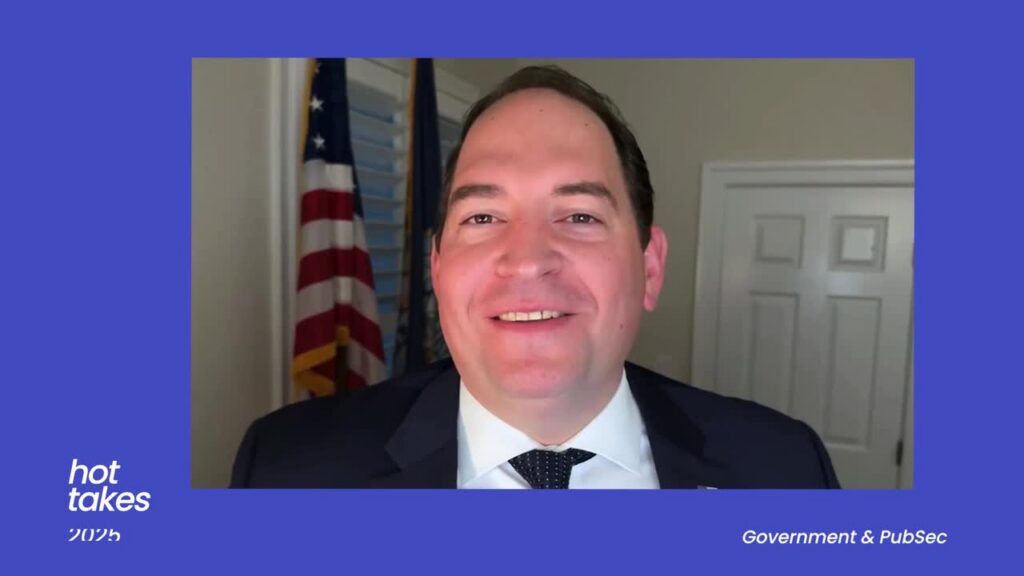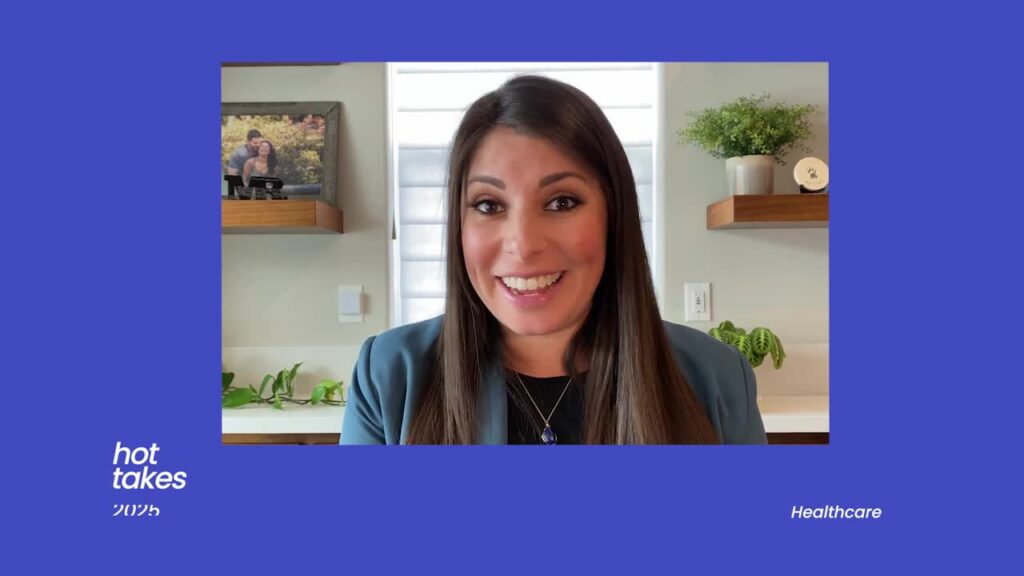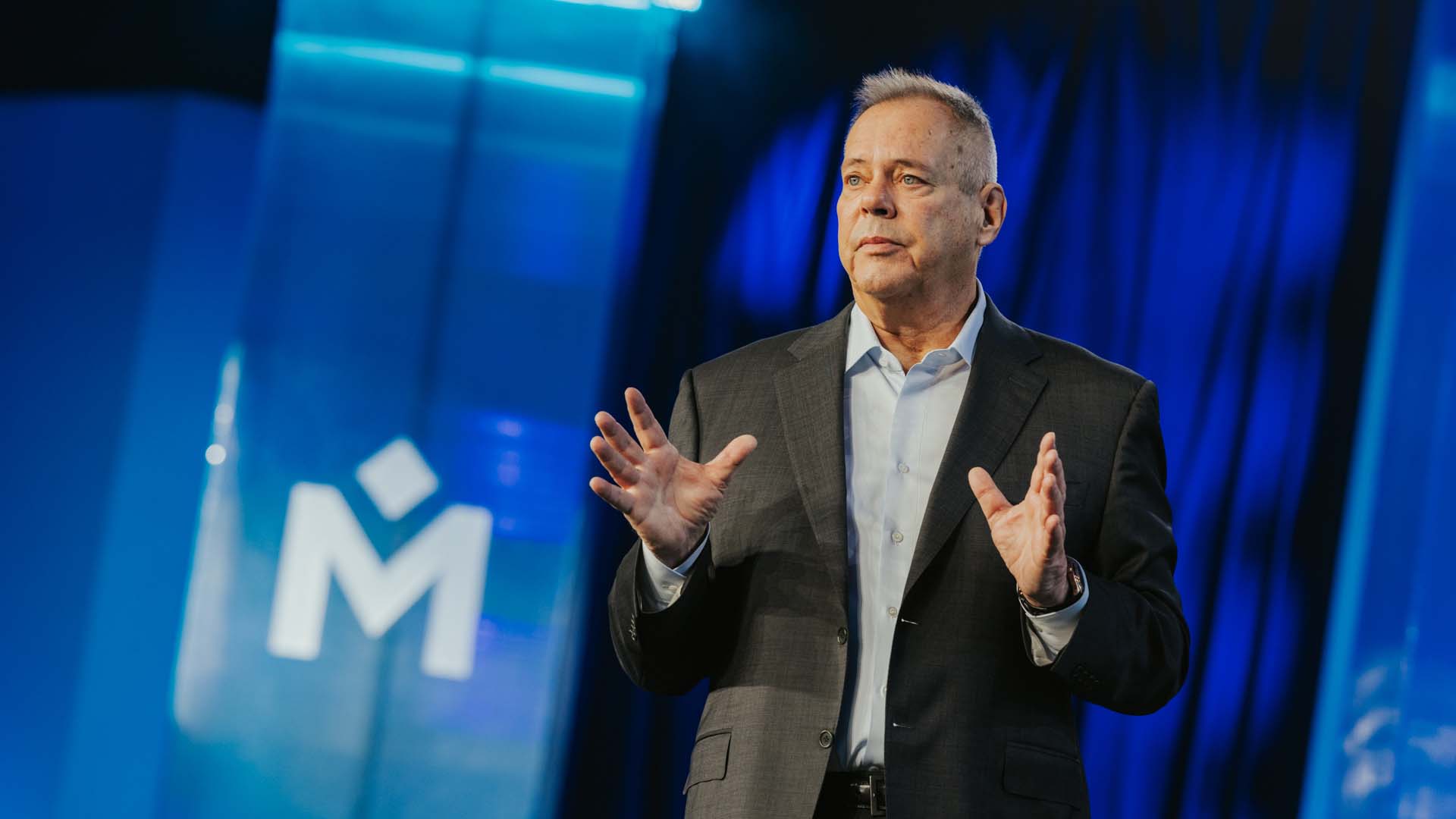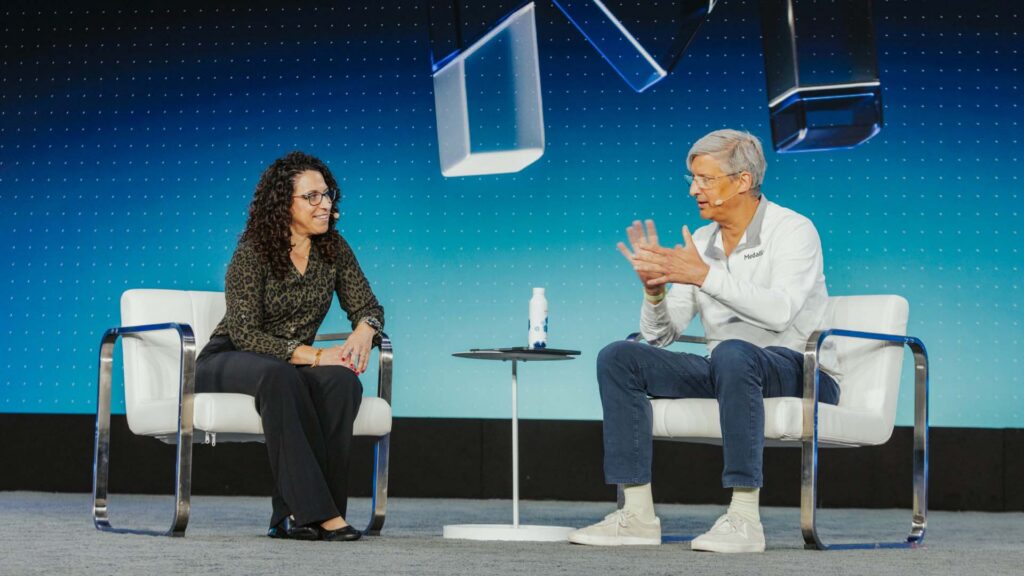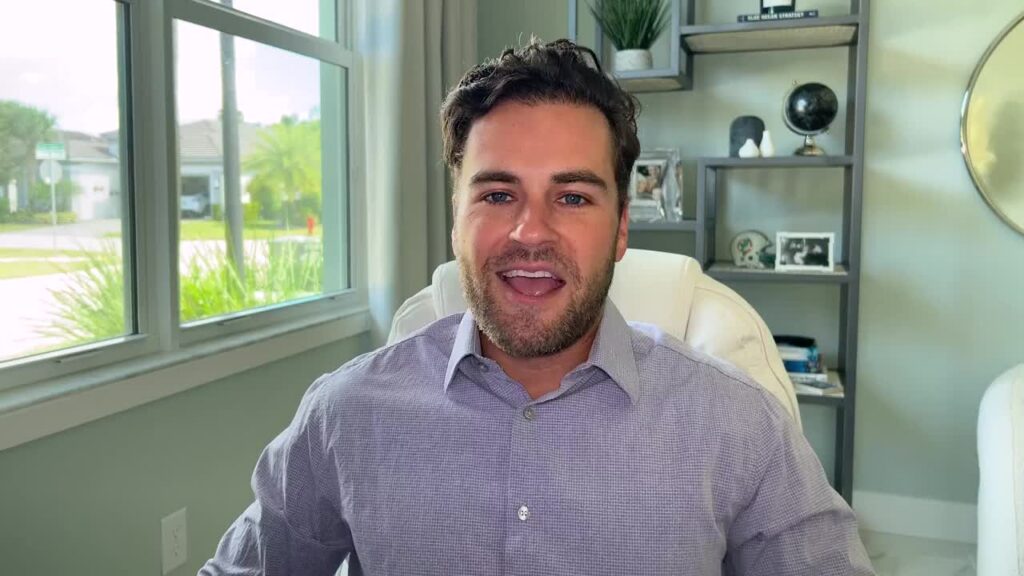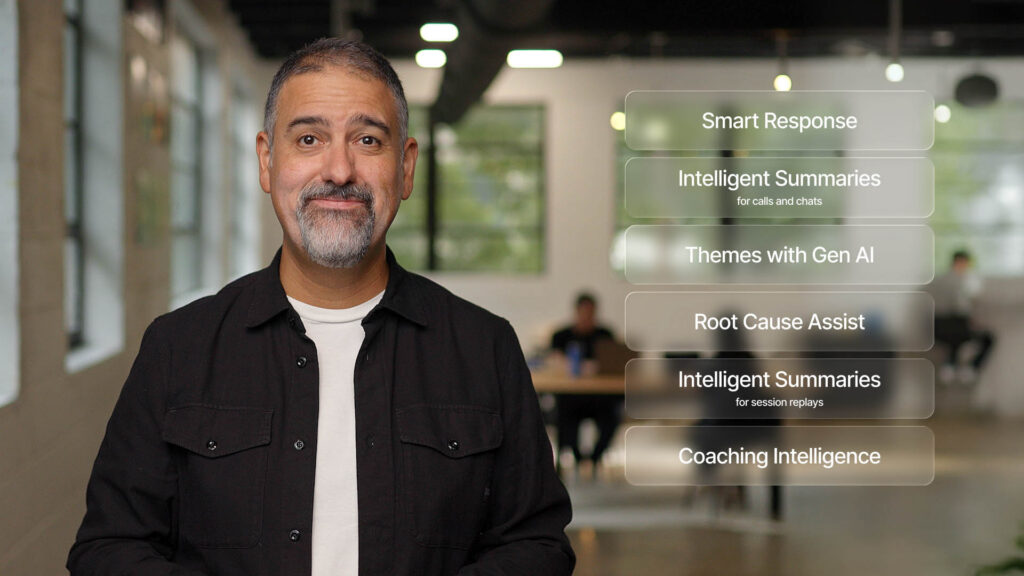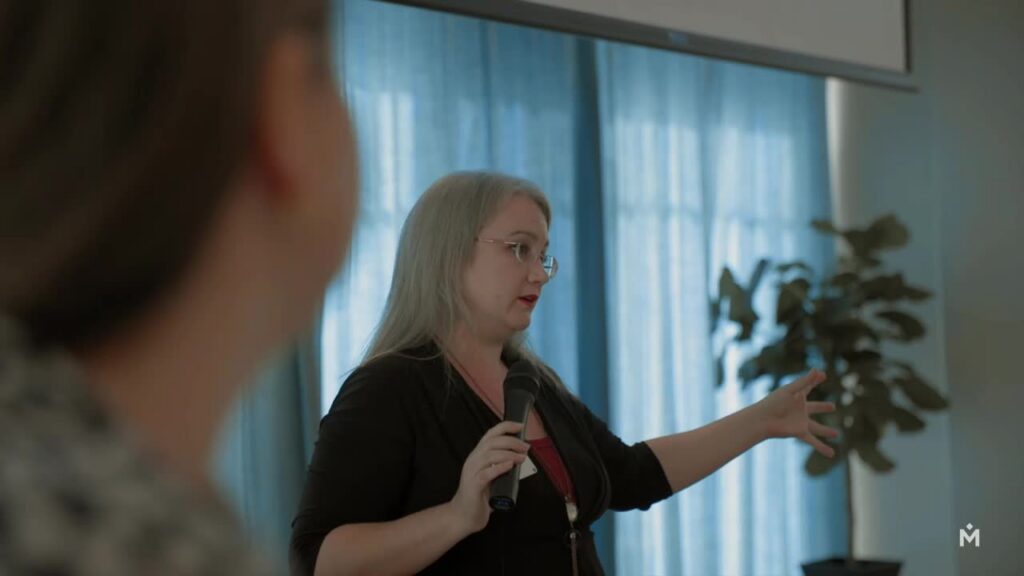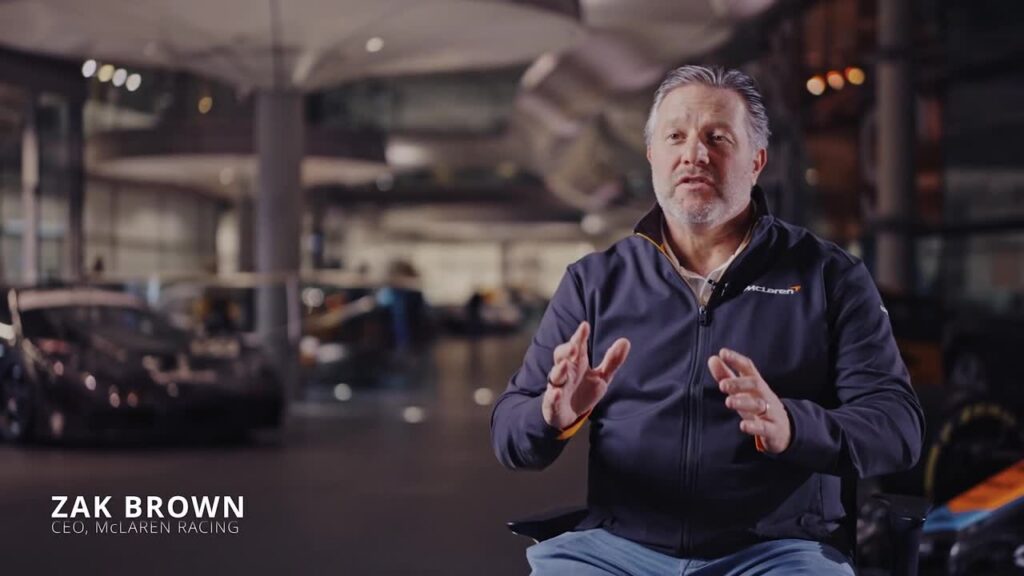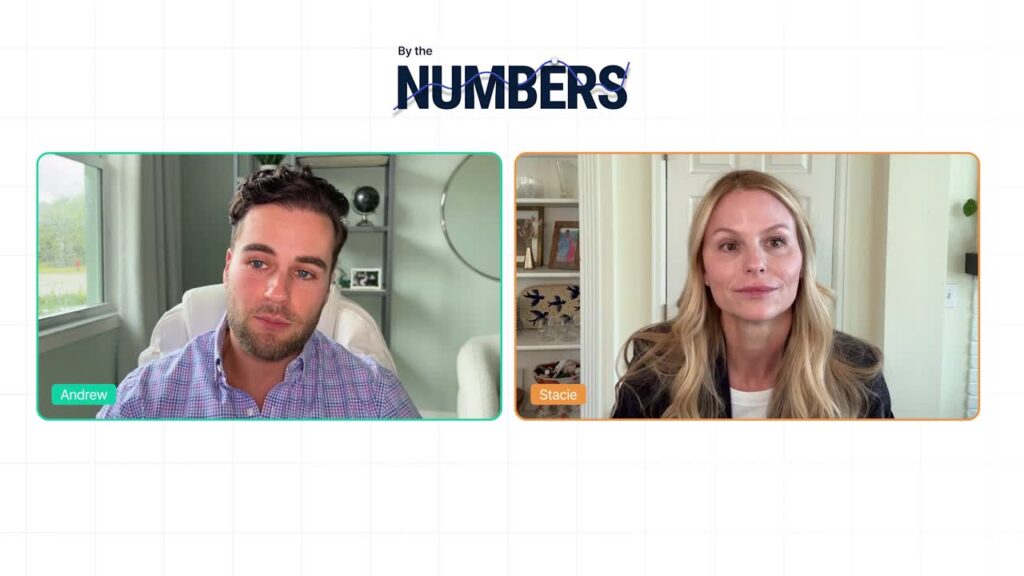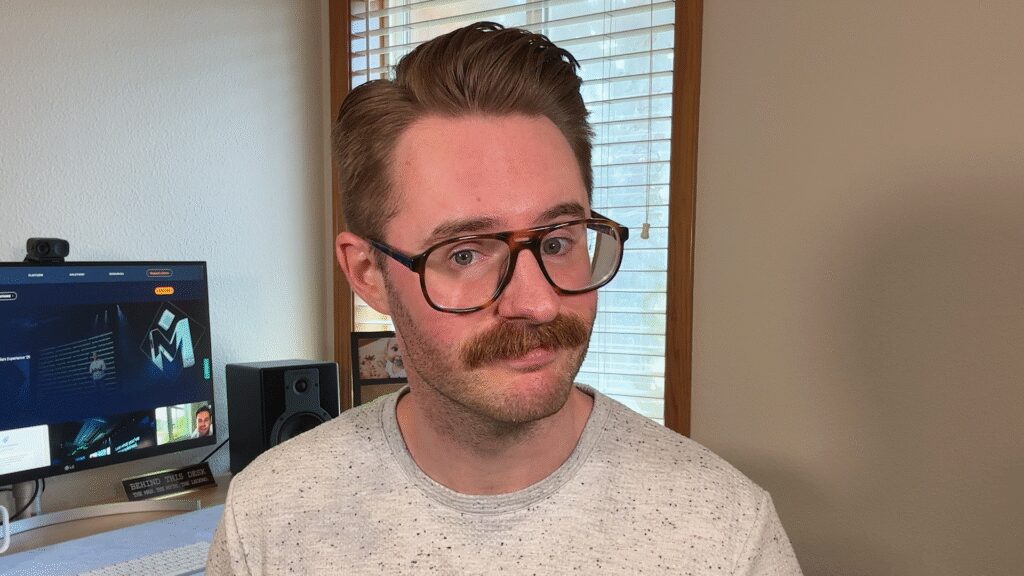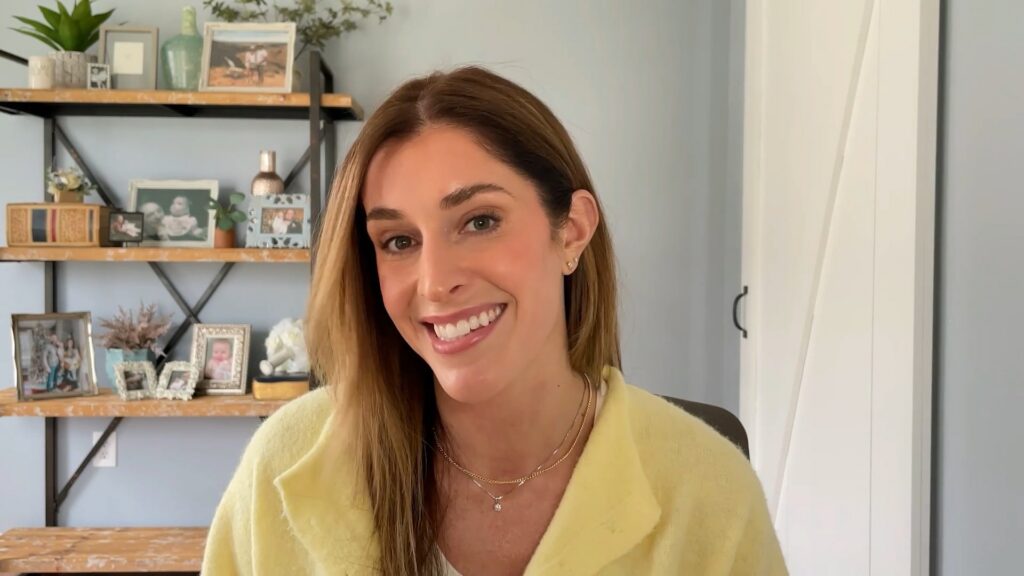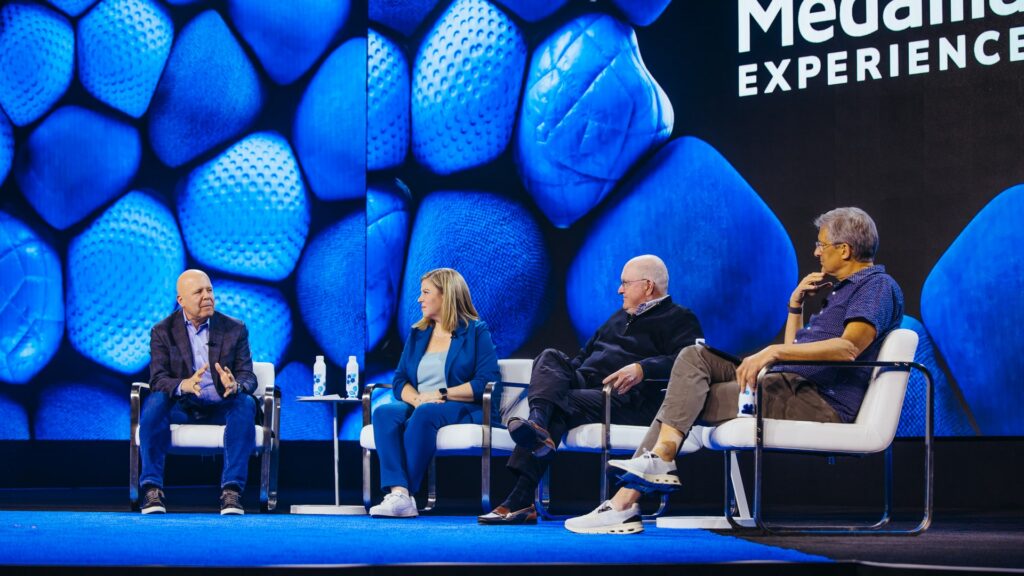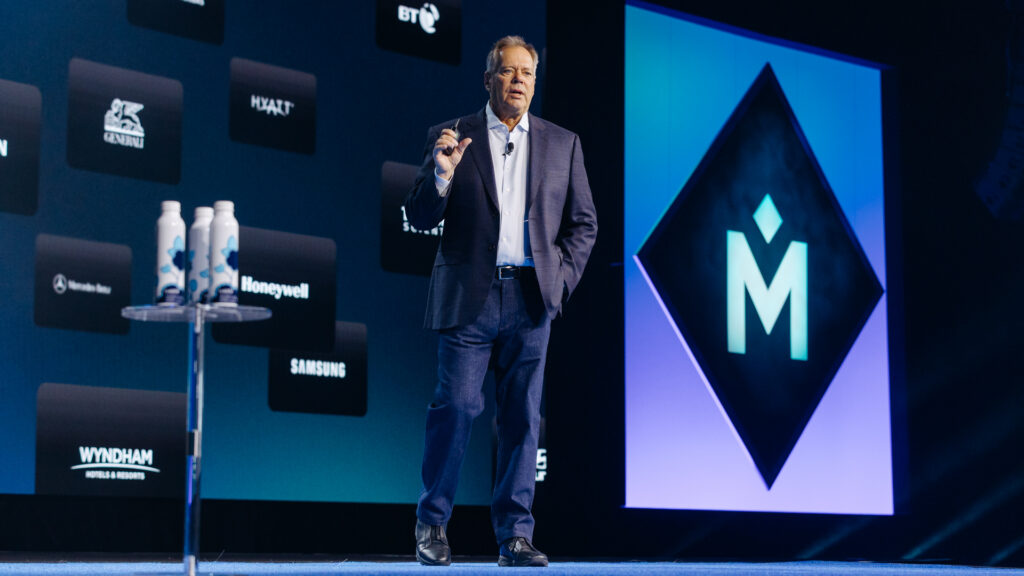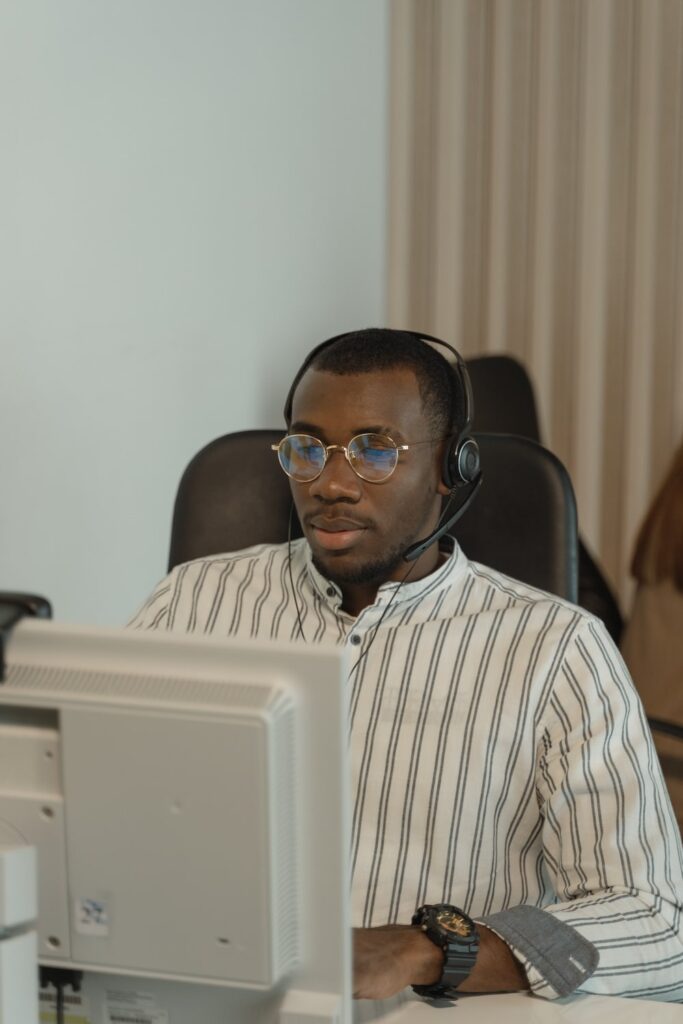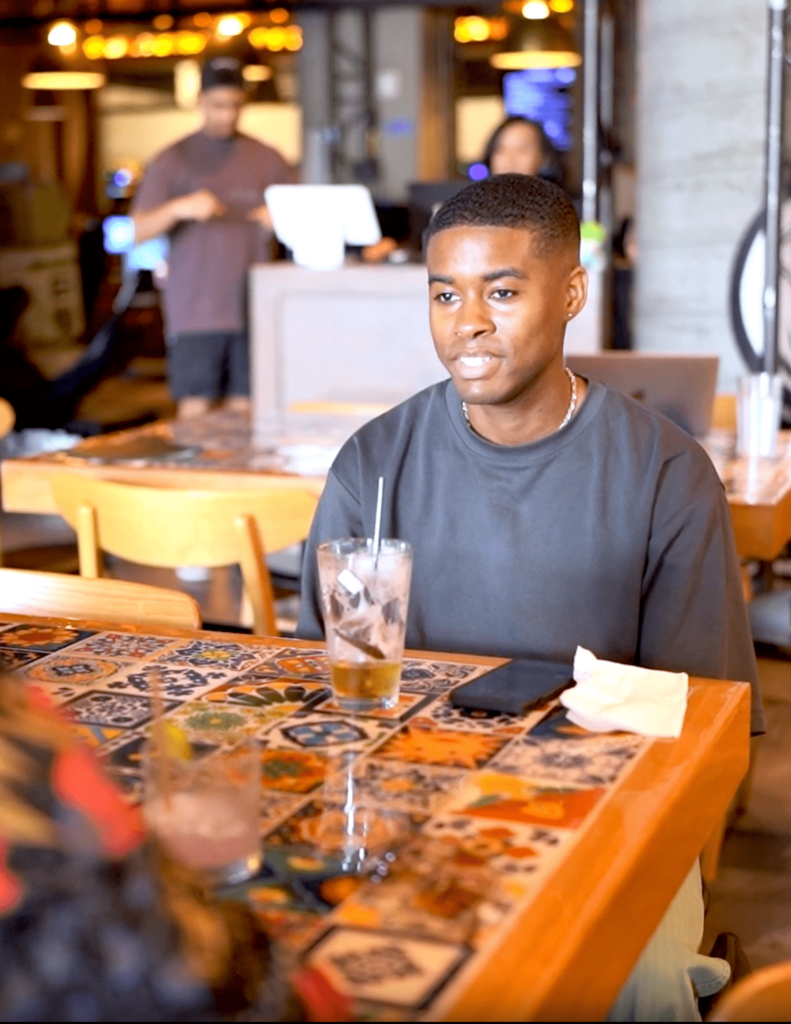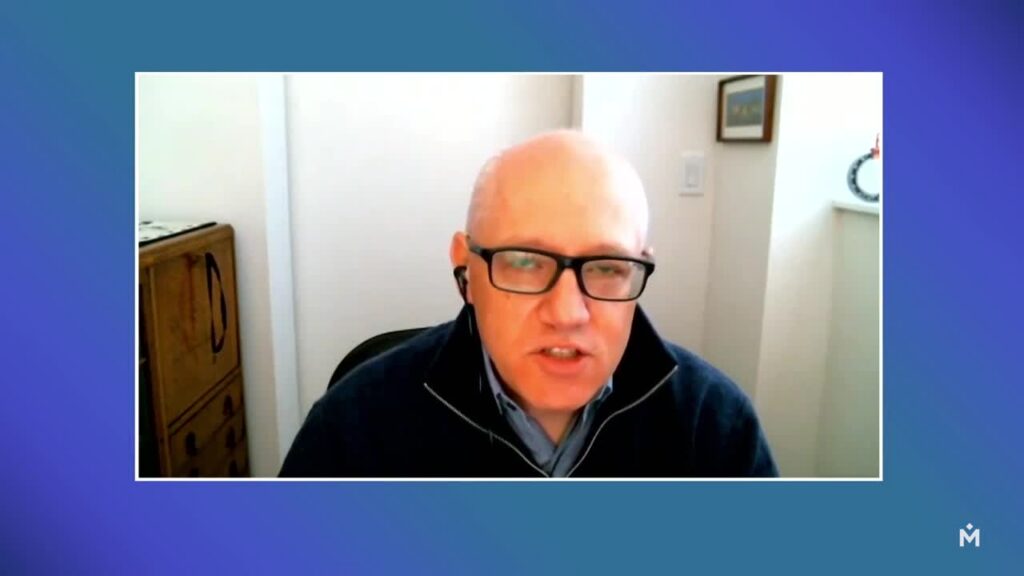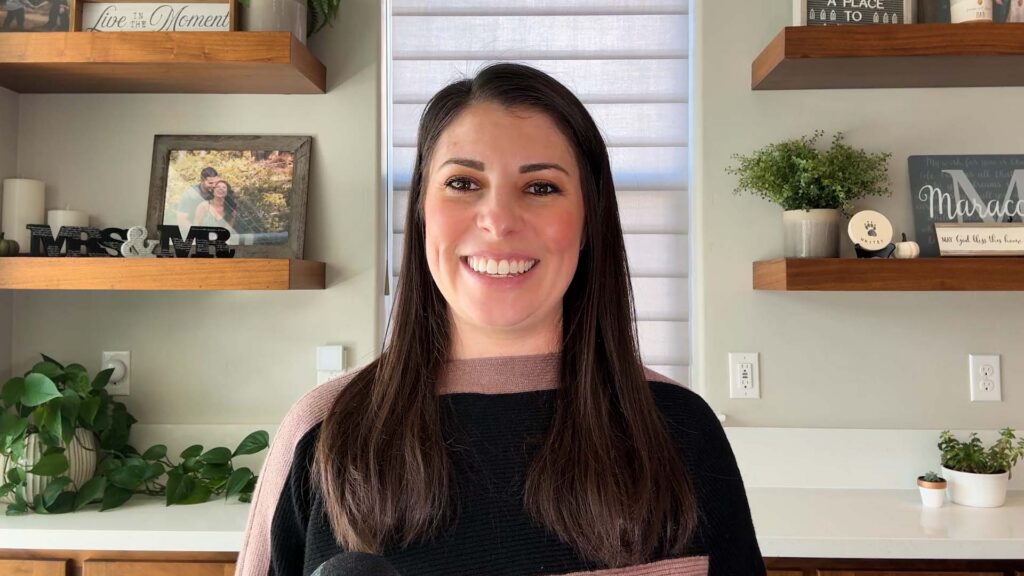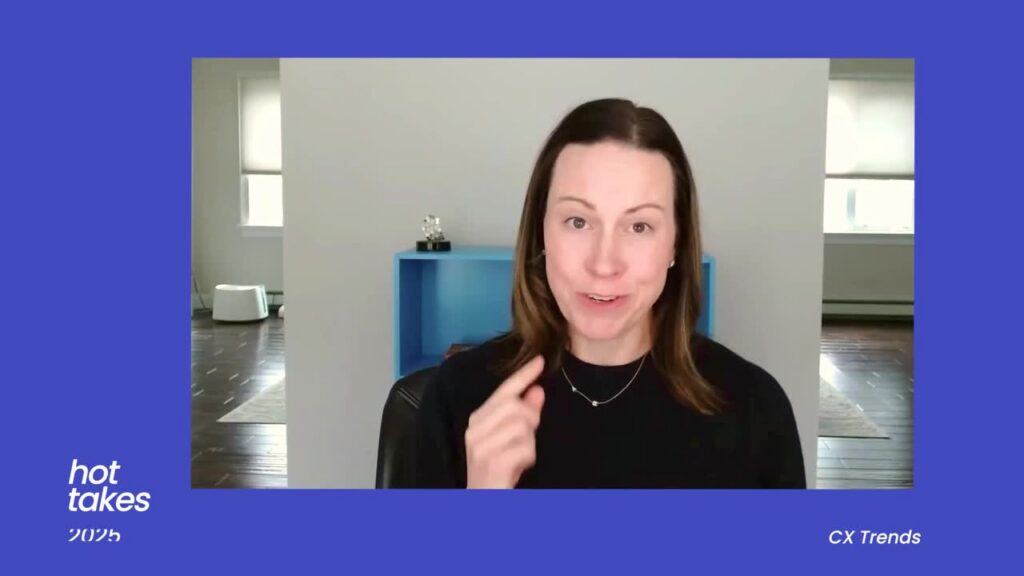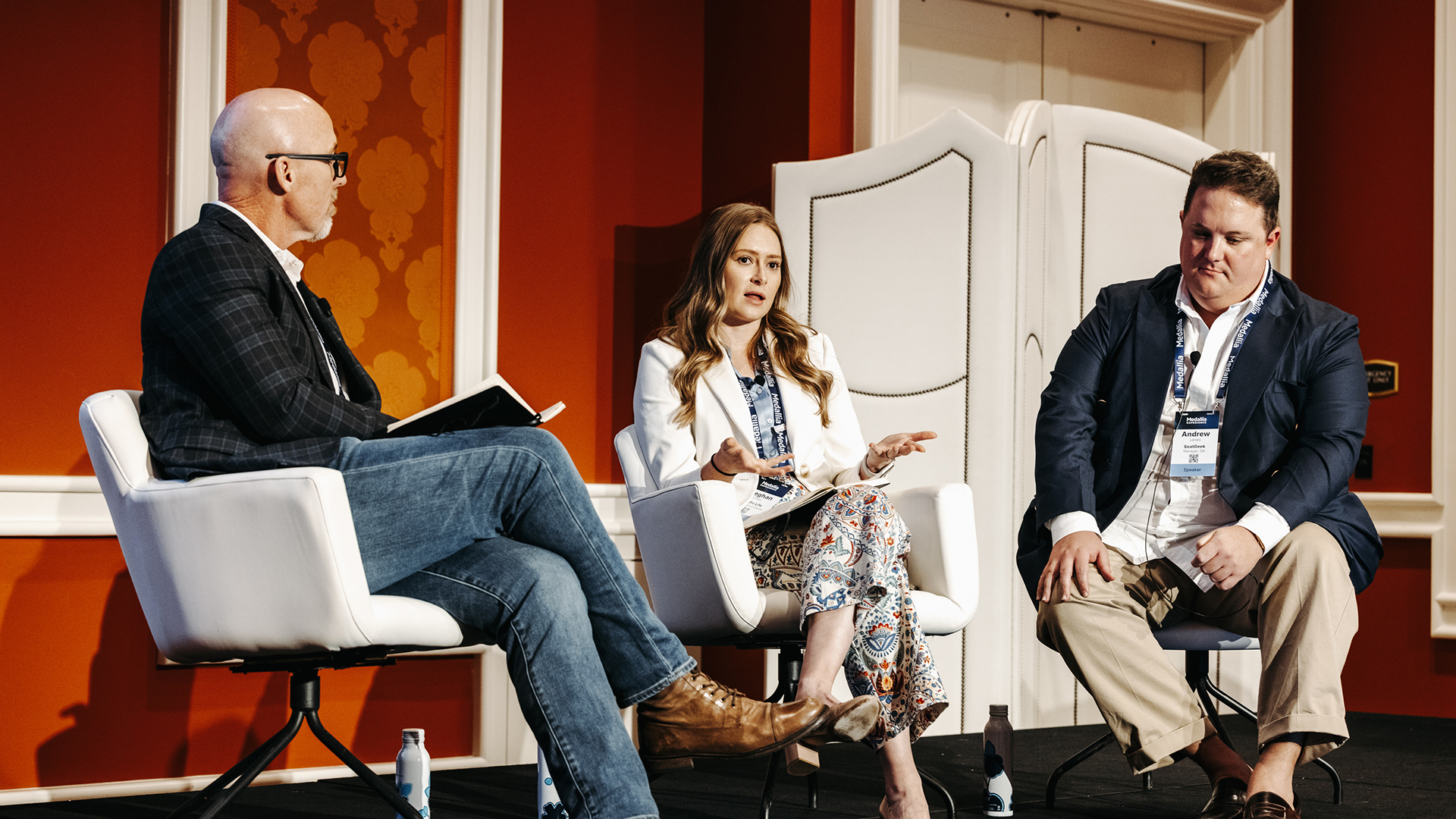Jay Power: [00:00:00] Let’s jump right into it. Guys. Thanks for joining us. My pleasure. Absolutely.
Meghan Colton: Thanks for having us.
Jay Power: Yeah, we’re excited. Now talk to us about what you do, your role, your company. We’re gonna go into that just so you guys have an idea about. What frontline means to these companies and these brands, and I think it’s gonna be interesting how they’re gonna hear differently from each of your perspective.
So Meghan, we’ll start with you. Tell us about your role. Tell us about yourself. Let’s go.
Meghan Colton: Yeah, absolutely. Thanks everyone for joining us. I hope that we can rise to the occasion in this session. So my name’s Meghan Colton, and I’m our voice of Customer program owner at Pacific Life. A little bit about Pacific Life.
We’ve been around for nearly 160 years, and really everything that we do today, including our voice of customer program is to. Ensure that we’re around for another 160 years. We are a Fortune 300 company and our business model is B2B two C, which essentially means that we work through our third party financial professionals who sell our life insurance and annuity products to end consumers.
Both those financial [00:01:00] professionals and those end consumers are really critical to us when it comes to our contact center. They both can call into us and service their policies or their contracts. So we can get into that a little bit when we talk about that and when it comes to our voice of customer program.
A little bit about that. We started our journey with Medallia roughly two and a half years ago, officially. So 2023 was our year of implementation. So while we’re still newer, we’ve accomplished a lot in that amount of time. We’ve set up several survey programs from a relational and transactional and digital perspective, and then we also set up our speech program with Medallia. So we have an integration with Amazon Connect, which has allowed us to get all of our calls into the platform near real time. That includes sales calls and service calls. They’re in Medallia for speech and text analytics, and then they also go to Agent Connect for the call coaching piece.
So yeah, excited to talk through all of that today.
Jay Power: Yeah. And I’m, you said it and you went past, I hope you all got the 160 years, right?
Meghan Colton: Yeah.
Jay Power: Top 50 oldest [00:02:00] companies in the Fortune 500. The think about when we’re talking about things you’ve experienced, things you’ve done, your company has seen a lot of transition, a lot of different things.
We’re talking about a blip right now on the radar and we’re talking about AI and all these things, but you guys have seen a lot. I think you handled 217 billion and assets over a million customers and plug for you, you do have a use case, white paper. If you want to, ask her on LinkedIn, join her.
She it’s on there. So get it. It’s some great information that you worked on, so thanks for doing that.
Andrew Landis: We’re more of a new kid on the block. 2009 is when we came along, so a little bit younger. Not as much history, but we bring a lot of fun, I think, into our customers’ lives. I’m the, as you see on the screen manager, quality Assurance Marketplace Services is the official job title that I have.
And I manage our quality assurance team for our customer support. All of our agents all over the world. We have BPO teams. We have agents all across the country that support our fans on SeatGeek, and we provide feedback through [00:03:00] scorecards. We collect survey feedback and just coach ’em up to give the best experience that we can too.
To all the people that come and use SeatGeek. Been around a little while at SeatGeek going on 10 years this summer. So it’s been a really fun ride and, hoping for many more years ahead. But yeah we’re your ticketing platform. Anytime you wanna find a ticket to a live event, SeatGeek is the place.
So yeah, you can expect the expected as the ad says.
Jay Power: I think it’s interesting the stuff that you guys have done so fast. 49 peop 49 million people have downloaded your app. And when I was looking at, we were talking about these stats on things that you guys have done and the things that you offer to your customers when you think about how many tickets you offer.
I actually asked you if this was real. 60 million tickets at any day are offered on the platform.
Andrew Landis: I think it’s safe to say if it’s a ticketed live event, you can probably find it on SeatGeek so
Jay Power: well, and it’s crazy when you think about how you serve customers and what you offer. I. 60 million tickets [00:04:00] and so many different options.
That’s a lot for Frontline to manage when you’re thinking about the diverse events that somebody could go to.
Andrew Landis: That’s the challenge of it, is our support agents have to be ready to talk about football, baseball, theater, you name it, any type of live event. So it can be complicated and challenging, but I think we do a decent job of prepping ’em For the gig.
Jay Power: Yeah. Yeah. Now we’re talking about high stakes. So let’s talk about that. Let’s define it a little bit what high stakes mean for each of you and your brand. So Meghan. What does high stakes mean for you?
Meghan Colton: Yeah, I I would say that all of the interactions that we have going through Medallia are considered high stakes for us.
That means, all of our calls and our surveys because a customer has taken time out of their day to complete that survey or give us a call. And when I mentioned customers, there’s those two customer groups that I talked about. So financial professionals and consumers, and they have different needs.
Our financial professionals, when they call us. They’re looking for timely, accurate information on [00:05:00] the phone to service whatever customer could potentially even be in their office with them at that given time. And then the end consumers are maybe looking for something that might seem quite opposite to that.
They’re looking for us to take time with them and educate them on what the options are available to them, and also have empathy to them. There’s. There’s certain situations that we deal with being life insurance and annuities that can be sensitive in nature and we wanna provide that empathy to those folks in that high stakes moment.
Jay Power: Yeah. Do you have any stories for us? Anything that you guys consider when you’re thinking about high stakes and thinking about a little bit differently? Obviously, I. Every customer interaction matters. It’s important, but there are certain moments that you have to think about a little bit differently in your situation.
Meghan Colton: Specifically when it comes to death claims. If we have somebody who’s called in to file a death claim, that means that they’re typically the beneficiary of that policy and their loved one who has been our primary customer through that entire journey has. Sadly passed. And this beneficiary who’s called into us may not have a relationship with a [00:06:00] financial professional who has helped their loved one through that process.
And the beneficiary may be just learning about this policy. They might not know really much about it to begin with. We actually have a dedicated rep that works with that beneficiary throughout their overall process with us. So it can be a multiple phone call journey. It can take a little bit of time and.
There are several options available to these people in this moment, and we wanna make sure that they make the right decision at the right time. Many of the decisions are non reversible. You wanna make sure that you catch them and you give them the education at the onset. And that’s.
Something that we’ve done in terms of process to really invest and have a dedicated resource for somebody in their time of need. Yeah. That’s tough. ’cause a lot of times when we’re thinking about process and working with customers, it’s unfortunate we try to fit, a square peg in round hole because we understand the process, but then you have to identify these different types of high stakes scenarios Yeah.
Jay Power: That you’re trying to challenge the business with. Both how you handle internally and then also setting it up for a different [00:07:00] path. That’s gonna ultimately speak volumes about your brand. So That’s great. Andrew, what about you?
Andrew Landis: In the ticketing world, it’s all about fulfillment and getting in the door, right?
Yeah. So we’re facilitating an experience for people to go to a concert, to a sporting event. And the biggest thing is us getting you in that door. Yeah. And so for us, there’s. Several different situations, things like on time delivery and, being able to scan that ticket without any hiccups whatsoever when they go in the door.
Different things like that where if something goes wrong, it’s certainly a high stakes situation for our support team where they’re having to, pivot and work through and provide different options Yeah. For customers. And we certainly have our war stories, that’s for sure. But I like to think that we are able to have enough planned out options to give our support agents.
To work through those things where if somebody’s at the gate trying to figure out what to do, we can walk ’em through the process.
Jay Power: Yeah. Now you even, we were talking about earlier on with the [00:08:00] keynote when they were talking about, going to grab that piece of pizza when they had an experience. I think we’ve seen that episode and it’s really interesting when you think about it being tailored, personalized for the experience and really listening to the customer.
And you’ve had some of those happen to you as well. I
Andrew Landis: have. We run these fulfillment centers when we have these large. Events, maybe like the Super Bowl or a music festival. And I’ve gotten to work at some of these in person over the years. And one instance that we had where I was down in Miami, I. At a music festival it was a Taylor Swift No, it wasn’t.
It was rolling loud for any hip hop fans out there. Okay. But we had a pickup center where folks would come get their wristband and we were having the wristbands shipped via FedEx. Yeah. And so we had someone who had purchased through us, and the FedEx shipment wasn’t there in time. And so what I ended up doing is driving across town and we purchased a set of replacement tickets for them through one of our competitors.
And I showed up with a smile with my big blue SeatGeek [00:09:00] shirt on and said, I’m here for these tickets, and drove ’em back and met the customer and got ’em in. So sometimes you have to work on the fly like that to make the event happen, because at the end of the day. In the ticketing world that’s all we got is to make sure they get in the door.
Sometimes it requires hopping
Jay Power: in a car,
Andrew Landis: driving my rental Toyota Camry served me well that day. I’ll tell you that.
Jay Power: You don’t think about systems and tools for a Toyota Camry. That’s not necessarily what comes to mind, or you think about it.
Andrew Landis: Yeah.
Jay Power: That’s great. So when we’re talking about high stakes, a lot of preparation and things that you might have learned or experienced.
So Meghan, talk to us about the things that you have learned over your time. Things that might not necessarily have worked, things that did work, things that you prepare your teams with. So go from there.
Meghan Colton: I would say that at Pacific Life we really prioritize educating and coaching our agents and our customer service reps.
Historically when we’ve learned something, it can be more of a reactive, situation, right? [00:10:00] So you’ve found something something has gone awry and you’re trying to correct in the future. And coaching has been one of those critical moments for us. We use Medallia today to help highlight when there’s key behaviors that high performers are doing, maybe key language that high performers use that we can coach the low performers to hopefully.
Adopt as well. Yeah. And I think that’s really critical for us. Then when it comes to external factors, things like a spike in call volumes for a day that is outside of our control, we can look back at that too to understand why did that spike occur? Was there something topically. That perhaps occurred or is it something internal to us?
Maybe our website was down and so servicing online wasn’t available to people in that day. Taking that reaction and trying to make it proactive in the future so that we can resolve those issues for the next time around and hopefully not have it occur again.
Jay Power: And is, does the reactive, like when you have those situations.[00:11:00]
Does that feed into how you develop what coaching and education you do, or what are the other avenues of ways in which you learn about what are the topics?
Meghan Colton: One thing I will say is that we have a great relationship with our operations area. So our voice of customer team has, we work in an agile methodology.
We work in a. Sprint fashion. So every two weeks we are doing things to iterate and improve our models. In Medallia, we do a lot with tuning the rules on the be behind the scenes for all of those meetings and for all of those conversations we have subject matter expertise from ops in, in that room.
So that’s been really impactful for us because those. Individuals are the ones who will tell us what the topics are, yeah. That are top of mind, what the correct naming convention is that we should be following, and ultimately help us to make sure that we’re building the right vehicle for them. And while we might be the hands-on keyboard, still experts in how to correctly tune they’re the ones guiding what that could look like for us.
And,
Jay Power: talk about those experts a little bit. Did it take time to develop [00:12:00] those experts or, how did that come about in the program?
Meghan Colton: Like I said, we’re still early days 2023 was our year of turning everything on in Medallia and it was. Largely implementation 2024 was our year of moving from just understanding all this data to really trying to listen to it and fine tune those models.
And we as a team, were all new to Medallia as well. We didn’t necessarily have anybody at Pacific Life who had familiarity with the Medallia system, and so we spent 2024 as a company. And as a, as our VOC team saying, let’s become experts in this system. We have members who are admin certified now.
We are in the backend daily doing things and taking training and navigator going to Medallia conferences and such going to mugs
Jay Power: in force.
Meghan Colton: So we really took that ownership of wanting to be as self-service as we can and wanting to drive that expertise for the business.
So yeah, I can happily say that [00:13:00] by doing that in 2024, I do really feel like we have that expertise in house today, in, in 2025.
Jay Power: And I think it’s important to point, you guys, you have voices for the business that are experts, that are that own and are accountable and learning, and that gains traction for the business to really understand, what are we doing next?
So you have those great voices in your organization to do that.
Andrew Landis: I think I would draw on a recent experience within the last year or two. Where we identified about how long it takes us to serve. Yeah. Our customers in situations and especially in these high stake stakes ones where we can learn about what tools, and we have a project called accommodations where we can make accommodations for people maybe slightly different than the norm.
Yeah. In a high stakes situation. And that I think is all about what threshold can we set to buy a set of replacement tickets? For a customer who might be in a situation, what I shared earlier, like that sort of thing. Oh, so
Jay Power: accommodations is actually a program or kind of a understood system.
Andrew Landis: [00:14:00] That’s right.
That’s right. And things like promo codes and different things. We can offer a customer a situation to help them through it, whether it’s, ’cause a lot of times this open up the app, find the tickets, it doesn’t always cut the mustard. Yeah. So I think in terms of giving them those. Specific things they’re, they know they’re allowed to do in these circumstances has helped us a lot in these more tense, stressful situations with customers.
Yeah. And I think, through looking at time spent on a case, there’s a direct correlation in our CSAT feedback where the longer that ticket exists. The worse the feedback is gonna be. Oh, really? Does that
Jay Power: resonate?
Andrew Landis: Yeah. See a lot of nodding
Jay Power: on that one.
Andrew Landis: Yeah. In those situations we’re able to look through the feedback and see what drove, negative sentiment in those scenarios.
Yeah. To help us pinpoint like what we could do to help, somebody through a situation to make it go much faster. What options could I give you? To keep you from having to ask somebody a question, escalate a scenario, pull a help center article, something like that. [00:15:00] Yeah. For us in those scenarios, I think it’s just.
Giving them options, telling ’em what they can do so they know they can jump right to it if somebody’s, it’s empowering.
Jay Power: Yeah. ’cause a lot of times when you’re serving a customer, you know the limits, but when you give them a little bit of predefined grace, let’s say Yeah. Accommodation, then that gives them, empowers them to know the flexibility of where to take the situation.
Andrew Landis: Yeah, exactly. And I think too, just to add in those situations, I have to mention this, is that letting people talk, I think is a huge part of it. We talked about this, we met earlier. Yeah. Is, in these situations I think folks just want to tell you why they’re upset and why they’re in the circumstance they are.
And maybe why they want us to react a certain way take ownership. And so with these types of situations, it’s nice to be able to. Train our folks up, get ’em ready so they can, hear from people what’s bothering them, what’s not going right.
Jay Power: Yeah.
Andrew Landis: And then they have this set list of things they know they can do to
Jay Power: [00:16:00] react.
Yeah. And when we were talking earlier, you had mentioned, a lot of times when it comes to tickets, the event is one thing, but there’s a lot around the event that people correlate with their experience with SeatGeek, where it’s, the hotel, the meals, the travel, everything that’s coming.
It might be a, an event they’re taking their grandfather, something like there’s all this emotion around that gets involved in the interaction.
Andrew Landis: Definitely. I take my grandpa to, opening day baseball game every year, and I need you to help me figure this out. It’s a family event.
It’s, something like a, a birthday party or, these are things that mean a lot to people. So the fact that we’re able to get them in the door is extremely important with those types of situations with families, like you said, there’s babysitters, there’s hotels, there’s travel, and that’s exactly what they’re gonna mention if we’re not able to deliver on our part.
Of it yeah. To get them in the door. So all the more reason for us to be prepared and have an option to help get ’em through.
Jay Power: It’s great that actually to me, it connects with your company’s vision about being fan first. [00:17:00] Yep. And also it, your live events unite humans, which I think is great when you think about it.
And so you’re thinking of a perspective of uniting humans at an event, thinking about the overall experience and defining how you’re gonna handle the process.
Andrew Landis: It’s all about that live experience. I think there are so many things that you can, experience in life, but a live memorable thing of something you love.
Yeah. That you have a history of loving, like maybe you did something with a family member as a kid and you wanna keep that going with a friend or a family member. The idea of having that experience with somebody is huge. And I think the reason why we all get in into the support business at SeatGeek is ’cause we were all fans of that and we all did it ourselves.
Jay Power: Yeah. Yeah. A lot of what we’ve been talking about here at experience we talked about on the main stage about data structured, unstructured, gathering more data to really understand the customer and all of those things. How does data play a role for you, both pre post. Expired, fast, [00:18:00] slow, all of that.
How does data play a role for you? Meghan
Meghan Colton: Medallia is a data analytics platform for us really in many ways because we have just this treasure trove of customer feedback and customer insights. Available to us. And it plays a absolutely critical role. I think that we want to be able to just like what was said in the keynote today and what has been, I think largely a theme from this conference is we wanna get all of the rich insights from the survey programs that we have in Medallia and treat that data with the respect that it.
Is warranted with closed loop feedback processes, enter an outer loop, and at the end of the day, those, those survey programs are going to give us the voice of the person who’s speaking up. And that is critical to pay attention to. And the call data though that’s gonna give us the voice of everyone.
Q+A: Yeah.
Meghan Colton: And that’s why I think what we have set up with Medallia is really impactful from a data perspective. And we want to. Take advantage of what’s there and separate [00:19:00] the signal from the noise and really find those insights.
Jay Power: Yeah. I think you said that you guys imported about three and a half years of calls.
Meghan Colton: Three and a half million calls. Yes. Yeah. Three and a half million calls. Okay. Yeah. Yeah. Yeah, so when we implemented in 2023. We actually went back historically and loaded data going back to April of 2021, so that we had just a large enough data set to really get the full value of text analytics themes and we definitely also recognized that there were moments within those years that we knew seasonally we had higher call hold times than we wanted or particular pain points. So let’s study the past to inform the future. And, absolutely that was really impactful in our. Early days,
Jay Power: so I know somebody’s probably thinking about it.
You loaded all that in. What did you learn from, like what, what matched up and what didn’t match up from your expectations?
Meghan Colton: Yeah so so much of it has to do with still continuing to tune a lot of our medallion models so that [00:20:00] those topics can be customized. Two pl.
Andrew Landis: Yeah.
Meghan Colton: So I would say right out of the gate.
Some of the high level learnings were, relatively expected. Yeah. In the sense that we were able to see certain call handle times tied to certain types of topics. Yeah. And then I think the richer insights though, that we’re getting to today are coming from that customization of medallia’s text analytics and being able to tune specifically to topics that matter to us.
Jay Power: Pull out some threads.
Meghan Colton: Yeah.
Jay Power: Interesting. Andrew, what about you talking about data?
Andrew Landis: The first thing I think of is something I heard in a session earlier with the folks from Dick’s Sporting Goods, where they talked about closed loop feedback, uhhuh, and thinking about how we take data every week, in terms of like knowledge gaps and things that people call out that drive negative sentiment with our agents and bringing that to our content and training team so that we can, again, just find out where people aren’t as knowledgeable in certain things.
Train ’em up better, give them, accessible [00:21:00] content that they can pull up in the, the heat of the call of the chat. Yeah. And bring that together. There’s a lot of different ways that we use data from agent performance to where we, are holding our agents accountable through data that we get in Medallia, whether it’s csat, survey feedback, our QA program, things like that.
But I think the biggest thing we try to do is just. Have it tell the story of where things are not going as good as they could. Yeah. And just jump on those opportunities. Yeah. Let’s double click on that a little bit. ’cause you mentioned when you’re talking about your agents
Yeah. And
Jay Power: gathering information from them, you think about, 60 something million ticket types.
Yeah. On the platform. How do you train them? What do you learn from them? What are they saying to you about how to improve things?
Andrew Landis: Yeah. We do try to be a two-way street in terms of hearing from them about what’s challenging Uhhuh. But I think the biggest thing that presents itself for us is in the seasons.
We’re a very seasonal business. Obviously, with sports being such a big part of our world, it helps us to think of data in that way [00:22:00] where, okay, at this point in the year, last year, we had x number of calls about this, subject matter. So we can then be prepared for the next season. And have content advice, topics for them to go over in preparation. For that. So I think that’s definitely something data helps guide us on.
Jay Power: Yeah. And you guys do, what is it, you said an internal training program or was it a podcast or something that you guys do? We do. We
Andrew Landis: do a video podcast.
That’s right. Again, more with that closed loop feedback where I’ll work with our training team and we will figure out where there’s knowledge gaps that given month. It’s a monthly program, and we’ll put together a video where I’ll get on there and say stuff, or we’ll have subject matter experts across the company.
Come join us and tell us about, different things that we’re, supporting or different things that affect a customer’s experience on SeatGeek. And we’ll just create a video around that with. Music and a story. And also mo most importantly directions, guidance, feedback on whatever we learn, from customer [00:23:00] data.
Jay Power: Interesting. So very kind of real time, different stuff that they can engage with.
Andrew Landis: Yeah, definitely. I think too, the great thing is course correction to what you just said, like making data available to our team members as well, when there is a challenge, they can react to it and see feedback. So that’s been a big win.
I think there’s a lot of different things in modality that have helped with that. Recently we took on that AI coaching Assist that was talked about earlier. Yeah. And making, weekly data available to team leaders so that they can work with folks right away in terms of what is not going well or what’s going really well.
I think I’m harping a little bit too much on areas for opportunity, but I think the data tells you too, where people are doing a great job. And what’s pulling in positive feedback from customers. So I think, yeah, just being able to react in real time is really nice.
Jay Power: You touched on it, we’ve talked about AI and we talk about it a lot now.
I’m curious from both your perspectives and you just mentioned, so we’ll start with you about ai. What is your viewpoint? What do you guys think about it? [00:24:00] How are you? Preparing yourself. Yeah, because it’s still an early market, right? A lot’s still changing.
Andrew Landis: We’re very open to the idea and I want to try to take on as much as we can because we’re very small team as far as the quality assurance team goes.
And any kind of assist we can get to make a bigger impact. With our support agents, we’re all about. And so that’s what it’s given us. Talking about that coaching assist tool. It’s, been able to bubble up information and provide summaries and things like that we don’t have to do as a QA team.
So I think anything that can be the partner, the copilot to help us get more information out quickly is what we’re looking for with ai. And I think any kind of assist like that, any kind of. Greater visibility into feedback is what we’re hoping AI will bring us and it’s definitely brought us some of that so far.
So our attitude is to embrace it and to try to bring on as much as we can, over time.
Jay Power: Yeah. Meghan, what about you?
Meghan Colton: Yeah, we’re definitely very excited as well. I would [00:25:00] say that Pacific Life wants to, maintain its competitive advantage and be. Aligned with what’s happening in the industry and we, we wanna take full advantage of generative ai.
While that is definitely the case, we are also being cautious and making sure that we are taking the appropriate precautions to protect our customer data. We have. A lot of customer data as a financial services company. We’ve got their financial information, we’ve got health information. It’s a lot of sensitive data and we don’t take that lightly.
So with any conversations regarding generative AI or AI on the whole, we’ve also got lock and step, our legal compliance, security teams there to just make sure that we are taking all of those precautions and that we fully have an understanding of what pot potential models might be. Where the data’s going and ultimately be good stewards for those who trust us with their data.
Jay Power: Yeah, and I think, we talked about this ’cause we were hashing out the AI [00:26:00] conversation. I know we’re in conversations about it and with, between legal and governance. Those are as great as the things are. And as empowering as they can be, there is also a balance of maturity and things that we have to work through.
And so it’s important to talk through those and meet on them and understand them. ’cause it’s still growing, it’s still early. There’s a lot of things that we’re learning. So that’s really important to balance that. I don’t just wanna be like ai, but we also have to do all the right stuff too. So that’s where most it want to hit on topic of.
Success and measuring success? ’cause I know there’s a lot of things you guys are doing. What does it look like for you guys in your business for measuring success? What does that look like? How do you defined it also? How do you communicate that to your leadership with the new initiatives that you’ve been doing?
What does that look like when you involve them? Meghan, you wanna take that?
Meghan Colton: Pacific Life is in a process of defining our next stage of strategy, currently called Strategy next to get us to, to 2030. And as part of that we are essentially creating an [00:27:00] enterprise wide metrics playbook that will help us to track whether or not we have.
First off, what is the target that we’re setting out to achieve? And then can we follow that over the course of time? And we have several customer experience metrics that are on the table to be included in that. Primarily on the survey side since that just is more on the quantifiable piece.
So net promoters. Score from our relational surveys and then we’ve got oat and transactional. And then that’s what I would say from an enterprise wide perspective. Yeah. We also, like I have said, have the speech capabilities with Medallia. Medallia has a lot of automated scoring capabilities that use.
Sort of text analytics under the hood. Through that, we have really leaned into the agent quality monitoring score Okay. That Medallia offers. So that just looks at the agent’s side of a call transcript and it gives us a rating or a score on the agent’s performance on that call. And that’s been very helpful when it comes [00:28:00] to assessing our internal frontline teams on.
They’re soft skills. It’s not necessarily looking for whether or not the correct information was given on the call or some of that additional context. We wouldn’t expect it to necessarily do that, but it is looking for whether or not there was a tragic phrase or unprofessional language. Things that we don’t wanna see, as well as some of the things we do wanna see, was the call closed pleasantly?
Was the correct greeting given, were there appropriate? Messaging given when you had to bridge the conversation or maybe ask the person to hold for a minute. So those soft skills are really critical as well, and do play a role in the customer experience. The efficiency of the call, I would say that’s another way that we are quantifying our call data and measuring success.
Jay Power: And that’s, I think for organizations it’s tough to ask the question about the metrics and what success looks like. ’cause a lot of times we don’t stop to define it in a new way when we’re using new tools or thinking about innovating and measuring that when it comes to the [00:29:00] business. ’cause I hear, we’re having discussions, they’re like, that’s a interesting metric.
Now I need to translate that to dollars or I need to be able to report that to leadership. And reevaluating your metrics is not an easy task. Yeah, but it’s a really necessary one that kind of invigorates, I think, where you’re going with the process. Andrew, what about you?
Andrew Landis: I would say a lot of the same things.
We use a lot of survey data, csat, customer effort score. We do manual quality assurance reviews. We do the automated quality monitoring reviews. All these things are, given out to the team on a weekly, daily basis depending on what we collect. One of the biggest things that, that I think works for us in terms of driving consistency with a lot of that stuff is how we hold the agents accountable and how a handful of those metrics are a part of their annual performance.
Reviews and things that their managers, hold them accountable for. And so I think that definitely gets a lot of interest. From our support teams in terms of that feedback and [00:30:00] that data and how we can, not only coach them up and help them be better. But they also have a keen interest in performing strongly with each of those numbers.
Yeah. And through those things we’ve been able to support different company initiatives. CS a’s one, that gets a lot of attention for us because with different things people are interested in how customers react naturally. So we’ve been able to tie. CSAT metrics to different initiatives.
Folks in, on, different teams across the company have had, we have a big initiative right now with our BPO teams to drive improvement with csat. Yeah, the, I think there’s a lot of different ways you can slice that pie, but we got a pretty good one.
Jay Power: Good. Good. I know checking time here, we’re getting close to some q and a so people can ask some questions, but what are some things that you think are most important that you’ve learned?
Things you wanna make sure you leave your peers with kind of key takeaways. Meghan, you got some for us?
Meghan Colton: I think I’ll stick to one. And that is, a good customer experience is typically a good internal efficient [00:31:00] operation. That’s some, been something that’s been really eye-opening for us, especially with all of our call data when we see.
Pain points or process breakdowns internally, that is what is reflected in perhaps a negative customer experience. When we see processes that go really well or where we go above and beyond that is reflected in a positive customer experience, and so the two are. Hand in hand and we see that reflected in our data.
Andrew Landis: Great answer. I would say you can’t adopt hers, you gotta go with something there. Yeah. No, I can’t, I think my is emotionally driven. I think my takeaways is, like I was talking about before is we’re driving the experience for people and, as a huge fan of live events, I know how important this can be to somebody.
And so to me, I think is. Is always just be very empathetic with the folks you’re dealing with, whether internally or externally. And I think, if you are, that you’ll come out on a good end of the conversation. Because if somebody can [00:32:00] understand that you value this conversation and that you understand why this is such a huge deal for them, or their family or their friends, I think it means a lot. And I think, again, to that keynote talking about they’ll remember how you made them feel, like I think when I speak to somebody and provide a good experience, they may not, remember all the content, but they’ll be like, oh wow, SeatGeek helped me.
It was a positive interaction. I. I’ll come back.
Jay Power: Yeah. And one thing you said to me that kind of stuck as we were talking about, handling different customers, you were talking about matching their energy.
Andrew Landis: Oh yeah, definitely. And yeah, if somebody’s really angry or really tense, you wanna be like, Hey, you want to be engaged, you want to have a sense of urgency.
Yeah. To work with them. Obviously we would never match it exactly. But I think if you can. Come close in their energy and their pacing, it’s gonna be a much better experience, and they’ll get that you’re listening to them, that you understand that they’re concerned and what they need.
Yeah. Yeah. Thanks for bringing that up. I think that’s so true. It stuck with me, so
Jay Power: I’m glad. Now we’ve got about [00:33:00] four or so minutes left here. We can run a little bit long if you guys wanna stay a little bit long. But any questions you want to ask these guys about their programs or anything else details?
We got one right here.
Q+A: Thank you so much for both of you. Really helpful to hear both sides of the coin. If you’re ticketless outside your favorite concert, how that might feel like life or death. Or in your case when you’re actually dealing with life or death. But I’m curious like in terms of developing your frontline teams, like how do you coach like the sensitivity to interact with some of these heightened emotional experiences?
Andrew Landis: I think we just gave a good example. I think, sitting back and listening, to them is the first thing. And I think from there I would just say don’t rush the conversation. I think ’cause the minute somebody feels like you’re going through the motions, you’re just giving ’em canned answers.
They’re gonna turn on you. So I think in those heightened situations, you wanna sit and listen, keep a steady pace, and just, make sure you can give them the room to talk back and ask questions.
Meghan Colton: Yeah, and I can build from [00:34:00] particularly how we use Medallia to help with some of that.
So we have both Agent Connect and Medallia Experience Cloud and the balance of the direct manual coaching that you get in Agent Connect with some of the automated scoring in Medallia Experience Cloud has been really impactful for us. So the ability to use. For instance, the agent quality monitoring score that I mentioned earlier, to find those really good calls or maybe those not so good calls, and use that as your initial entry point as a QA individual or as a supervisor of a team.
And then you can drill in when you’re in your one-on-one in Agent Connect and you can pull those specific examples of really strong calls or calls that need some improvement. And. Use the system to foster that conversation.
Q+A (2): You’ve talked a little bit about how you migrated everything over and how you use speech analytics.
Does the speech analytics talk to the telephony? Can you identify things like handle time gaps, agent opportunities, like closed loops, leveraging Medallia and into the telephony.
Meghan Colton: So essentially what [00:35:00] happens 32nd overview is the call recording comes into Medallia. Medallia then transcribes that call, it runs Medallia, that transcription through.
Medallia’s text analytics, it does sentiment analysis. It looks for things like overtalk or silence on the call. So it gives us some derived data, and then we’re also able to bring in from Amazon the additional metadata that might be helpful. So things like the handle time, hold times how many transfers that call might have gone through.
So yes, I think a combination of. The data that’s coming from Amazon and what Medallia derives for us can answer some of those questions for us. And then when we wanna do some of the deeper dive analysis, we are able to take things out of Medallia and we use Alteryx to go maybe a little bit deeper as an insights team.
But yeah, multi-platform approach there. And that served us well. Yeah,
Jay Power: that help you. Connecting the data, like a lot of the stuff you pull out of the call, the metadata on the contact center side, the handle time, [00:36:00] different agents, all that stuff, putting it together really helps provide the full picture of it.
So connecting that across with Amazon and everything else makes a difference. Yeah. And that’s what we’re talking about. What else can we pull on to really connect that journey experience? So you get the action out of it. What are the things I can improve in order, maybe that call didn’t even have to happen if we had solved that problem early on.
Q+A (3): So you guys are talking a lot about, audio interactions. And over the phone. What sort of learnings are you taking omnichannel about any of this? So obviously we can get a lot of learning from the voice calls, but how are you taking any of that and putting it into how you’re pre crafting any macros that you’re sending via email or personalizing those macros and things like that?
Meghan Colton: Yeah, that’s a really big point because I think not only are we wanting to be efficient on our calls while still having a good customer experience, we also are wanting to. At the beginning, deflect the call if possible. Can we point them to self-serve on our digital [00:37:00] properties? Some things that we’ve been able to find through Medallia have, for example, been related to what are the things that people still call about that they could have done themselves on online?
And why is it that they’re calling us instead of doing it themselves? And there’s many different answers. It could be that they couldn’t find it on the website. It could be that they found it, but it was. Still confusing, or it could be that’s just their preferred channel. And we’re always gonna have that phone line available to them.
But I think that’s been really helpful to be able to find out what are those things that they could self-service on and how can we. Enable them to do that self-service. And if they haven’t, if they’ve decided to call us, then we also have taken an approach of coaching our agents to say things such as this is available to you on the website.
Would you like me to show you how to find it or how to do to do this there? So that potentially we can catch them for the next time around. And teach them to self-service for the future.
Jay Power: Awesome. Guys, thank you so much. That has been fantastic.
Meghan Colton: [00:38:00] Thank you.

